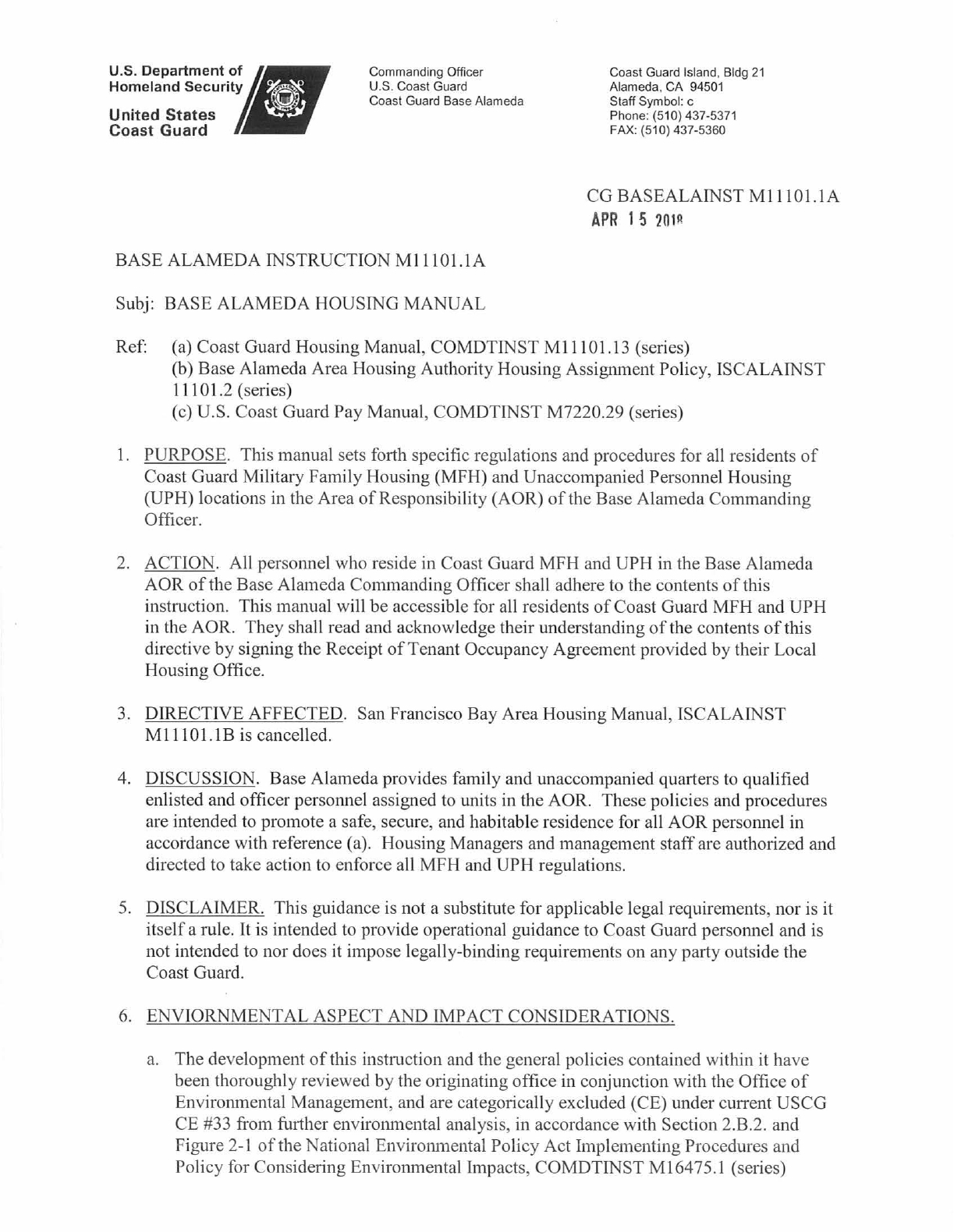
U.S.
Department
o~·
Homeland
Security
• :·" .
United
States
Coast
Guard
Commanding Officer
U.S. Coast Guard
Coast Guard Base Alameda
BASE
ALAME
DA
fNSTRUC
TIO
N
Ml
1101.l
A
Subj:
BASE
ALAMEDA
HOUSING
MANUAL
Coast Guard Island, Bldg
21
Alameda, CA 94501
Staff Symbol: c
Phone: (510) 437-5371
FAX:
{51
0) 437-5360
CG
BASEALAfNST
Ml
1101.l
A
AP
R 1 5
201A
Ref: (a)
Coast
Guard
Hou
sing
Ma
nu
al, COMDTfNST
Ml
1101.13 (series)
(b)
Ba
se
Alameda
Area
Housing Auth
or
ity Housing
Ass
ig
nm
ent Policy, I
SCA
LAfNST
11
1
01
.2 (series)
(c) U.S.
Coas
t Guard
Pay
Manual,
COMDTfNST
M7220.29 (series)
1.
PURPOSE.
This
manua
l sets forth specific regulations and procedures for all residents
of
Coas
t Guard Military
Fa
mily
Hou
sing (MFH) a
nd
Unaccompanied
Per
sonne
l
Hou
sing
(UPH) l
oca
tions in the
Area
of
Responsibility (AOR)
of
the
Base
Alameda
Comman
di
ng
Officer.
2.
ACT
ION. All perso
nn
el
who
reside in Coast Guard
MFH
and UPH
in
the Base Al
ameda
AOR
of
the
Base
Alameda
Command
in
g Officer sha
ll
a
dher
e to the contents
of
this
instruction.
Thi
s manual will be accessible for all residents
of
Coas
t Guard
MFH
a
nd
UPH
in the
AO
R.
They
shall read and acknowled
ge
the
ir
understanding
of
the contents
of
this
directi
ve
by si
gn
ing the Receipt
of
Tenant
Occupancy Agreement provided
by
their Local
Hou
s
in
g Office.
3.
DIRE
CT
IVE AFFECTED.
Sa
n Francisco
Ba
y Area
Hou
s
in
g Manual, IS
CA
L
AINST
Ml
1101.lB is
ca
nc
elled.
4. DIS
CUSS
ION.
Base
Alameda
pro
vid
es
family and unaccompanied quarters to
qua
lified
en
listed and offi
cer
perso
nn
el assigned to units in
the
AOR.
These
policies and pro
ce
dur
es
are int
en
ded to promote a safe,
sec
ure, a
nd
ha
bitable
residen
ce
for all
AOR
per
s
onne
l in
accor
dan
ce
with reference (a).
Housing
Manager
s a
nd
management s
taff
are
authorized a
nd
directed to t
ake
acti
on
to enforce all
MFH
and
UPH
regulations.
5. DIS
CLA
IM
ER. This guidance is not a substitute for appli
ca
ble l
ega
l requirements, n
or
is it
it
se
lf
a rul
e.
It
is int
ende
d to provide operational
gu
idan
ce
to
Coas
t
Gua
rd
per
sonnel and is
n
ot
intended to n
or
doe
s
it
impose legally-binding requirements on
any
party outside
th
e
Coas
t Guard.
6.
ENV
I
ORNMENT
AL
AS
P
ECT
AN
D
IMPACT
CONS
ID
ERA
TIO
NS
.
a.
The
de
vel
opment
of
this
in
struction and
the
general polici
es
contained within it
have
been
thoroughly reviewed by the originating office
in
conjunction
wit
h the Office
of
Environmental Management, and
are
ca
tegorically excluded (CE)
unde
r current
USCG
CE
#33 from further environmental analysis,
in
accordan
ce
with Secti
on
2.B.2. and
Figure 2-1
of
the
National Environmental
Po
li
cy
Act I
mp
lementing Procedures and
Poli
cy
for
Co
nsidering Environmental
Imp
acts, C
OMDTfNST
M l 6475. l (series)
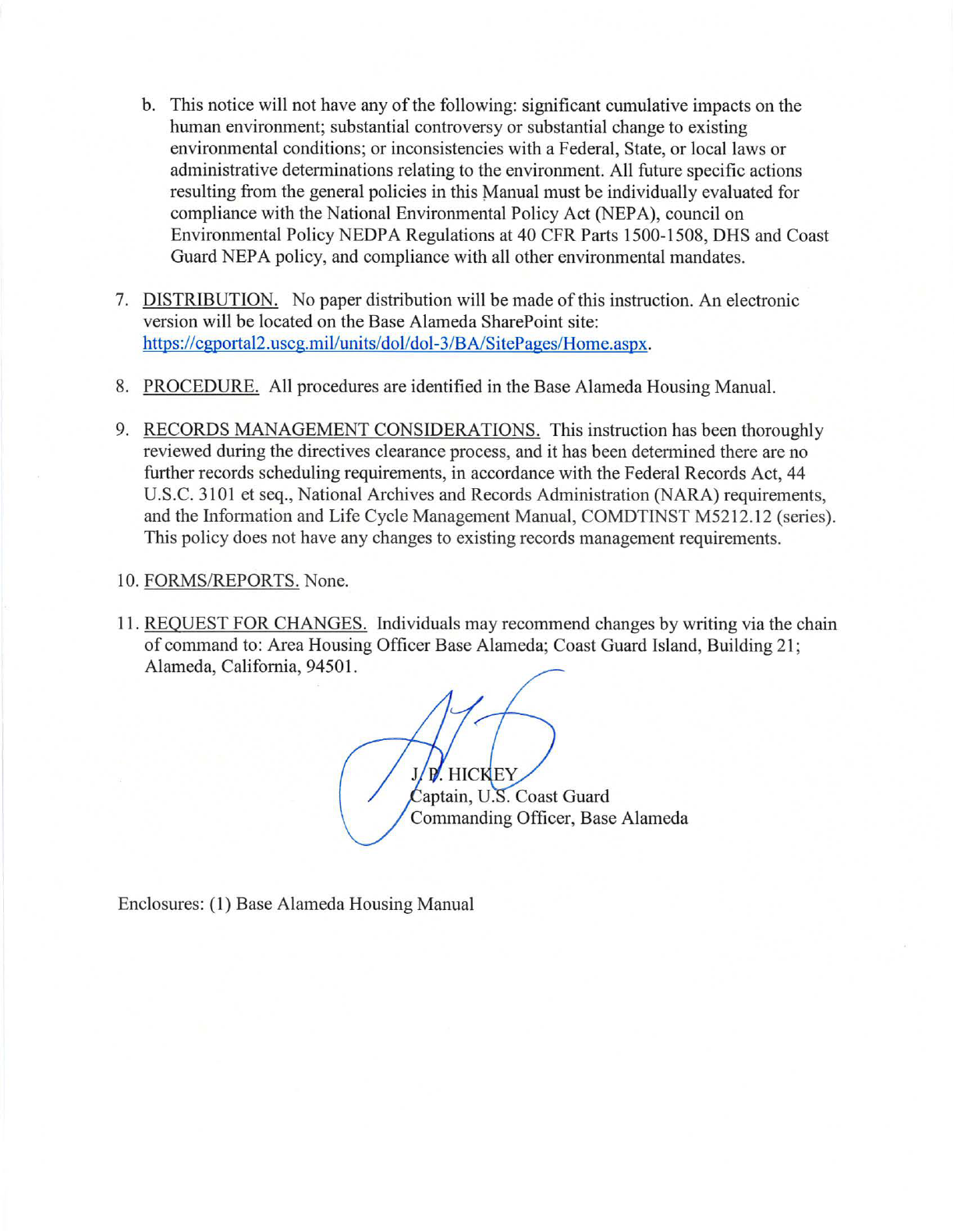
b. This notice will not have any
of
the following: significant cumulative impacts
on
the
human environment; substantial controversy
or
substantial change to existing
environmental conditions; or inconsistencies with a Federal, State,
or
local laws or
administrative determinations relating to the environment. All future specific actions
resulting from the general policies in this Manual must
be
individually evaluated for
compliance with the National Environmental Policy Act (NEPA), council
on
Environmental Policy NEDP A Regulations at 40 CFR Parts 1500-1508, DHS and Coast
Guard NEPA policy, and compliance with all other environmental mandates.
7. DISTRIBUTION. No paper distribution will
be
made
of
this instruction.
An
electronic
version will
be
located
on
the Base Alameda SharePoint site:
https://cgportal2.uscg.mil/units/dol/dol-3/BNSitePages/Home.aspx.
8. PROCEDURE. All procedures are identified in the Base Alameda Housing Manual.
9.
RECORDS MANAGEMENT CONSIDERATIONS. This instruction has been thoroughly
reviewed during the directives clearance process, and it has been determined there are no
further records scheduling requirements, in accordance with the Federal Records Act, 44
U.S.C. 3101 et seq., National Archives and Records Administration (NARA) requirements,
and the Information and Life Cycle Management Manual, COMDTINST M5212.
12
(series).
This policy does not have any changes to existing records management requirements.
1
0.
FORMS/REPORTS. None.
11
. REQUEST FOR CHANGES. Individuals
may
recommend changes by writing via the chain
of
command to: Area Housing Officer Base Alameda; Coast Guard Island, Building
21
;
Alameda, California, 94501.
Enclosures: (1) Base Alameda Housing Manual
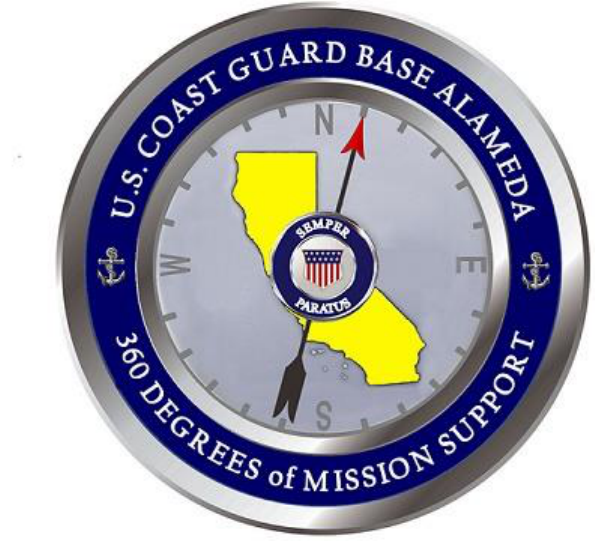
BASEALAINST M11101.1A of 15 Apr 2018
BASE Alameda
Housing Manual
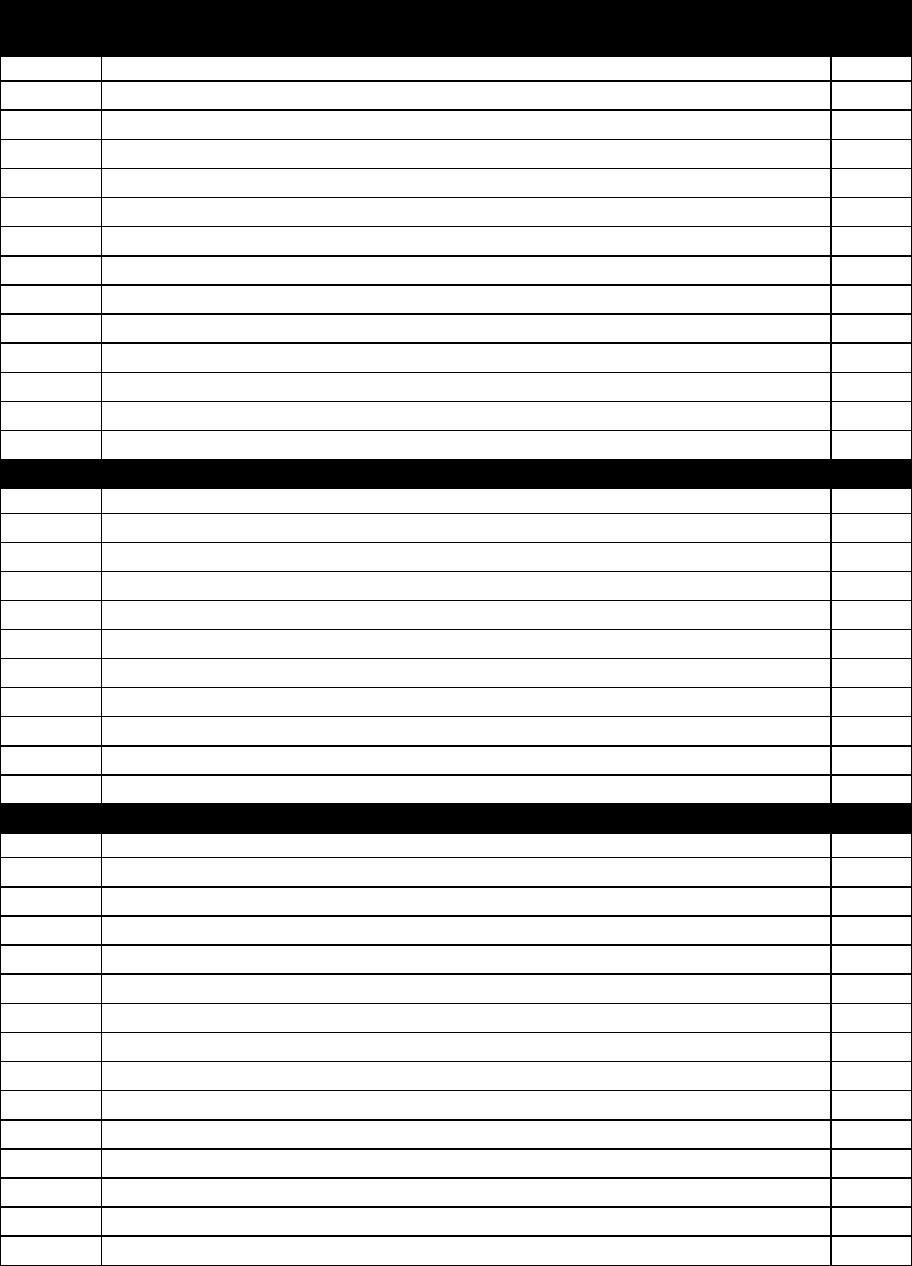
BASEALAINST M11101.1A of 15 Apr 2018
Table of Contents
\\D11-VFP-M-010\Base_Alameda
Chapter 1 – Housing Assignment and General Information
Section
Subject
Page
A
Welcome
1-1
B
Hours of Operation of Local Housing Office
1-1
C
Basic Allowance for Housing (BAH)
1-1
D
Assignment to Housing
1-1
E
Check-in Inspection
1-2
F
Moving Into Quarters
1-2
G
Renter’s Liability Insurance
1-3
H
Provisions of Occupancy
1-3
I
Website
1-4
J
Housing Representatives and Advisory Boards
1-4
K
Town Hall Meetings
1-4
L
Lock Out
1-4
M
Environmental Health Hazards
1-4
Chapter 2 – Occupancy, Termination and Inspection of Family Quarters
Section
Subject
Page
A
Purpose
2-1
B
Occupancy
2-1
C
Loss of Eligibility for Government Quarters
2-3
D
Vacating Quarters
2-4
E
Inspection of Quarters
2-4
F
Paying to Clean Quarters
2-6
G
Terminating FH/UH Quarters
2-6
H
Correcting a Discrepancy
2-7
I
Damage to Coast Guard Quarters
2-7
J
Extension of Occupancy in Government Quarters
2-7
Chapter 3 – Safety and Security
Section
Subject
Page
A
Safety
3-1
B
Personal Safety and Security
3-1
C
Reporting Emergencies
3-1
D
Fire Prevention
3-2
E
Fire Evacuation Planning
3-2
F
Fire Safety
3-3
G
Fireplace Safety
3-4
H
Construction Areas
3-4
I
Traffic Safety
3-5
J
Earthquakes and Natural Disasters
3-5
K
Quarters Security
3-5
L
Keys and Locks
3-6
M
Vandalism
3-6
N
Thefts, Break-ins, Burglary
3-6
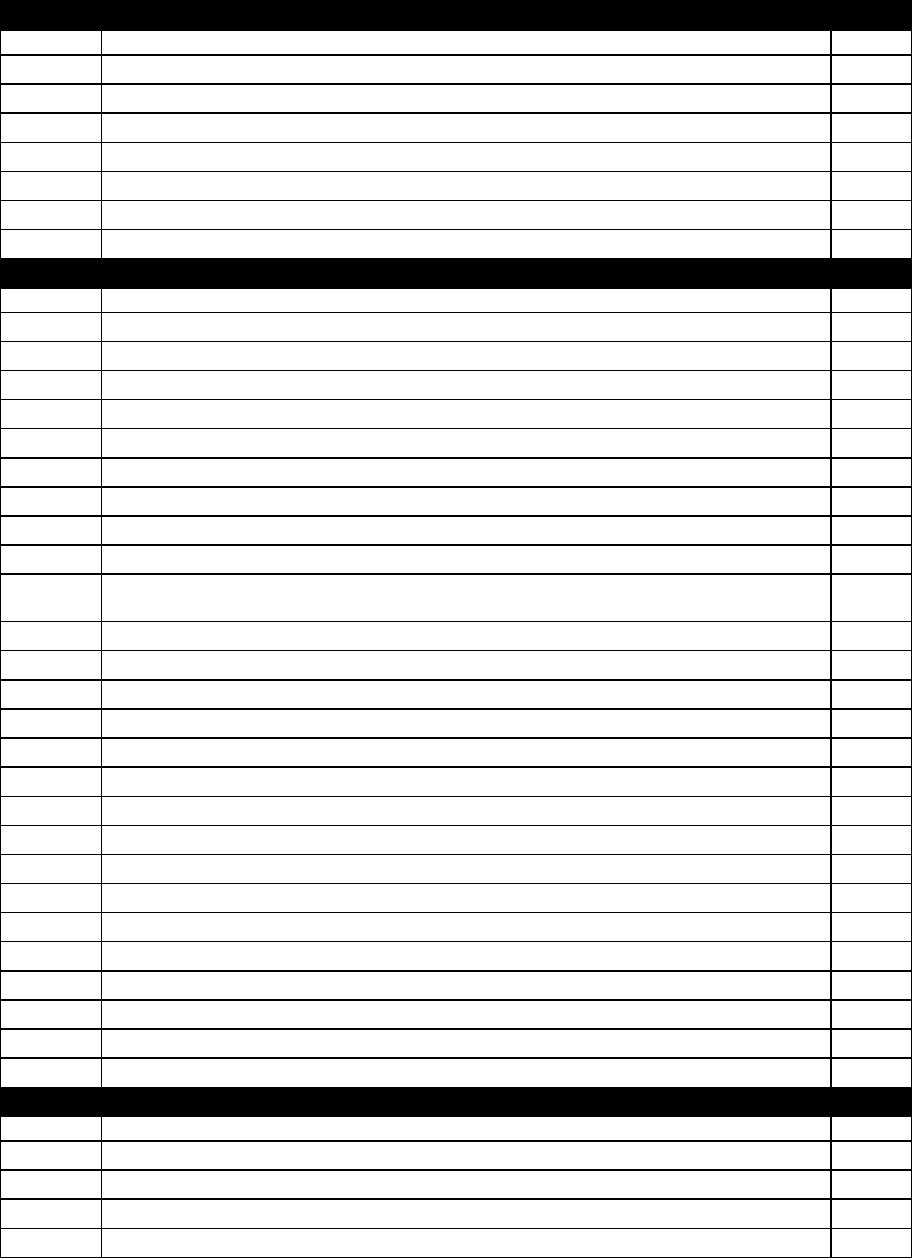
BASEALAINST M11101.1A of 15 Apr 2018
Table of Contents
Chapter 3 – Safety and Security (cont.)
Section
Subject
Page
O
Firearms, Weapons & Explosives
3-7
P
Fireworks
3-7
Q
Joggers, Walkers, Bicyclists, Skaters, and Scooters
3-7
R
Violence, Family Violence & Resident Disputes
3-8
S
Fall Prevention
3-8
T
Compact Fluorescent Lamps (CFLs)
3-8
U
Lead
3-9
Chapter 4 – Neighborhood Regulations
Section
Subject
Page
A
Purpose
4-1
B
Pets
4-1
C
Businesses & Yard Sales
4-3
D
Operation Of Family Day Care
4-4
E
Child Supervision Standards
4-5
F
Occupant Relations
4-5
G
Motor Vehicles
4-5
H
Courtesy Rules
4-7
I
Pools, Spas and Hot Tubs
4-8
J
Holiday Lighting and Decorations, Political or Business Signage and
Objectionable Material
4-8
K
Personally Owned Play Equipment
4-8
L
Telephones and Cable/Satellite Television
4-9
M
Live-In Aides
4-9
N
Prohibited Areas
4-10
O
Noise Levels
4-10
P
Shipboard Personnel, Deployments And Family Departures
4-10
Q
Hazardous Material
4-10
R
Solicitation
4-10
S
Cleanliness and Grounds Maintenance
4-11
T
Laundry Areas
4-11
U
Tobacco Product Use
4-11
V
Controlled Substances
4-12
W
Decorations and Plants in UH
4-12
X
Alcoholic Beverages in UH
4-12
Y
Etiquette in UH
4-13
Z
UH Shipboard Personnel and Deployments
4-13
Chapter 5 – Household Responsibilities
Section
Subject
Page
A
Purpose
5-1
B
Changes to Quarters or Grounds
5-1
C
Maintenance Personnel and Access
5-1
D
Household Maintenance
5-2
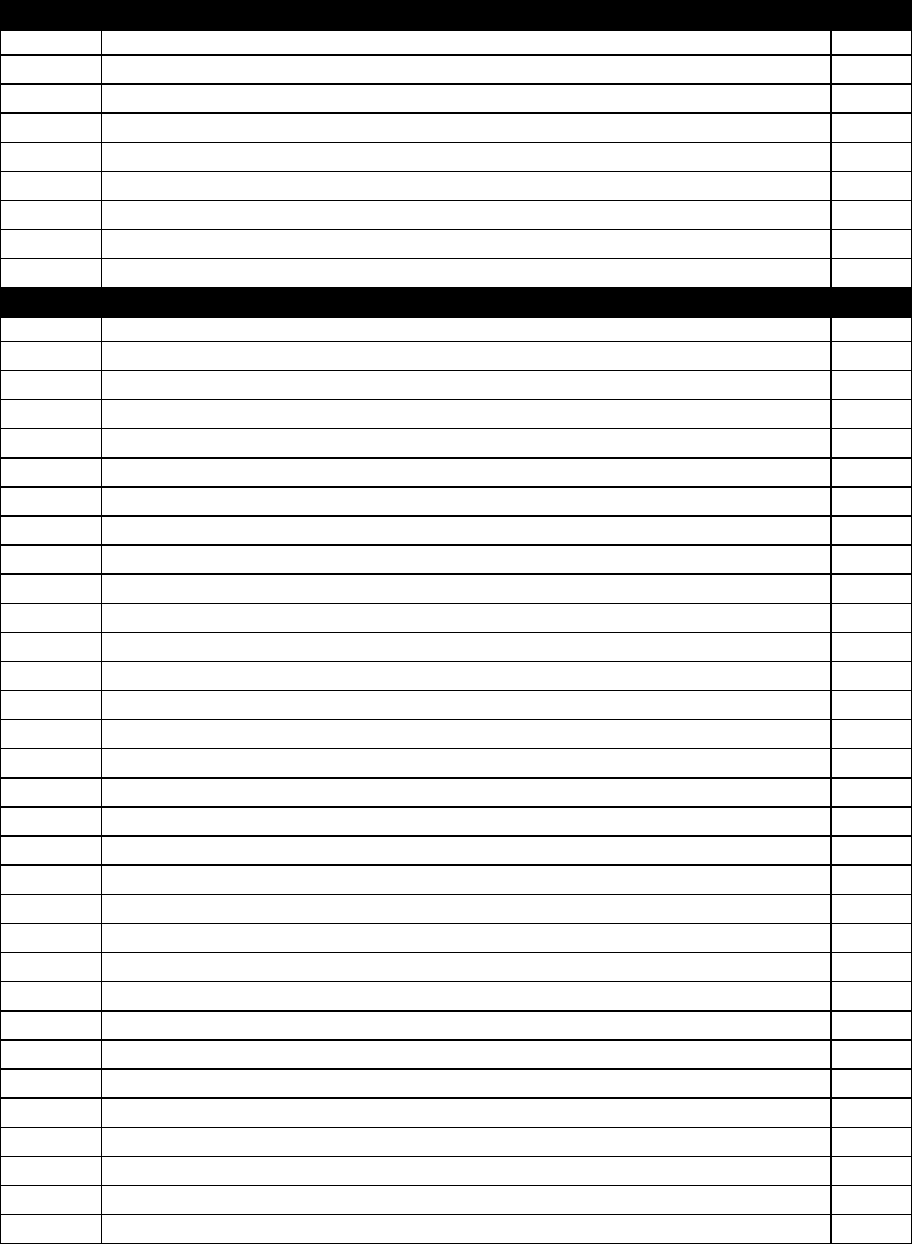
BASEALAINST M11101.1A of 15 Apr 2018
Table of Contents
Chapter 5 – Household Responsibilities (cont.)
Section
Subject
Page
E
Alterations
5-3
F
Self Help Supplies
5-4
G
Utilities & Energy Management
5-4
H
Practical Energy Saving Tips
5-4
I
Pest Control
5-6
J
Trash Collection
5-6
K
Trash Recycling
5-6
L
Grounds Care
5-7
Chapter 6 – Maintenance Responsibilities
Section
Subject
Page
A
Purpose
6-1
B
Carbon Monoxide (CO) Detector
6-2
C
Carpet
6-2
D
Dishwasher
6-2
E
Door Care (Interior)
6-2
F
Driveways, Garages, Catch Basins, and Storm Drains
6-3
G
Electrical Service
6-3
H
Fire Extinguishers
6-3
I
Fireplace Use and Firewood Storage
6-4
J
Floor Maintenance
6-4
K
Gardens
6-5
L
Grass Mowing/Lawn Care
6-5
M
Grounds Care
6-5
N
Heater Filter Replacement
6-6
O
Keys and Electric Garage Door Openers
6-6
P
Lighting/Light Fixtures
6-6
Q
Painting
6-7
R
Pest Control
6-7
S
Plumbing
6-9
T
Refrigerator
6-9
U
Refuse Removal and Recycling
6-9
V
Smoke Detectors
6-10
W
Street Maintenance
6-10
X
Stove/Range
6-11
Y
Telephone/Cable and Satellite TV Service
6-11
Z
Walls, Cabinets, and Trim Care
6-12
AA
Water Heater
6-12
AB
Window Screens
6-13
AC
Window Shades/Blinds
6-13
AD
Window Cleaning and Replacement
6-13
AE
Window Well Cleaning
6-14
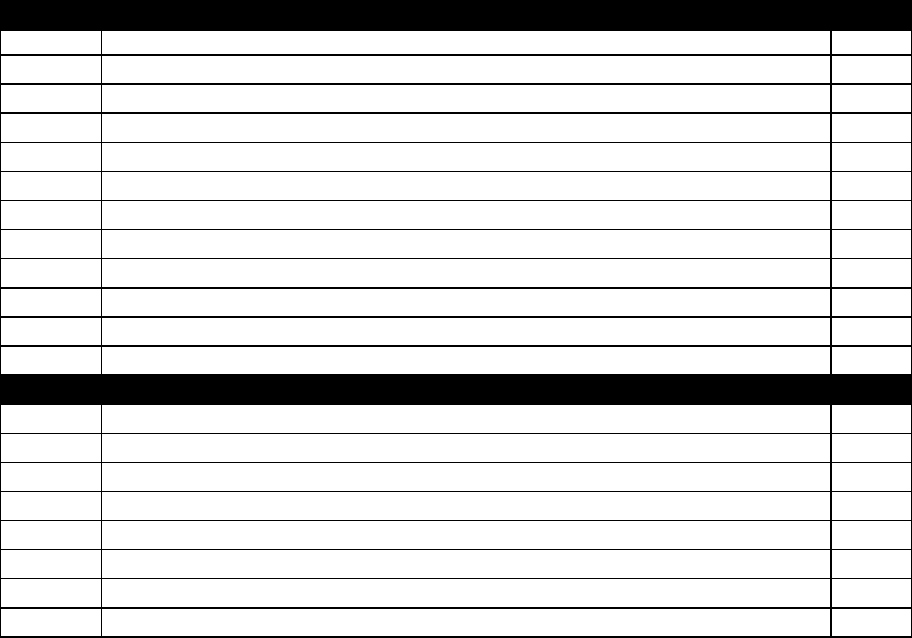
BASEALAINST M11101.1A of 15 Apr 2018
Table of Contents
Chapter 7 – Family Disaster Plan and Earthquake Preparedness
Section
Subject
Page
A
Disasters and Earthquakes
7-1
B
Identify Hazards
7-1
C
Supplies
7-1
D
Emergency Communication Plan
7-3
E
Vital Records and Valuables
7-3
F
Family Preparation
7-4
G
What To Do During an Earthquake
7-4
H
Tips for Preparing Children
7-6
I
Tips for the Physically Challenged
7-6
J
Tips for the Elderly
7-7
K
Tips for Pet Owners
7-8
Appendices
A
Alameda/Novato/BI
A-1
B
Point Vicente (includes Lease units)
B-1
C
Eureka (includes Crescent City)
C-1
D
Monterey
D-1
E
Noyo River
E-1
F
Point Loma
F-1
G
Rio Vista
G-1
H
Santa Barbara (includes Carpinteria)
H-1
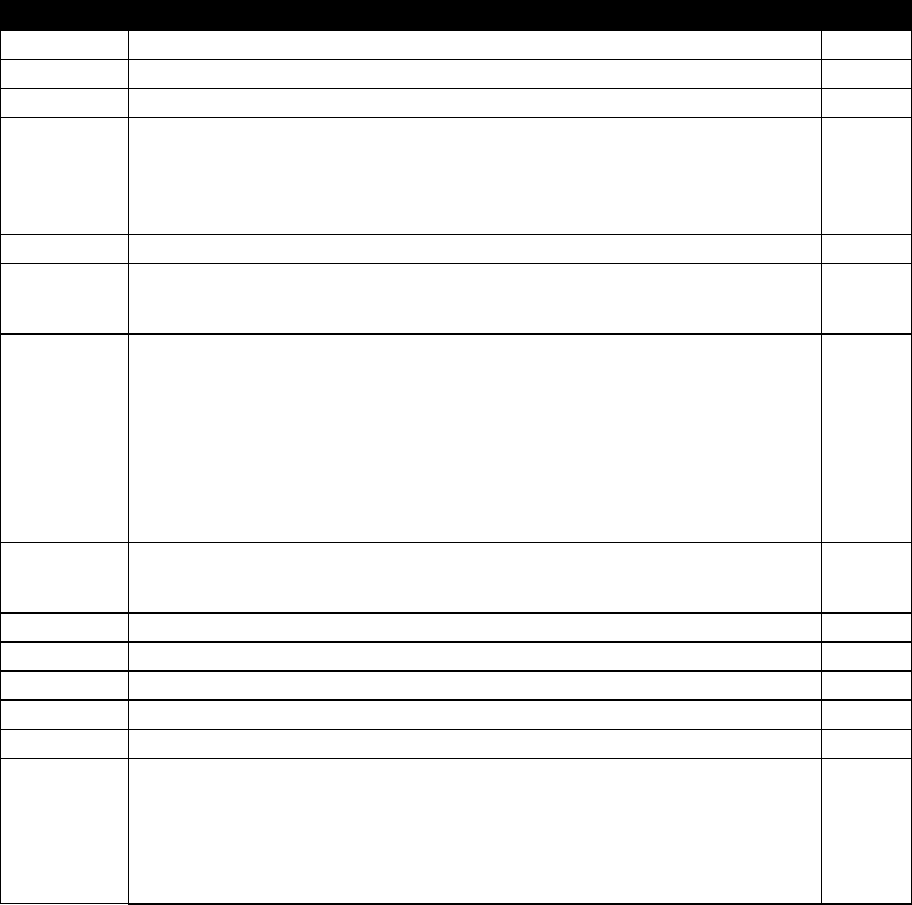
BASEALAINST M11101.1A of 15 Apr 2018
Chapter 1 – Housing Assignment and General Information
Base Alameda Housing Manual
Table of Contents
Section
Subject
Page
A
Welcome
1-1
B
Hours of Operation of Local Housing Office
1-1
C
Basic Allowance for Housing (BAH)
1. BAH Entitlement
2. Housing Allowance Overpayments
3. Verify Leave and Earnings Statement (LES)
4. DoD Active Duty Residents
1-1
1-1
1-1
1-1
1-1
D
Assignment to Housing
1-1
E
Check-in Inspection
1. Inspection Report
2. Additional Discrepancies
1-2
1-2
1-2
F
Moving Into Quarters
1. Household Goods (HHGs)
2. Moving Company Responsibilities
3. Packing Material
4. Storage
5. Damage or Loss to Personnel Property
a. Mover’s Damage
b. Claims by Member for Loss or Damage
6. Unaccompanied Housing (UH) Furnishings
1-2
1-2
1-2
1-2
1-2
1-2
1-2
1-2
1-2
G
Renter’s Liability Insurance
1. Liability Insurance Encouraged
2. Play Structures, Play Equipment, Etc.
1-3
1-3
1-3
H
Provisions of Occupancy
1-3
I
Website
1-4
J
Housing Representatives and Advisory Boards
1-4
K
Town Hall Meetings
1-4
L
Lock Out
1-4
M
Environmental Health Hazards
1. History
2. Notification/Disclosure Documents
3. Environmental Protection Agency Pamphlets
4. ERA Reports
5. Exposure
1-4
1-4
1-4
1-4
1-4
1-4

BASEALAINST M11101.1A of 15 Apr 2018
Chapter 1 – Housing Assignment and General Information
Base Alameda Housing Manual
BLANK
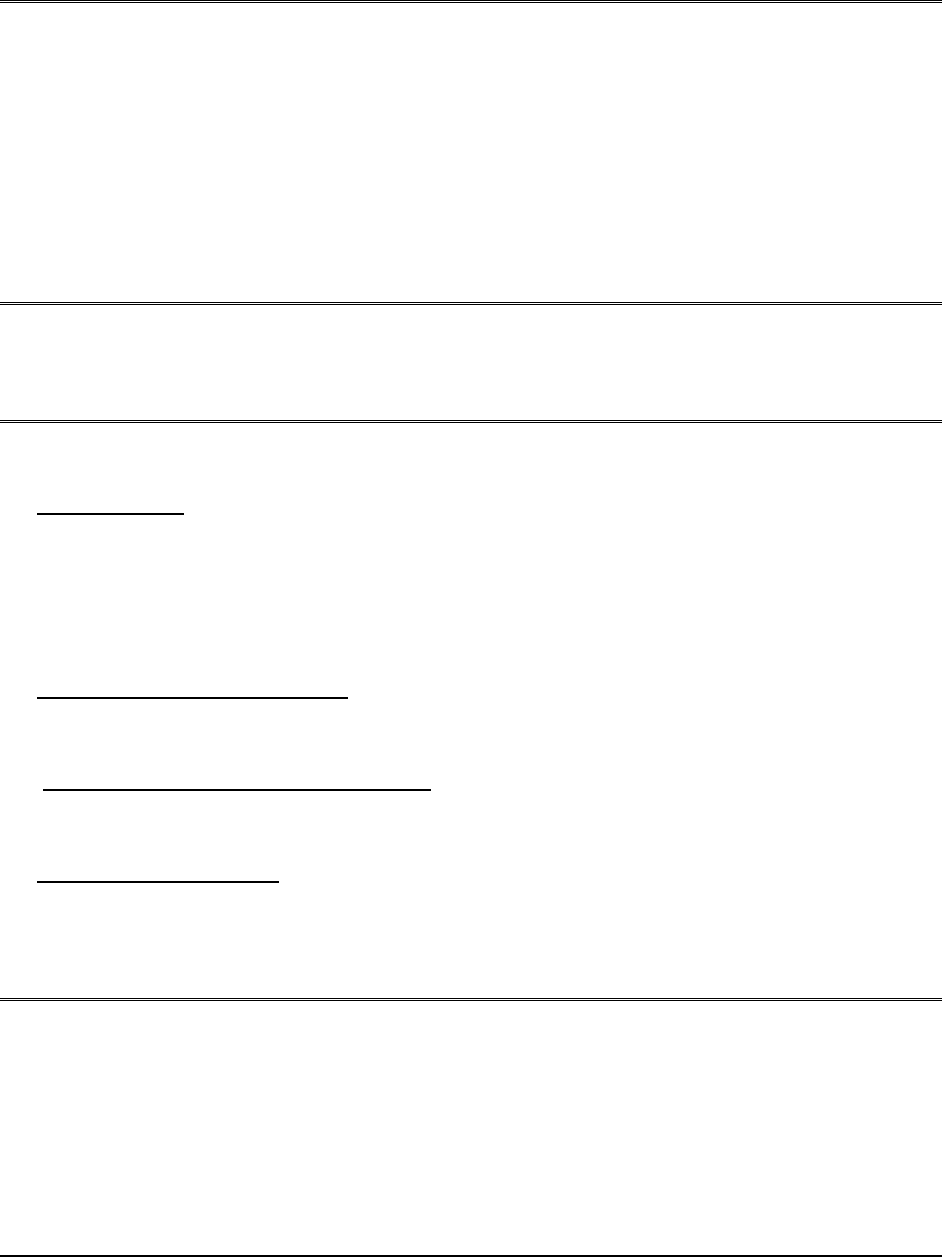
BASEALAINST M11101.1A of 15 Apr 2018
Chapter 1 – Housing Assignment and General Information
1-1
A. Welcome
Congratulations on your assignment to your new home, whether owned Family Housing (FH), or owned
or leased Unaccompanied Housing (UH). UH is defined as any family housing unit that has been
converted to UH and all unaccompanied leased housing units. In most cases you have already met with a
representative from your Local Housing Office during your check-in inspection and received a
familiarization brief. This manual serves as the Tennant Occupancy Agreement (TOA) as required per
reference (a). You should have already signed form PSD-fs-008 “Receipt of Tenant Occupancy
Agreement” where you acknowledge you will read this document and will comply with the contents herein
as well as those in reference (a). The purpose of this chapter is to provide additional information upon
assignment to Coast Guard housing.
B. Hours of Operation of Local Housing Office
See the appropriate Appendix for your specific housing location for hours of operation.
C. Basic Allowance for Housing (BAH)
1. BAH Entitlement. Entitlement to BAH will stop upon assignment to Coast Guard controlled housing
the date keys are accepted. BAH, if eligible, will start the date the final check-out inspection is passed
and completed. In both instances it is the military member's responsibility to ensure the BAH stop
and start documents have been processed. No military member in FH is entitled to receive any
BAH, full or partial. The same is true for most UH members, however, in some cases members
required to pay child support may be entitled to partial BAH. The member should check with
their local admin office.
2. Housing Allowance Overpayments. If overpayment occurs the member is responsible for repayment.
If a member knowingly accepts payment of a housing allowance when not authorized, the member
may be subject to administrative and disciplinary action under the UCMJ.
3. Verify Leave and Earnings Statement (LES). Member’s should pay close attention to their LES and
notify their payroll office if their BAH has not stopped or started within one pay period after
assignment or termination of government quarters
4. DoD Active Duty Residents. DoD residents are responsible for reporting the date of their check-
in/check-out to their respective personnel office/pay office/command. Failure to notify their
personnel/pay office/command to stop their BAH could result in administrative action and/or
punishment under the UCMJ. In addition, residents must provide the Local Housing Office a copy of
their LES on a quarterly basis for verification.
D. Assignment to Housing
Family size, grade/rank, need, and estimated date of arrival to new duty station, generally determines the
type of assignment to housing. Assignment precedence, procedures, and policies are set forth in Base
Alameda Procedures for Assignment and Utilization of MFH and Family-Converted UPH BASEALAINST
11101.2 (series). For members assigned to a leased housing unit, any rules or regulations at that
location not covered herein must also be followed. Housing locations under the cognizance of Base
Alameda comply with federal and state laws imposing registered sex offender residency restrictions.
Base Alameda Housing Manual
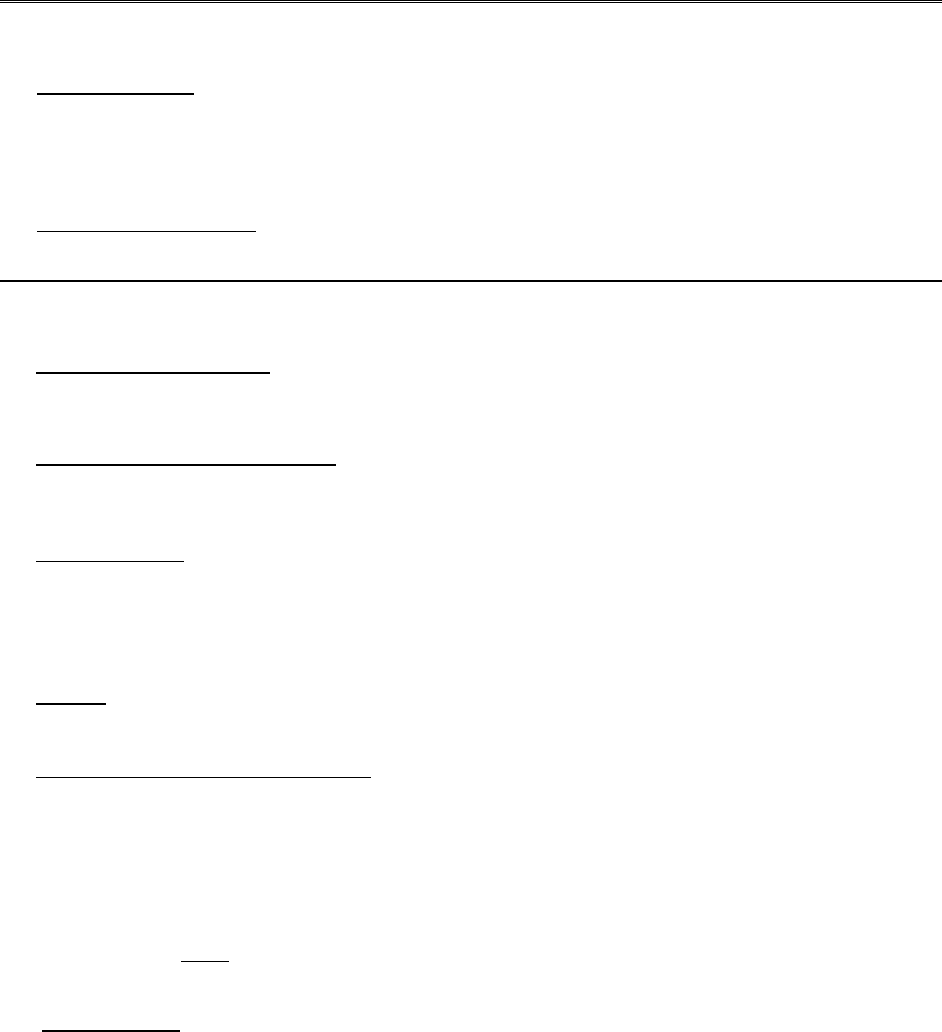
BASEALAINST M11101.1A of 15 Apr 2018
Chapter 1 – Housing Assignment and General Information
1-2
E. Check-in Inspection
1. Inspection Report. Upon assignment to quarters, all residents are required to complete an initial
check-in inspection with a housing representative from the Local Housing Office. The form will be
supplied by the Housing Office and must be signed by both the member and the housing
representative performing the inspection. The Local Housing Office retains a complete report of the
current conditions of the housing unit. It is recommended that a copy is kept by the member.
2. Additional Discrepancies. The member will sign the inspection report and has five days to notify the
Local Housing Office in writing of any additional discrepancies.
F. Moving into Quarters
1. Household Goods (HHGs). The Personnel Property Shipping Office (PPSO) will provide information
and make arrangements to have household goods delivered to the new quarters. The Housing Office
is not involved in the shipment of personal property.
2. Moving Company Responsibilities. The moving company handling the member’s personal property is
responsible for obeying housing parking rules and regulations. Members should speak with the Local
Housing Office prior to the arrival or departure of HHG for loading and unloading areas.
3. Packing Material. It is the responsibility of the member to ensure that all packing material is properly
disposed of. It is recommended to have the moving company take the packing materials from the
premises before they depart, or make arrangements directly with the moving company to come back
after you have unpacked. Contact the Local Housing Office for any questions regarding alternative
options for disposing of any additional packing material left behind by the movers.
4. Storage. Contact PPSO to make arrangements for long-term storage of excess personal property
utilizing the member’s PCS orders.
5. Damage or Loss to Personal Property.
a. Mover’s Damage: If damage to the quarters occurs during the movement of household goods, it
is the member’s responsibility to immediately notify the servicing PPSO and Local Housing Office.
Failure to report damage may result in the member being held responsible.
b. Claims by Member for Loss or Damage: While assigned to government quarters, the member
may file claims for loss or damage to their personal property located in the quarters, provided the
damage or loss is not caused by the member’s own negligence. Refer to the Coast Guard Claims
and Litigation Manual, COMDTINST 5890.
6. UH Furnishings. Due to budgetary constraints and personal preference, government provided
furnishings may not be available in some UH units and/or individual rooms. Furniture provided by the
Coast Guard in UH rooms and common areas are U.S. Government property, and paid for with tax
dollars. All residents are responsible for the care and proper use of these furnishings. Members are
expected to treat these furnishings as if they were their own. In addition, the following guidelines will
be adhered to:
No furnishings shall be removed from individual rooms, common spaces, or the unit itself.
Painting, marking, or scarring of furnishings is prohibited. No nails, tacks, or tape will be affixed
on or to the furnishings.
Base Alameda Housing Manual

BASEALAINST M11101.1A of 15 Apr 2018
Chapter 1 – Housing Assignment and General Information
1-3
Damaged furniture shall be reported immediately to the Local Housing Office.
Each UH resident will be held liable and accountable for any damages done to government-
owned furnishings in common areas and their respective rooms. In addition to incurring charges
to pay for repair or replacement of furnishings, those found to have willfully or negligently caused
damage may be subject to administrative and/or disciplinary action as well as possible loss of
their housing privilege.
If government furnishings exist, residents may use some personal furniture, excluding beds, in
addition to the government provided furnishings in individual rooms. These personal furnishings
must be in good taste, repair, and cannot result in overcrowding a room. However, at no time are
any government provided furnishings allowed to be removed to make room for personal items.
The Government is not responsible for any damage to personal furniture.
G. Renter’s Liability Insurance
1. Liability Insurance Encouraged. While in housing, residents are not required to carry renter's liability
insurance but it is strongly recommended that insurance is obtained for financial protection.
Renter's insurance is available from most commercial insurance companies to cover a resident’s
liability for damage to both the dwelling and loss or damage to personal property in situations where
the government is not liable. Insurance will also cover a resident’s losses in the case of theft or
vandalism. The cost of renter's insurance is relatively inexpensive and can be a tremendous asset in
the event of loss or damage to personal property.
Example. In the case of a fire, the government may reimburse a resident for damages only if the fire
is determined to be a result of a problem within the unit such as faulty wiring in the wall. A resident
may be held financially responsible for any damage to the unit determined to be caused by the
resident and/or guest(s), such as a fire started from faulty wiring from a personally-owned lamp, a pot
left on a stove, or even children playing with a match or lighter.
2. Play Structures, Play Equipment, Etc. Residents choosing to set up personal play structures or
equipment, at locations where it is allowed, are required to have proof of liability insurance and
provide it the Housing Office prior to installing any equipment.
H. Provisions of Occupancy
As a resident of housing, the military member is responsible to ensure the following:
Will use the premises as a private residence for themselves and/or their family, and will not sublet
any part or portion of the premises to any person not a member in their authorized family. Will
not allow any other person or persons to reside on the premises without the prior written approval
of the Local Housing Officer (LHO) and the member is prohibited from receiving rent or other
compensation under any circumstance. Compliance with Federal and State laws concerning
registered sex offenders and residency restrictions will be enforced.
Will not do or permit anything to be done on the premises, or bring or keep anything thereon,
which will in any way constitute a fire hazard, or violate any regulations prescribed by the
Government relating to fire prevention. Will also not do, or permit to be done, on the premises,
any immoral, illegal or criminal act.
The conduct of dependents, guests and pets. The member, their family, and any guests, will
conduct themselves in a proper manner with due regard for the rights of other residents of the
housing site and will comply with the regulations set forth in this manual. Any use of the
premises, facilities, or grounds, for illegal purposes will result in eviction, prosecution under
UCMJ, adverse administrative action including discharge and/or termination and referral to
civilian law enforcement authorities.
Base Alameda Housing Manual
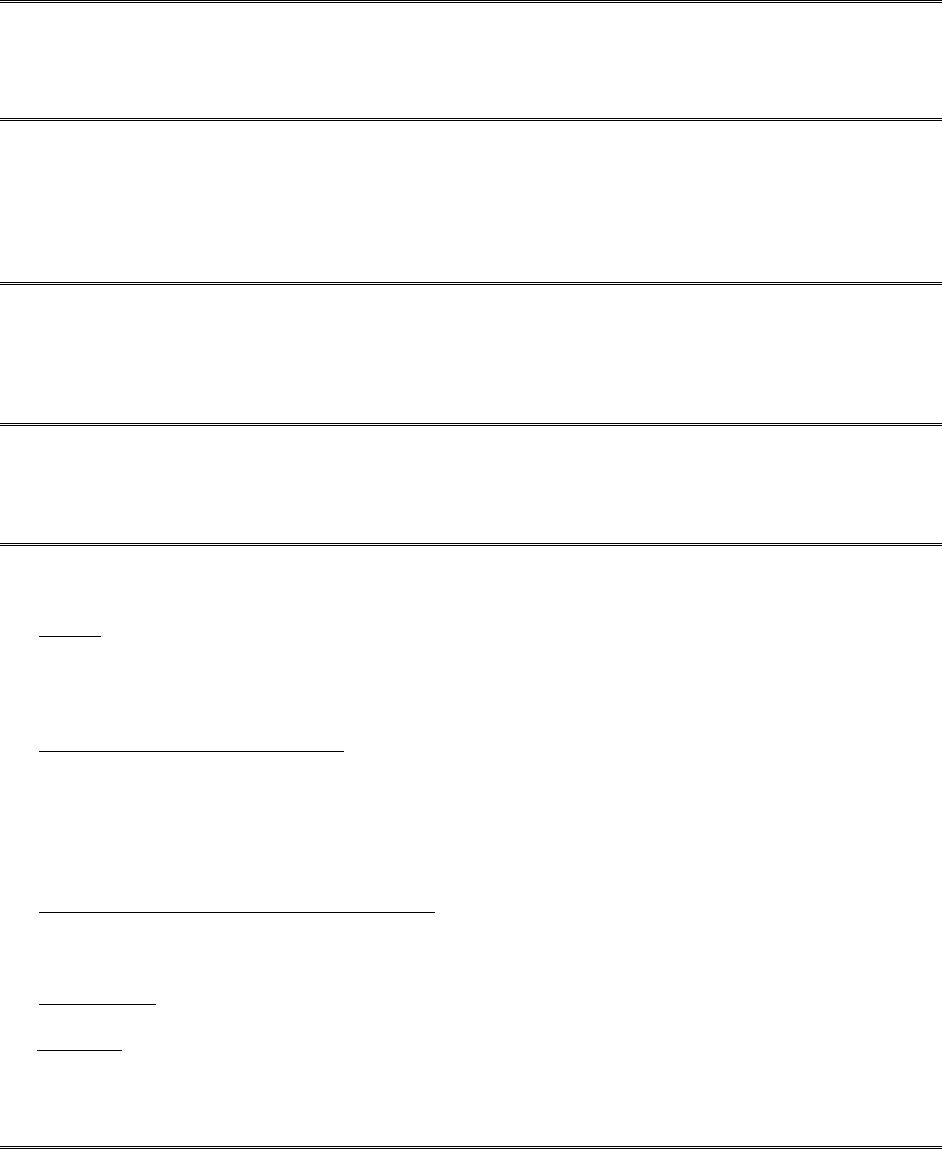
BASEALAINST M11101.1A of 15 Apr 2018
Chapter 1 – Housing Assignment and General Information
1-4
The housing unit will be returned in a condition suitable for immediate reassignment. Housing
units left in an unsatisfactory condition may result in the charges for commercial cleaning.
Upon vacating, the member will recognize they are financially liable for loss or damage to
Government property due to negligence, wrongdoing, or other similar causes.
I. Website
See appropriate Appendix for your Housing Site’s webpage address, if one exists.
J. Housing Representatives and Advisory Boards
A designated Housing Representative from each Command usually represents members. If desired by
the residents, a Housing Advisory Board may be established by residents for discussion of housing and
housing related concerns. Call the Local Housing Office for additional information.
K. Town Hall Meetings
The Housing Office and Housing Authority staff may hold annual or semi-annual Town Hall meetings,
which are open to all housing residents.
L. Lock Out
See the appropriate Appendix for the housing site lock out procedures.
M. Environmental Health Hazards
1. History. To comply with the spirit of Housing and Urban Development (HUD) and the Environmental
Protection Agency (EPA) lead paint, asbestos, and radon disclosure regulations, the Coast Guard is
required to notify residents who occupy pre-1981 Coast Guard owned housing of known or suspected
asbestos, lead, and radon environmental health hazards.
2. Notification/Disclosure Documents. If applicable, as part of the check-in procedures, each resident
will be issued disclosure documents indicating their assigned quarters have been assessed for
environmental health risks. These documents inform whether or not the quarters currently contain
environmental health risks and the location and type of environmental health risks. In addition,
disclosure of past and future planned remediation efforts with specific dates of remediation will be
provided, if known.
3. Environmental Protection Agency Pamphlets. If environmental health risks are present, appropriate
pamphlets or web addresses will be issued as enclosures to the disclosure document. The
precautionary measures outlined in these EPA pamphlets should be followed.
4. ERA Reports. All ERA reports and records are accessible and located in the Local Housing Office.
5. Exposure. If lead-based paint or asbestos containing material is present in the quarters and it
becomes damaged and/or exposed, the resident should immediately contact the Local Housing
Office. If warranted, the Housing Office will evaluate the severity of the risk to the residents and make
recommendations for corrective action.
Base Alameda Housing Manual

BASEALAINST M11101.1A of 15 Apr 2018
Chapter 2 – Occupancy, Termination and Inspection of Family Quarters
Base Alameda Housing Manual
Table of Contents
Section
Subject
Page
A
Purpose
2-1
B
Occupancy
1. Minimum Time Requirement
2. Changes in Family Composition
3. Reporting Changes in Status
4. Acquiring a Dependent (UH Only)
5. Temporary Absences
6. Relocation
7. Guests
a. Guest Regulations for FH
b. Guest Regulations for UH
c. Conflicts
d. Loss of Privileges
8. Live-In Dependent Care
9. Foster Care
2-1
2-1
2-1
2-1
2-1
2-1
2-2
2-2
2-2
2-2
2-2
2-3
2-3
2-3
C
Loss of Eligibility for Government Quarters
1. Permanent Change of Station (PCS) Orders
2. Discharge or Retirement
3. Family Member(s) No Longer Reside In Quarters
4. Unauthorized Absence (UA)
5. Misconduct
6. Separation Resulting from a Court Order or Military Protective Order
7. Loss of Privilege (UH Only)
8. Length of Probation for Loss of Privilege (UH Only)
9. Eviction
2-3
2-3
2-3
2-3
2-3
2-3
2-3
2-3
2-4
2-4
D
Vacating Quarters
2-4
E
Inspection of Quarters
1. Right of Inspection (FH)
2. Right of Inspection (UH)
3. Gear Adrift (UH Only)
4. Discrepancies (UH Only)
5. What Is Inspected?
6. Service Member Presence (FH Only)
7. Notification of Intent To Vacate
8. Type of Inspections
a. Check-in Inspection
b. Annual Inspection
c. Monthly UH Inspection
d. Environmental
e. Pre-Inspection (Final Check-Out)
f. Final Inspection
g. Just Cause
h. Grounds
2-4
2-4
2-4
2-4
2-4
2-4
2-5
2-5
2-5
2-5
2-5
2-5
2-5
2-6
2-6
2-6
2-6
F
Paying to Clean Quarters
2-6
G
Terminating FH/UH Quarters
2-6
H
Correcting a Discrepancy
2-7
I
Damage to Coast Guard Quarters
1. Damage or Loss
2. Pet Damage
2-7
2-7
2-7

BASEALAINST M11101.1A of 15 Apr 2018
Chapter 2 – Occupancy, Termination and Inspection of Family Quarters
Base Alameda Housing Manual
Table of Contents
Section
Subject
Page
I
(cont)
3. Smoke Damage
4 Action Under the UCMJ
5. Denial of Future Quarters Assignment
2-7
2-7
2-7
J
Extension of Occupancy in Government Quarters
1. Extensions
2. Inspection
3. Retirements and Separations
2-7
2-7
2-7
2-7
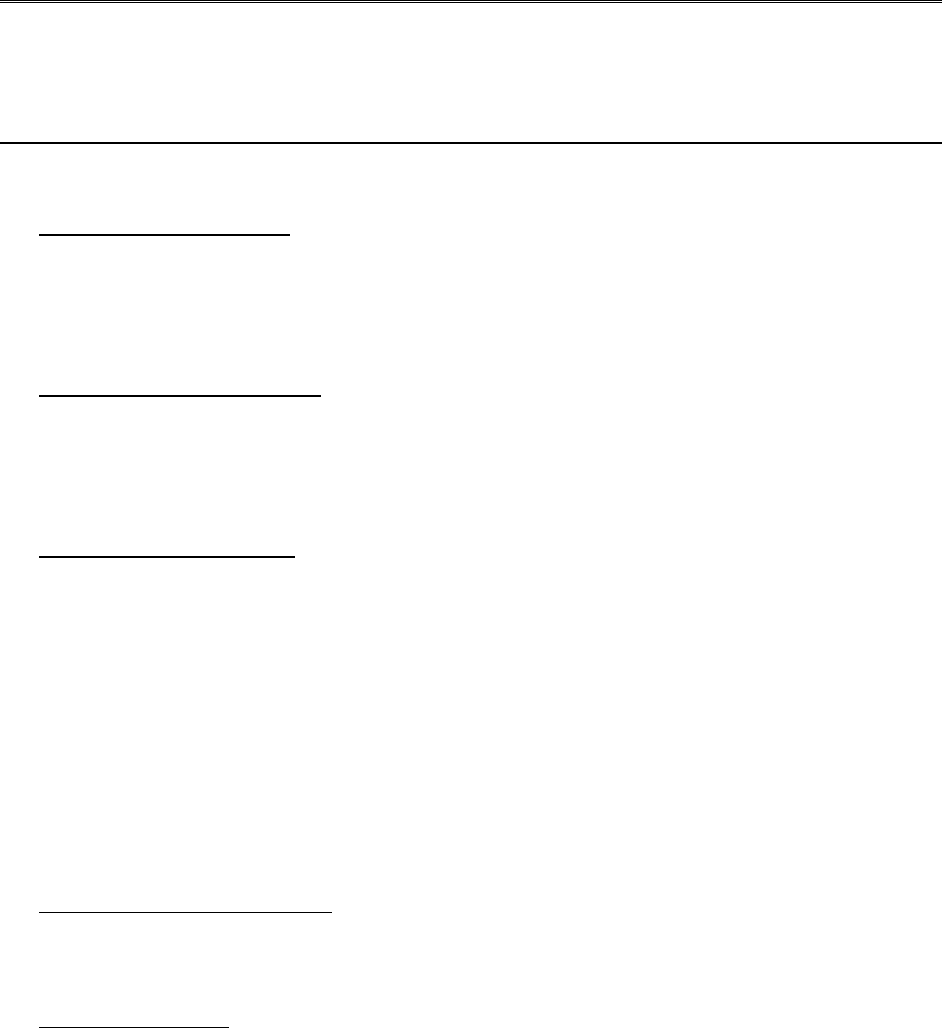
BASEALAINST M11101.1A of 15 Apr 2018
Chapter 2 – Occupancy, Termination and Inspection of Family Quarters
Base Alameda Housing Manual
2-1
A. Purpose
The purpose of this chapter is to provide basic information concerning occupancy, termination and
inspections of Coast Guard housing.
B. Occupancy
1. Minimum Time Requirement. Families assigned to government quarters are required to remain in FH
housing for a minimum of twelve months. Exceptions to this requirement are for unexpected PCS
orders or separation actions. Additional exceptions, such as buying a house or a medical reason, will
be considered. Contact the Local Housing Office for guidance. Unaccompanied member’s length of
stay will have several factors that will determine how long an assignment will be, such as A school
lists, promotions, those eligible for BAH and BAH wait lists, etc.
2. Changes in Family Composition. Service members are required to notify the Local Housing Office
immediately upon any change in the number of family members. If the service member’s qualification
for government quarters increases (i.e., the birth of another child or an additional family member
acquired due to a legal proceeding), the Local Housing Office will attempt to meet the additional
bedroom requirement if it meets the bedroom qualifications as outlined in the COMDTINST 11101.13
(series). Any relocation move will be at the resident’s expense.
3. Reporting Changes in Status. The service member is responsible and required to notify the Local
Housing Office of any changes in their status. Changes which might affect the continued eligibility to
government quarters need to be reported immediately upon the occurrence. Examples include:
Change in rate/rank.
Change in duty station.
Home and/or work telephone numbers.
Change in Projected Rotation Date (PRD).
Separation from active duty.
Receipt of PCS orders (includes TEMDU).
Family separation, divorce/separation. (Note: When family members or the service member no
longer reside in the quarters for any reason, the service member is required to notify the Housing
Office immediately.)
Extended leave from the quarters (see 5 below).
4. Acquiring a Dependent (UH only). Residents who get married or acquire a dependent are not
authorized to remain in UH. UH residents who acquire a dependent will be allowed to remain in the
UH not to exceed 10 working days from acquiring the dependent (spouse or dependent cannot reside
in the UH).
5. Temporary Absences. The Local Housing Office must be notified if the service member and or the
family members will leave the quarters vacant for more than 14 days. Depending on the
circumstances, periods of absence that exceed 60 days may lead to termination of quarters. The
service member is responsible for maintaining the unit during the absence. This includes making
sure all utilities are adjusted to the low settings or turned off, toilets and sinks are not running,
stopping mail and newspaper delivery, emptying of trash, etc. Those with grounds care responsibility
have a mandatory requirement to maintain their yards. The name and phone number of the home
and/or grounds caretaker must be provided to the Local Housing Office upon notifying them of any
absence. Pets are not to be left in the quarters or yard unattended while the resident is away on an
extended absence.

BASEALAINST M11101.1A of 15 Apr 2018
Chapter 2 – Occupancy, Termination and Inspection of Family Quarters
Base Alameda Housing Manual
2-2
6. Relocation. Voluntary relocation to other government quarters (i.e. move to a different size unit due
to a change in family size, or a UH move to reside with a friend) will be at the member’s expense
since it is for convenience and not mandatory. Any relocation must be completed within seven
calendar days of assignment to the new quarters (i.e. the resident will have access to both housing
units for only seven days). Failure to pass an unannounced housekeeping inspection of the current
quarters will result in the cancellation of the relocation. Approval of relocations will occur only when
excess housing is available and are only approved by the Local Housing Officer. Requests for
relocations for neighborhood disputes or resident problems are not an automatic reason for granting
such a request.
7. Guests. A guest is defined as a relative or friend who visits for a few hours or perhaps a week or two.
Social visits by other active duty members, their dependents, or civilians as guests of members who
live in government housing are authorized per the below:
a. Guest Regulations for FH: The following rules apply to guests in FH:
Guests must comply with all regulations governing FH. The
member, as the sponsor, will be held accountable for the actions of guests.
Accepting rent from guests is strictly prohibited.
Guests visiting for more than 21 days are required to be registered at the Local
Housing Office.
Guests normally may remain for no more than 30 days or 45 cumulative days in one year.
Any request for guests beyond 30 days must be submitted in writing, through the member’s
command, to the Area Housing Authority through the Local Housing Officer.
If the guest is another active duty member and/or their dependents reside as guests they
must register with the Local Housing Officer immediately and if they are a guest for more than
30 consecutive days in housing assigned to another person, the housing officer must report
this fact to the servicing Admin Office to determine the visiting member’s housing allowance
and entitlements.
The Local Housing Officer (LHO) retains the right to refuse permission for any guests to be in
FH. As an example, a prior history of problems with the member and/or guest(s) could be a
reason for this occurring.
b. Guest Regulations for UH: The following rules apply to guests in UH:
Guests would be anyone who is not currently assigned to the UH.
Guests under 18 are not permitted unless accompanied by their parent/guardian at all times.
The sponsor is the UH resident responsible for the guest(s).
The sponsor will meet the guest at the front door of the UH and must be present when
guests are in the UH at all times.
Guests must abide by all UH rules and regulations, and sponsors are responsible for the
actions of their guests.
Two guests per sponsor are permitted in the UH at any one time.
Guests are not permitted in other resident rooms without the permission of that resident.
The LHO retains the right to refuse permission for any guests. As an example, a prior history
of problems with the member and/or guest(s) could be a reason for this occurring.
All guests must vacate the premises no later than 12:00 a.m.
Overnight guests are not authorized.
c. Conflicts. Residents should try to resolve any problems that arise associated with visitors/guests.
Guests who become disruptive or infringe on the rights of other residents will be asked to leave by the
LHO, or competent authority, when deemed necessary.

BASEALAINST M11101.1A of 15 Apr 2018
Chapter 2 – Occupancy, Termination and Inspection of Family Quarters
Base Alameda Housing Manual
2-3
d. Loss of Privileges. Any resident(s) found abusing or violating the guest regulations may forfeit
their guest privilege. Appropriate administrative and/or disciplinary action will be taken if deemed
necessary, including the loss of housing privileges when warranted.
8. Live-In Dependent Care. Permission for live-in dependent care providers must be requested in writing
substantiating the need for such an arrangement via the member’s command to the AHA, via the LHO.
Approval of live-in caregivers is predicated on criteria set forth under current regulations and specific
child-care or health-care requirements, which can be shown to require full-time, live-in assistance; for
example, a single parent attached to a deploying command. A spouse wanting to work or go to school
is not a sole reason for allowing a live-in aide. A larger unit to accommodate a live-in aide may not be
available.
9. Foster Care. Having foster children in FH is permitted as long as the resulting living conditions are
reasonable. The presence of foster children will not increase bedroom entitlement. The member is
required to notify their Local Housing Office in writing if they intend to become a foster parent.
C. Loss of Eligibility for Government Quarters
1. Permanent Change of Station (PCS) Orders. If the member’s new command is outside the
commuting range of their current housing site, quarters must be vacated on or before the date the
member departs their current command. Contact the Local Housing Office if not sure of eligibility to
remain in quarters.
2. Discharge or Retirement. Eligibility for FH/UH expires on the date of discharge or retirement and
quarters must be vacated before that date. Minor delays in vacating quarters may be granted by the
LHO if there are extenuating circumstances. However, any member allowed to remain in FH/UH past
their discharge or retirement date shall pay rent equivalent to the fair market rate of the home they are
residing in for every day of occupancy. There are no exceptions allowed by law.
3. Family Member(s) No Longer Reside In Quarters. The service member is responsible for notifying
the Local Housing Office when a family member no longer resides in the quarters for any reason,
including voluntary or legal separation, divorce or court order, or the service member no longer
resides in the quarters for any reason. Continued occupancy by only the member, or only the family
is not allowed. The Local Housing Office will provide further details in these situations.
4. Unauthorized Absence (UA). Family members may remain in FH up to 60 days from the date the
sponsor is placed in a UA status. Contact the Housing Office for more information.
5. Misconduct. Failure to follow regulations by the service member, the spouse, family member(s)
and or guest(s) can result in the loss of the housing privilege. This includes behavior which is
destructive to morale, disturbs peace and harmony of the neighborhood, is threatening to other
residents or their property, involves gangs, being a gang member, or involved in “gang related”
activities; use/selling of illegal substances, any violence/disturbance that occurs where a weapon is
present, and any behavior not considered in the best interest of the Coast Guard. Loss of privilege
can also occur for failing to maintain the housing unit in a sanitary condition.
6. Separation Resulting from a Court Order or Military Protective Order. In cases where the member
and dependents are restricted from having any physical contact with each other, or from accessing
the home, assignment to the quarters will be terminated no later than 120 days after physical
separation or the date of the order, whichever is earlier.
7. Loss of Privilege (UH Only). See Appendix for more information.
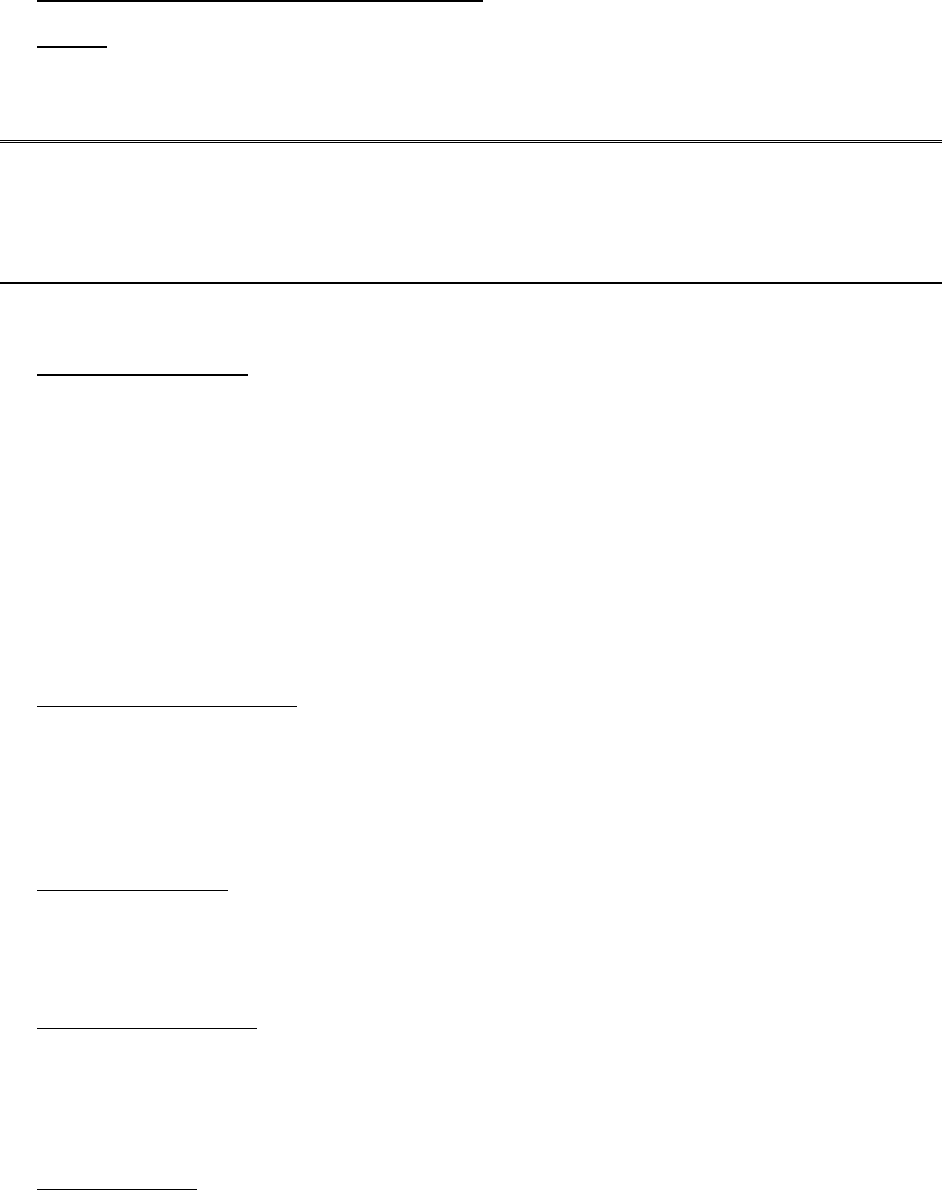
BASEALAINST M11101.1A of 15 Apr 2018
Chapter 2 – Occupancy, Termination and Inspection of Family Quarters
Base Alameda Housing Manual
2-4
8. Length of Probation for Loss of Privilege (UH only). See appropriate Appendix for more information.
9. Eviction. Eviction may be required when conditions for termination of occupancy exist and the
member does not vacate government quarters. If eviction becomes necessary, justification for this
action will be recommended by the LHO, and approved by the Area Housing Authority (AHA), via the
Area Housing Officer (AHO).
D. Vacating Quarters
For procedures on vacating the quarters contact the Local Housing Office. Notice must be given at least
45 days in advance of the intended vacate date.
E. Inspection of Quarters
1. Right of Inspection (FH). It may be necessary to enter assigned quarters when no one is home. The
LHO may direct members of the housing staff to enter a home without the service member’s consent,
such as the following, but not limited to, conditions:
Quarters are suspected to be abandoned.
Quarters are suspected to be damaged.
Quarters are suspected to be unsanitary, which threaten the health of the occupants, the
neighbors, or is destructive to the house.
Emergency situations that may cause damage to the quarters or are disrupting the neighborhood.
Unable to contact the resident for emergency repairs or preventative maintenance.
To avoid delays of contracts.
For failing to appear at scheduled inspections, after making two attempts, or being non-
responsive to Housing Office contact efforts.
2. Right of Inspection (UH Only). To ensure safety and sanitary standards are being met, inspections
will be conducted by housing representatives on at least a monthly basis. At the discretion of the
LHO or a UH Resident’s Commanding Officer, unannounced Safety/Just Cause inspections may be
conducted at any time. Furthermore, the AHA has the right to conduct administrative inspections of
all UH spaces at any time to ensure the safety, health, and well being of all residents. UH residents
are not required to be present for monthly or unannounced inspections. During any inspection all
rooms, common areas, grounds and all government furnishings will be inspected.
3. Gear Adrift (UH Only). Gear adrift is defined as any personal item not properly stowed within
personal or communal spaces. Personal belongings that cannot be stowed away in personal or
communal closets (large stereos, trunks, etc) are allowed in UH rooms provided their stowage does
not create an overly cluttered room or safety hazard. The Housing Office determines when personal
belongings in a room are excessive and notifies the resident to remove or re-stow their belongings.
4. Discrepancies (UH Only). All discrepancies will be noted on the Quarters Inspection Form. A copy of
this inspection form will be left behind on each bedroom door or emailed to the member. Residents
are responsible for correcting discrepancies within one working day. A resident’s Commanding
Officer will be advised of any discrepancies not rectified in a reasonable amount of time.
Furthermore, repeated and/or un-rectified discrepancies may lead to administrative and/or disciplinary
action and/or loss of housing privilege.
5. What Is Inspected? During annual, environmental, or just cause inspections, all rooms, the
garage/carport, all storage areas and the grounds will be inspected. In addition, to ensure the safety

BASEALAINST M11101.1A of 15 Apr 2018
Chapter 2 – Occupancy, Termination and Inspection of Family Quarters
Base Alameda Housing Manual
2-5
of the residents, fire extinguishers, carbon monoxide and smoke detectors and any safety and
environmental health hazards are checked.
6. Service Member Presence (FH only). If the service member is not available (i.e. underway, TDY) a
resident, normally the spouse (or a family member 18 years of age or older) may act as the service
member’s representative during annual, environmental, just cause and pre-inspections. However, a
resident may not act as a service member’s representative for their final inspection unless they
possess a valid Power of Attorney (POA) from the member.
7. Notification of Intent to Vacate. Notification of the intent to vacate quarters shall be made upon
receipt of orders, or at least forty-five (45) days prior to the estimated date of termination (departure)
by submitting a Notice of Intent to Vacate to the Local Housing Office. Only the service member may
submit the intent to vacate unless a designee (usually the spouse) has a valid POA. Notify the Local
Housing Office immediately if official orders for a military directed move are received too late to allow
45 days notice. The household goods pack out date should be set prior to the 45-day mark to allow
the Transportation Office sufficient notice for pick-up, and in turn allows sufficient time for the cleaning
of the quarters.
8. Types of Inspections.
a. Check-in Inspection. Upon acceptance of quarters, the Local Housing Office will conduct the
inspection with the service member (unless the member has granted a POA). Upon assignment to
quarters, all residents are required to complete an initial check-in inspection with a housing
representative from the Local Housing Office. The form will be supplied by the Housing Office and
signed by both the member and the housing representative. The Local Housing Office retains a
complete report of the current conditions of the housing unit. It is recommended that the member
keep a copy for their personal files.
b. Annual Inspection. Annual inspections are required within 12 months of move-in and every 12
months thereafter in accordance with reference (a). The Local Housing Office will set up a
scheduled appointment with the resident. Residents who fail to show for scheduled inspections
will be afforded the opportunity to reschedule an inspection. The Local Housing Office will
complete an inspection without the residents when they fail to show for their second scheduled
inspection. The service member should have a copy of their Check-In Inspection form that was
completed upon assignment to MH/UH. Generally, this form indicates what items the residents will
not be responsible for correcting prior to termination of quarters.
c. Monthly UH Inspection. Monthly inspections are required for the UH units. These units have
high turnover with many occupied by afloat personnel who are underway frequently. This leaves
many units empty for extended periods of time. Inspections are performed to ensure no
maintenance issues have occurred and the unit is secure. In addition, this inspection is done to
ensure the roommates have no issue with each other and/or a particular member is not putting up
with a less than satisfactory situation. These inspections are typically performed without the
residents present. The Housing Office will complete an inspection report and leave it behind in the
unit, with any required corrections needed. In cases of more severe findings the member and
his/her command may be contacted.
d. Environmental. For units with environmental issues (lead paint, asbestos, etc.), environmental
inspections are required in accordance with reference (a). These typically are conducted in
conjunction with the Annual Inspection. The Local Housing Office will set up a scheduled
appointment with the resident. Residents who fail to show for scheduled inspections will be
afforded the opportunity to reschedule an inspection. The Local Housing Office will complete an
inspection without the residents when they fail to show for their second scheduled inspection.
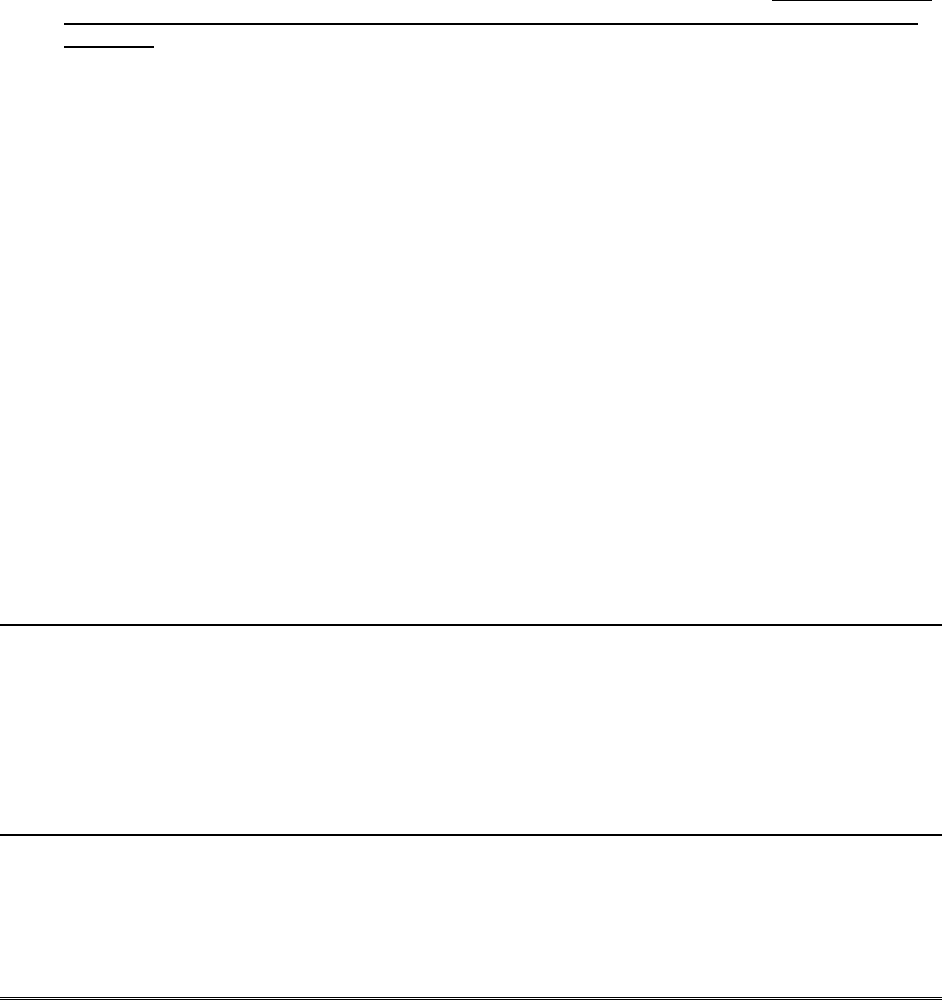
BASEALAINST M11101.1A of 15 Apr 2018
Chapter 2 – Occupancy, Termination and Inspection of Family Quarters
Base Alameda Housing Manual
2-6
e. Pre-Inspection (Final Check-Out). Generally, a preliminary "pre-termination” (or pre-final)
inspection will be conducted by the Housing Office and the service member (or designated
representative with a valid POA) 30 days prior to the date of termination or within 2 days of
receiving orders if less than 30 days remain. The purpose of the inspection is to determine the
overall condition of the quarters (including exterior yard areas), set expectations and provide
guidance for the final inspection. During this inspection, the Local Housing Office will issue a
Preliminary Inspection Checklist. This checklist indicates specifically what items will be inspected
during the final inspection.
f. Final Inspection. The final inspection is conducted on the date of termination. There shall be no
personal household goods or items in the quarters, garage, patios/balconies or yards during this
inspection. The service member or legal representative (in possession of a valid POA) must be
present during the final inspection. To pass the final inspection, there must be no discrepancies
other than those listed on the original check-in inspection form. When quarters are found
acceptable, the service member will be cleared of government quarters and the Housing Office will
notify the servicing Admin Office via e-mail to start the BAH. DoD members are responsible for
reporting their vacating of FH to their personnel office. Should the service member fail the final
inspection, he/she will be expected to rectify the discrepancy on the spot or reimburse the
Government for damages or cleaning. Members must return housing in a condition suitable for
immediate reassignment. Housing left in unsatisfactory condition may result in the LHO charging
the member for commercial cleaning. If major maintenance or renovation is scheduled for the
house immediately following termination, the Local Housing Office will determine the extent of
cleaning required.
g. Just Cause. The LHO may inspect assigned quarters for due cause when necessary to ensure
safety, health, and welfare. Just cause inspections are normally unannounced and may be
conducted at any time by local housing representatives at the discretion of the LHO, and may be
accompanied by the resident’s Commanding Officer or Command Representative. Other
individuals, such as the Command Housing Representative, Gold/Silver badge, CGIS may also
take part if desired by the LHO. The service member may or may not be present.
h. Grounds. The Local Housing Office will frequently inspect exterior grounds of the housing area.
If a discrepancy is noted and the resident has grounds responsibility, a Violation Notice will be
issued. This notice will indicate what discrepancy exists, and what type of corrective action a
resident must take. The resident’s copy must be returned to the Housing Office by the date
directed indicating the corrective action taken.
F. Paying to Clean Quarters
Should a resident desire to have their quarters cleaned by a professional contractor, it will be done
entirely at the resident’s expense. The contract is between the resident and the contractor, not the Coast
Guard. The responsibility for meeting termination standards and requirements is the service member’s,
not the Contractor’s. The Coast Guard will not settle disputes between residents and contracted
cleaners. The Local Housing Office cannot provide lists of cleaners, nor can they recommend cleaners.
G. Terminating FH/UH Quarters
Assignment will be considered terminated only after all household goods are removed, the resident has
passed the termination inspection and the inspection checklist has been signed by both the resident and
the housing inspector.
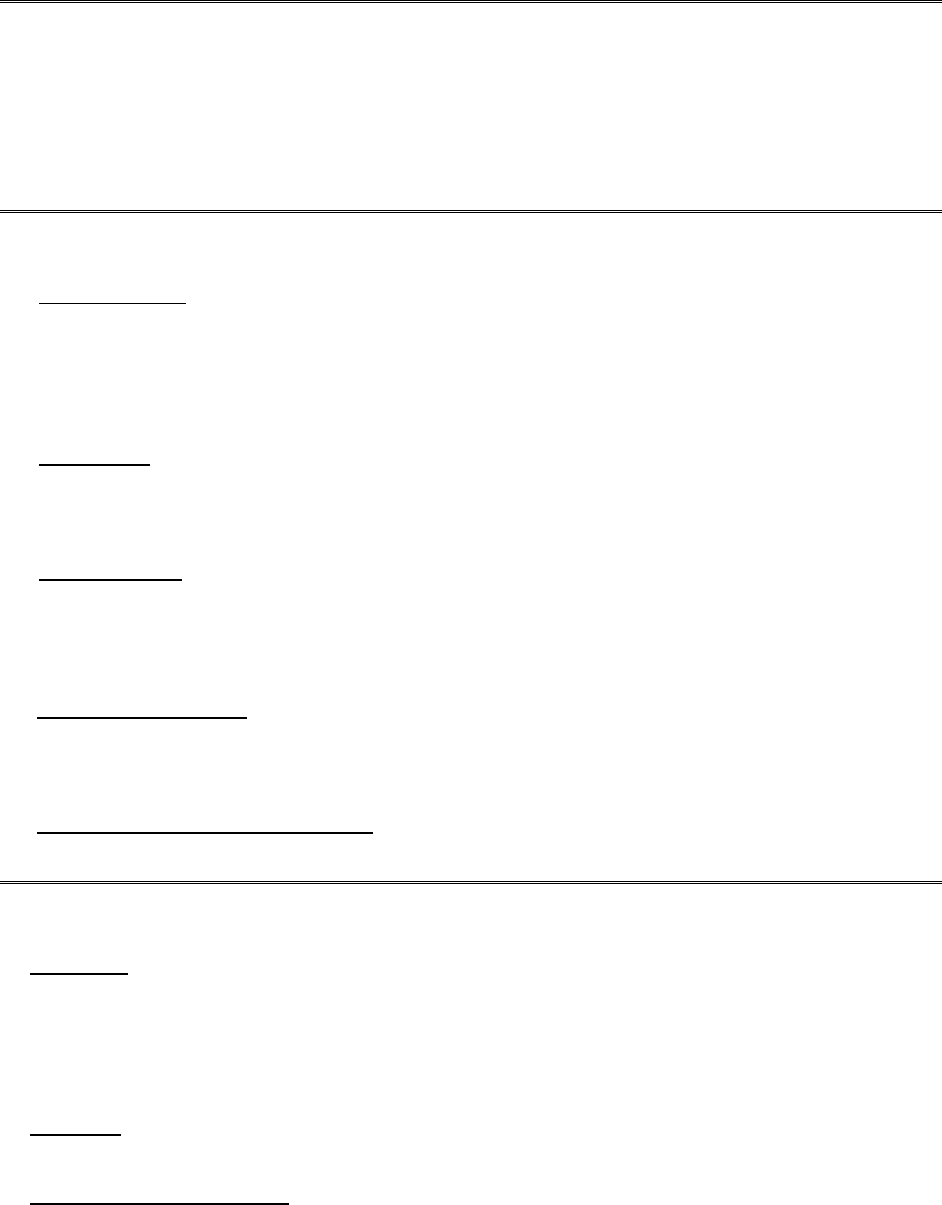
BASEALAINST M11101.1A of 15 Apr 2018
Chapter 2 – Occupancy, Termination and Inspection of Family Quarters
Base Alameda Housing Manual
2-7
H. Correcting a Discrepancy
Residents are responsible for correcting discrepancies noted during any inspections caused by the
member, family, guest or pet. A resident’s Commanding Officer will be advised of any discrepancy that is
not rectified in a reasonable amount of time. Furthermore, repeated and/or un-rectified discrepancies
may lead to administrative and/or disciplinary action, involuntary deduction from pay for damages, and/or
eviction.
I. Damage to Coast Guard Quarters
1. Damage or Loss. The service member is responsible for the proper care and use of government
property and will be responsible for damage to government quarters or loss of government property
arising from intentional or unintentional acts of negligence caused by the member, family,
visitor(s)/guest(s) and pet(s). Members must restore their housing unit to its initial condition, less
normal wear and tear, prior to vacating. The service member will be held financially responsible for
the cost of repair/replacement/restoration in kind. For further information contact the Housing Office.
2. Pet Damage. Residents will be held financially responsible for any pet damage and extermination of
fleas if the quarters are not adequately exterminated upon vacating FH. Residents can also be held
financially responsible for required extermination and/or lingering pet odors that appear in the
quarters within 60 days of the termination date.
3. Smoke Damage. The member will be held liable for any damage caused by smoking inside the unit.
This includes lingering odors. The member will be responsible for any/all measures necessary to
eliminate any such odors, including (but not limited to) the cost of re-painting and/or re-carpeting
throughout the entire quarters, or hiring a licensed professional cleaning company specializing in
smoke odor removal. See Chapter 4 and the appropriate site Appendix for detailed smoking policy.
4. Action Under the UCMJ. The Housing Office may recommend action under the UCMJ whenever
damage, beyond what can reasonably be termed fair wear and tear, is negligently or willfully done to
public quarters, equipment, furnishings or grounds by the service member, family members, guests,
or pets.
5. Denial of Future Quarters Assignment. Military members may be denied government quarters
(owned or leased) based on negligently or willfully damaging prior quarters.
J. Extension of Occupancy in Government Quarters
1. Extensions. Upon request, extensions of occupancy may be granted to a service member for a period
normally not to exceed 30 days after his/her detachment from their command. In addition, requests for
extensions beyond 30 days may be granted under certain circumstances as provided by reference (a).
Extensions will not be automatic and must be submitted in writing with a command endorsement to the
AHA, through the LHO, at least 60 days prior to detachment date. A copy of transfer orders will be
required.
2. Inspection. An unannounced housekeeping inspection must be successfully completed before
approval of any extension.
3. Retirements and Separations. Due to the possible critical shortage of government quarters, personnel
separating from military service routinely or under special separation incentives/benefits will not be

BASEALAINST M11101.1A of 15 Apr 2018
Chapter 2 – Occupancy, Termination and Inspection of Family Quarters
Base Alameda Housing Manual
2-8
permitted to remain in quarters for extended periods. Requests for short extensions after separation due
to hardship will be considered on a case-by-case basis. If a shortage of available housing exists,
personnel may be authorized an extension of usually not more than 30 days from separation date. For all
cases where an extension has been approved, a rental cost in an amount equivalent to the fair market
rate for the type of unit the member occupies, for the particular civilian community where the government
housing is located, will be charged. Payment must be made to the Local Housing Office prior to the
approved extension date. Requests for an extension must be submitted and approved at least 60 days
prior to date of separation.
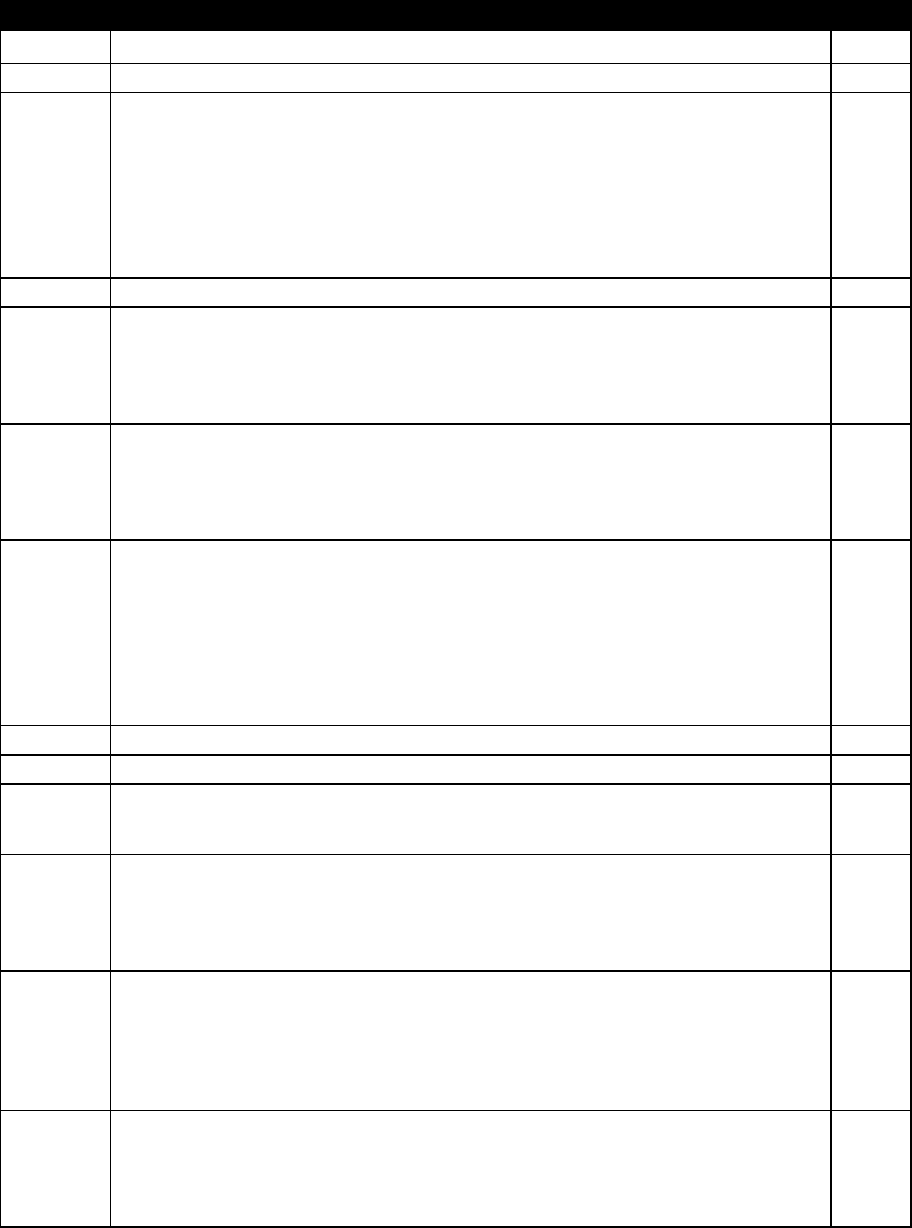
BASEALAINST M11101.1A of 15 Apr 2018
Chapter 3 – Safety and Security
Base Alameda Housing Manual
Table of Contents
Section
Subject
Page
A
Safety
3-1
B
Personal Safety and Security
1. Children
2. Resident Responsibility
3. Theft
4. Call 911
5. Prohibited Areas
6. Possessing Government Property
7. Environmental Risk Assessment (ERA)
3-1
3-1
3-1
3-1
3-1
3-1
3-1
3-1
C
Reporting Emergencies
3-1
D
Fire Prevention
1. Call 911
2. Fire Extinguishers
3. Smoke Detectors
4. Carbon Monoxide (CO) Detectors
3-2
3-2
3-2
3-2
3-2
E
Fire Evacuation Planning
1. Spreading The Word
2. Escape Plan
3. Predetermined Meeting Place
4. Exit Drill In The Home
3-2
3-2
3-2
3-2
3-3
F
Fire Safety
1. Kitchen
2. Living Areas
3. Laundry Rooms
4. Proper Storage
5. Barbecues
6. Flammable Liquids
7. Garages/Carports/Storage Sheds
3-3
3-3
3-3
3-3
3-4
3-4
3-4
3-4
G
Fireplace Safety
3-4
H
Construction Areas
3-4
I
Traffic Safety
1. Speeding
2. Children
3-4
3-4
3-5
J
Earthquakes and Natural Disasters
1. Supplies
2. Getting Prepared
3. Additional Information
4. Local Authorities
3-5
3-5
3-5
3-5
3-5
K
Quarters Security
1. Security Steps
2. Outdoor Resident Identification Signage
3. UH Responsibility
4. UH Room Theft
5. Entering a UH Room Not Assigned
3-5
3-5
3-5
3-5
3-5
3-6
L
Keys and Locks
1. Unit Keys
2. Mail Keys
3. Key Trouble
4. UH Key Issues
3-6
3-6
3-6
3-6
3-6
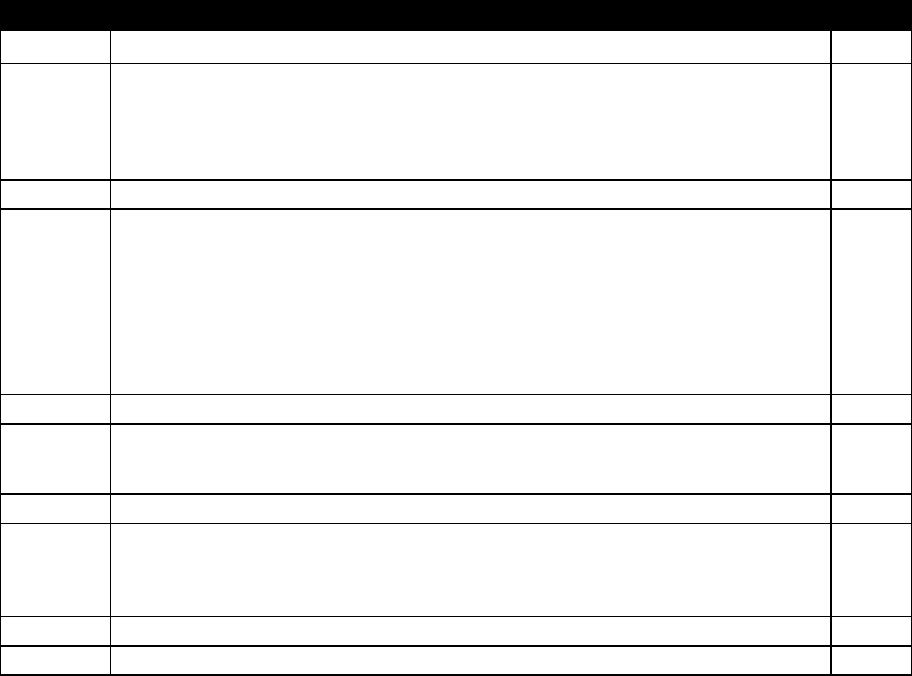
BASEALAINST M11101.1A of 15 Apr 2018
Chapter 3 – Safety and Security
Base Alameda Housing Manual
Table of Contents
Section
Subject
Page
M
Vandalism
1. General
2. Coast Guard Policy on Vandalism
a. Arrest
b. Loss Of Housing Privilege
3-6
3-6
3-6
3-6
3-6
N
Thefts, Break-ins, Burglary
3-6
O
Firearms, Weapons & Explosives
1. Firearms Registration and Possession (CA State Law)
2. Other Weapons
3. Black Powder, Smokeless Powder or Pyrodex
4. Misuse of Weapons
5. Weapons Seizure
6. Storing Dangerous Material
7. Ammunition
3-6
3-6
3-7
3-7
3-7
3-7
3-7
3-7
P
Fireworks
3-7
Q
Joggers, Walkers, Bicyclists, Skaters, and Scooters
1. Helmets
2. Motorized Skate Boards, Mini Bikes and Scooters
3-7
3-7
3-8
R
Violence, Family Violence & Resident Disputes
3-8
S
Fall Prevention
1. Windows
2. Roofs
3. Safety
3-8
3-8
3-8
3-8
T
Compact Fluorescent Lamps (CFLs)
3-8
U
Lead
3-9
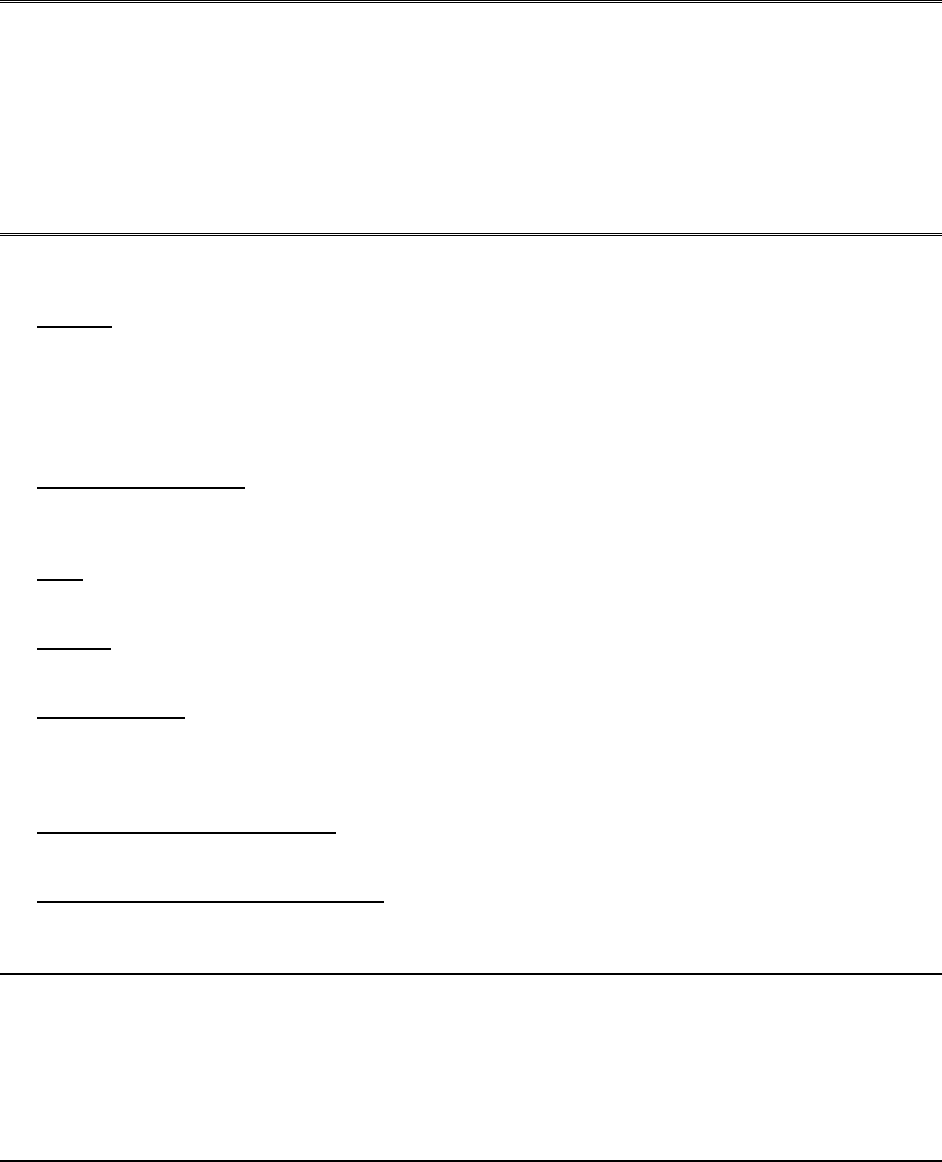
BASEALAINST M11101.1A of 15 Apr 2018
Chapter 3 – Safety and Security
Base Alameda Housing Manual
3-1
A. Safety
Personal security of all residents and their belongings is important. In addition, fires, injuries, and natural
disasters are unexpected and can happen at any time. Resident safety is of the utmost importance to the
Local Housing Staff. It is recommended that all residents and family members be involved in the planning
for the necessary actions that need to be taken for emergencies. The first step is to become familiar with
the contents of this chapter. Remember, the safety and security of human life should always be the most
important priority in any emergency.
B. Personal Safety and Security
1. Children. Residents must be tolerant of children and recognize their natural enthusiasm and
exuberance. However, parents shall ensure the actions of their children do not exceed the bounds of
proper behavior. Always know the whereabouts of children. Ensure children under 6 years of age will
have adequate supervision when outdoors. They should be instructed in good safety practices, such
as not playing in streets or misuse of play equipment. Parents are financially responsible for
damages caused by their children.
2. Resident Responsibility. Each FH/UH resident is responsible for the security of their belongings.
Assigned quarters should be properly locked when residents are absent. The Coast Guard assumes
no responsibility for lost or stolen items.
3. Theft. If a resident believes their quarters have been inappropriately entered, and/or determines that
something has been stolen, immediately report the incident to the Police and Local Housing Office.
4. Call 911. If a resident feels threatened, or has been assaulted, they should immediately call 911 and
report the incident to the Local Housing Office and provide a copy of the police report.
5. Prohibited Areas. Under no circumstance shall anyone climb over any perimeter fencing surrounding
the housing area, whether the fencing separates the housing area from government or private
property. Anyone found trespassing are subject to arrest by local authorities, UCMJ charges and
immediate loss of their housing privilege.
6. Possessing Government Property. Under no circumstance shall anyone possess government
property on the housing premises without proper permission.
7. Environmental Risk Assessment (ERA). Establishes a safety and health risk assessment standard
and specifies responsibilities for identifying, evaluating, and managing asbestos, radon, and lead
risks in owned housing.
C. Reporting Emergencies
Residents should call 911 for fire, medical and other emergencies. Maintenance emergencies should be
called into the appropriate Housing Maintenance Office. Each Local Housing Office will also provide
these numbers upon acceptance of the housing unit (see appendix for listings). Post emergency
numbers, especially those different from 911, by or on each telephone in the home.
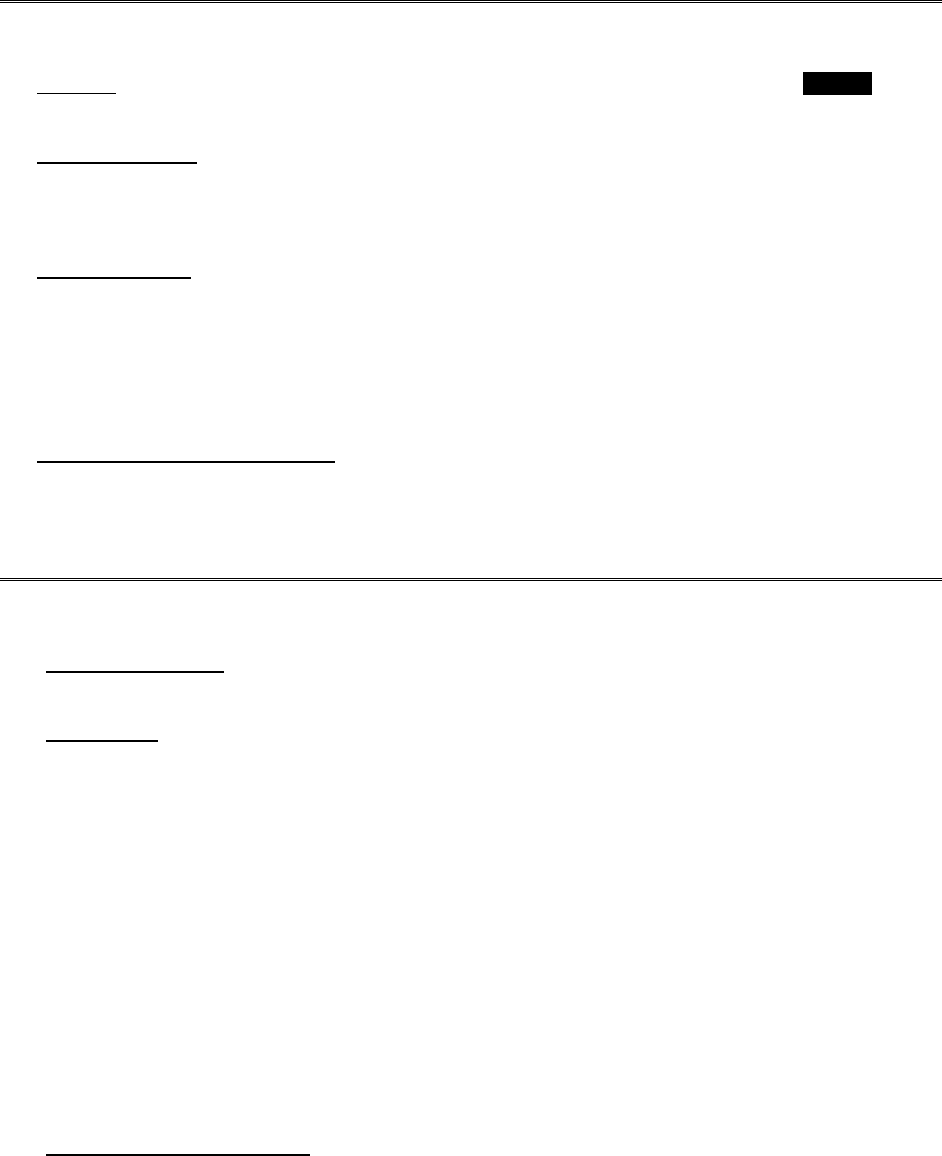
BASEALAINST M11101.1A of 15 Apr 2018
Chapter 3 – Safety and Security
Base Alameda Housing Manual
3-2
D. Fire Prevention
1. Call 911. Fire protection is provided by the local fire department. In the event of a fire call 911. For
general fire department information call the local fire department as listed in the phone book/online.
2. Fire Extinguishers. All government quarters are equipped with fire extinguishers in the kitchen and
garage. Residents should familiarize themselves with the operating instructions, and periodically
check the fire extinguisher(s) to ensure they are properly charged. If by chance no fire extinguisher is
provided, residents should immediately notify their Local Housing Office.
3. Smoke Detectors. All housing units are equipped with hard-wired with battery backup or battery
operated smoke detectors to protect occupants from the threat of a fire. Alarms will be installed in
each bedroom, outside sleeping areas, and on each living floor, to include basements if a gas water
heater or furnace is located there. Take this alarm seriously whenever it goes off – get out of the
house and call the fire department. Each resident is to perform routine maintenance on the smoke
detector (i.e. check it every time the clock is set for the fall and spring time change, and replace the
battery at that time) to ensure its effective operation. Maintenance procedures are listed in Chapter 5.
4. Carbon Monoxide (CO) Detectors. All housing units that use natural gas, have a fireplace, or have a
garage attached directly into the home, will be equipped with CO detectors on all levels, and centrally
located outside each separate sleeping area. Take this alarm seriously whenever it goes off. Contact
the Housing Maintenance Office immediately to have the detector and/or the natural gas system
checked.
E. Fire Evacuation Planning
1. Spreading the Word. Have a method of spreading the word to all members of the unit and even
neighbors if residing in a multi-dwelling unit.
2. Escape Plan. Plan ahead! Each family member must know where to go and how to behave in case
of fire. Draw a floor plan of the home indicating each family member’s escape routes. (Do not use
basements as sleeping areas because of the proximity to the heating system and a lack of two
distinct exits in an emergency). This should include two escape routes from each bedroom. Some
things to do:
a. Always keep escape routes free from obstruction.
b. Make exit drills realistic. Pretend some exits are blocked by fire and practice alternative routes.
c. Pretend the lights are out (use blindfolds) and that some escape routes are filling with smoke.
d. Make sure doors and windows can be unlocked quickly, even in the dark.
e. Sleep with bedroom doors closed to block out deadly heat and smoke, allowing additional time
for an escape.
f. Test doors before opening them. If the door is hot, use another escape route.
g. If trapped, close all doors between you and the fire. Stuff the cracks around doors to keep out
the smoke. Wait at a window and signal for help with a light-colored cloth or flashlight.
h. Practice the escape plan at least twice a year.
i. Remember, a fire drill is not a race. Get out quickly, but carefully.
3. Predetermined Meeting Place. Practice escaping to the outdoors and meeting at a point away from
the house.

BASEALAINST M11101.1A of 15 Apr 2018
Chapter 3 – Safety and Security
Base Alameda Housing Manual
3-3
4. Exit Drill in the Home. A pre-planning and practicing drill commonly referred to by the Fire
Department as “Operation EDITH”, is a nationally recognized fire safety program. Contact the local
fire department for brochures and further information.
F. Fire Safety
1. Kitchen. Stove burners and oven elements should always be turned off when not in use. A pan of
grease or oil can ignite in as little as four seconds, the amount of time it takes to answer the phone.
Many fires occur when pans are left on burners to cool, and the burner is accidentally turned on.
When cooking with grease, keep a lid the size of the pan nearby to place on the pan should a fire
ignite. After placing the lid on the pan, carefully slide the pan off the burner to the stove surface.
Keep baking soda or salt close by to apply to a fire. Most importantly, never use flour or water, or
attempt to carry a burning pan outside. Many serious injuries occur to both the person carrying
flaming pans and others, who might be in the way.
On a monthly basis, remove and clean the fan and screen filter of the range hood. The screen
filter can be placed in the dishwasher. Keeping the range hood free of grease build-up helps in
preventing fires from traveling upward into the cabinet spaces and other parts of the home.
When cooking, keep pan handles pointed inward and not left hanging over the edge of the stove
where they can be grabbed or caught by clothing and pulled off the stove.
Electric cooking appliances (toasters, electric skillets, crock pots, waffle irons, etc.) should never
be left on when anyone leaves the house. Electric appliances should be stored unplugged. Even
when not “on”, electric current flows through the power cords when plugged in and today’s plastic
appliances can melt and catch fire.
If the stove is not working properly, or appears to be overheating or arcing, place a call to the
Housing Maintenance Office.
2. Living Areas. Electrical cords should never run under carpets or in areas where they may be
damaged. Wall outlets should not be overloaded. The use of “octopuses” (outlet plugs designed to
allow multiple appliances to be plugged into a single wall outlet) is not allowed in housing. UL
approved electrical power strips with their own circuit breaker are allowed. Wall outlets that are
broken (including the cover), arcing, or not holding plugs securely should be reported to the Housing
Maintenance Office.
The use of any oil, gas or other type of fuel space heaters are strictly forbidden in housing,
including the garage area.
Candles. Candles should be used carefully and never left unattended. Fires occur when candles
are thoughtlessly placed in areas such as a bathroom too close to towels or left lit in other rooms
when the resident goes to bed. Candles are prohibited in UH.
Outdoor Fireplaces, Smoking/Burn Pots. The use of portable outdoor fireplaces, fire pits and
smoking or chiminea burn pots (metal, ceramic or clay) is strictly prohibited. Any resident found
using these items is subject to eviction.
Use of Portable and Baseboard Heaters. Members must comply with manufacturer’s instructions
when using portable or electric baseboard heaters and should never place such heaters near
flammable objects. The use of portable heaters may trip circuit breakers in the home. If this
occurs their use shall be terminated immediately.
3. Laundry Rooms. Dryer vents (interior and exterior) should be cleaned regularly to prevent build up
of lint, which can be a fire hazard. Contact the Local Housing Office to clean exterior dryer vents
above ground level and interior vents, which may be too long for access. Housing Officers will
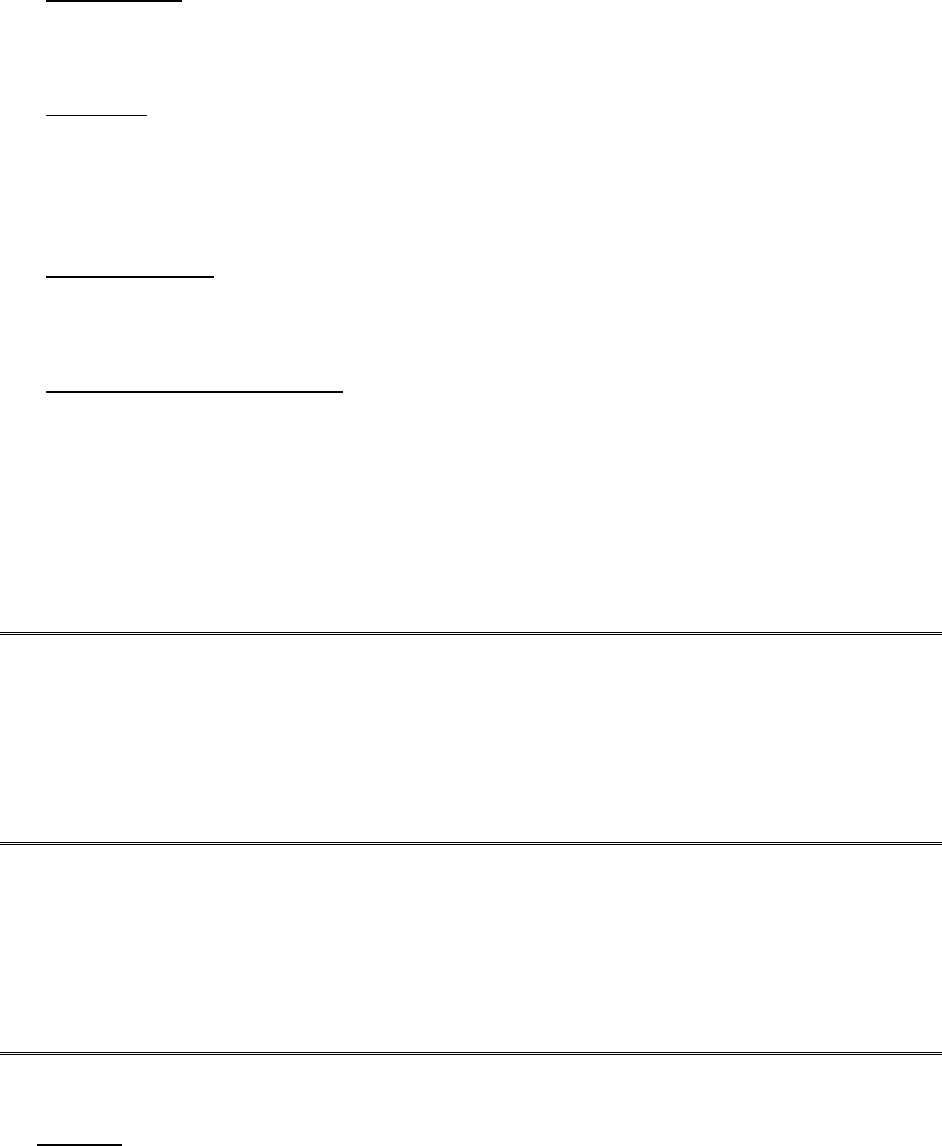
BASEALAINST M11101.1A of 15 Apr 2018
Chapter 3 – Safety and Security
Base Alameda Housing Manual
3-4
inspect dryer vents annually to ensure they are cleaned as necessary to prevent build up of lint.
4. Proper Storage. Don’t store newspaper, cartons, old furniture, or oil soaked rags in enclosed areas
like the storage shed, garage or closets. Keep all items at least three feet (3’) away from the water
heater, furnace or boiler. Dispose of them properly in a solid plastic or metal trash container. Empty
daily. Do not store combustible or flammable liquids in the home.
5. Barbecues. Storage and use of barbecues on balconies is prohibited. Never use an outdoor
barbecue indoors. Use outdoor barbecues/smokers only on open and uncovered non-wooden decks
and patios at least five feet (5’) from any structure. Do not leave fires unattended and have an
extinguishing agent nearby (water or a fire extinguisher). Ensure all flames/coals are
extinguished/cool after use, prior to storing or leaving unattended. Any damages caused to
government/private property by barbecues will be the responsibility of the resident.
6. Flammable Liquids. Gasoline and other flammable liquids like paint, kerosene, and alcohol vaporize
easily and the vapor can ignite from a single spark. Never smoke near flammable liquids. Store
flammable liquids in a cool ventilated area in commercially approved containers away from a
potential ignition source.
7. Garages/Carports/Storage Sheds. Garage/carport/storage shed areas can become a severe fire
hazard if not watched closely.
Storage of flammable liquid, such as gasoline, is restricted to 5 gallons.
Automotive repairs, including bodywork (sanding and painting), and welding are prohibited in
housing.
Garages are not to be used for living spaces and may not be altered or modified for such use.
Do not block or barricade garage doors.
Do not store items near or block water heaters or furnaces.
Oil or gas space heaters are forbidden in garages.
G. Fireplace Safety
In locations that have interior built-in fireplaces, the burning of any material other than seasoned firewood
or commercially purchased fire logs is prohibited. Do not burn household trash in a fireplace. Piling a
mass of combustibles into a fireplace and igniting it can easily cause a chimney fire. Do not store
newspapers and other combustibles close to the fireplace. Use a screen or glass door. Never leave a
fire unattended. The Housing Office will contract for annual inspection and cleaning of fireplaces.
H. Construction Areas
Residents must stay away from potential danger areas such as excavations, ditches, streets or other
areas where construction or repair work is in progress. Parents must counsel their children to stay away
from machinery and construction vehicles for their safety and respect the property of others. Service
members are financially and legally responsible for damages to material and equipment caused by
themselves, their family members or guests at construction sites.
I. Traffic Safety
1. Speeding. Residents must observe the posted speed limits and stop at all stop signs when driving in
the housing areas. Children may dart unexpectedly into the street. Be especially cautious in areas
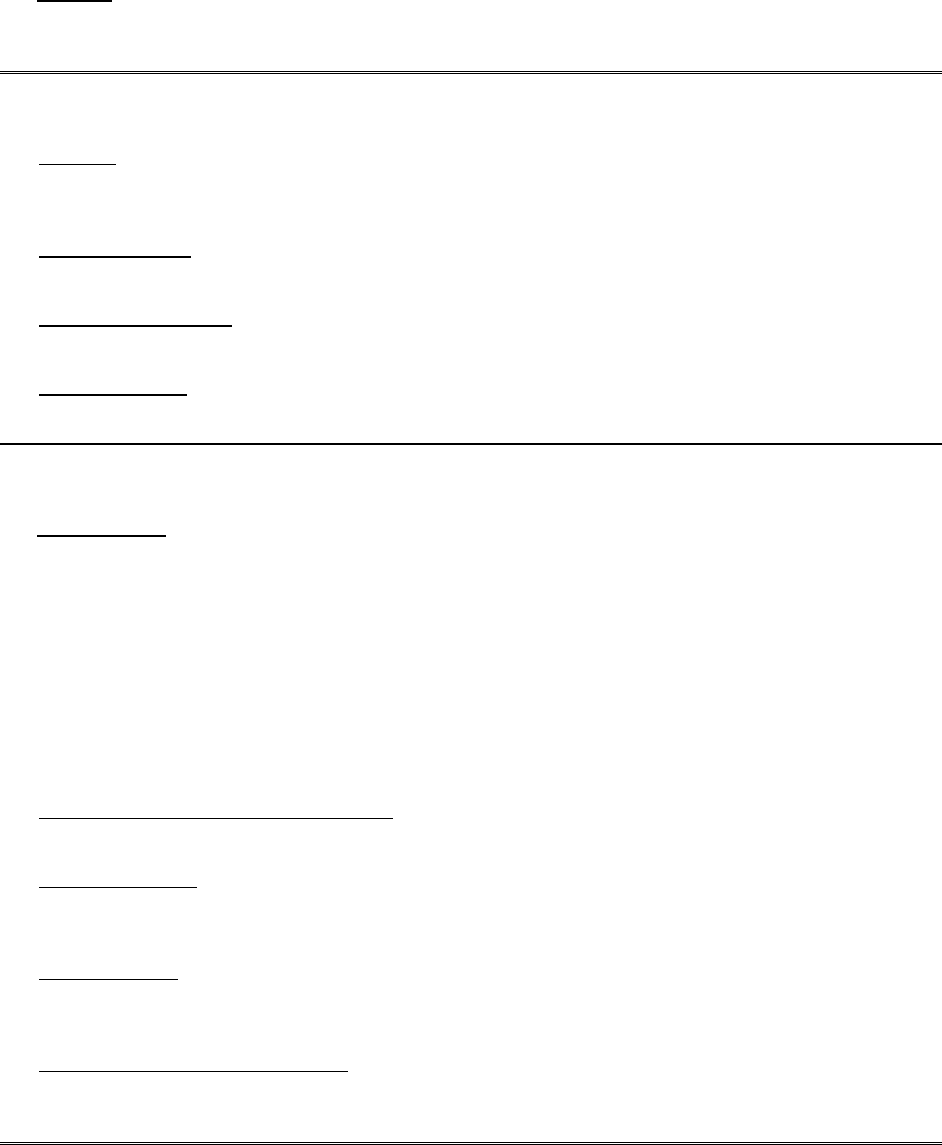
BASEALAINST M11101.1A of 15 Apr 2018
Chapter 3 – Safety and Security
Base Alameda Housing Manual
3-5
where deaf family members reside. There will be signs posted. Failure to adhere to posted speed
limits and stop signs may result in the loss of the member’s housing privilege.
2. Children. Parents should constantly supervise small children and not allow them to play in the
streets. Streets are extremely dangerous and are not playgrounds; this should be impressed upon
the children.
J. Earthquakes and Natural Disasters
1. Supplies. The Coast Guard Housing Offices do not have any emergency supplies to support
residents in an event of a natural disaster. Therefore, it is strongly recommended that each resident
either obtains and/or creates his or her own Emergency Preparedness Kit.
2. Getting Prepared. Chapter 7 of this manual provides guidance on the preparation to take before,
during and after an earthquake/natural disaster.
3. Additional Information. Detailed instructions on what to do if an earthquake occurs can be found in
the front of the local telephone book, on the internet or by contacting the American Red Cross.
4. Local Authorities. In the event of an emergency, residents shall cooperate with local authorities
(military or civilian).
K. Quarters Security
1. Security Steps. The local police department is available to respond to any emergency situation.
Always report suspicious persons and questionable or dangerous actions to the proper authorities.
Always close and lock all doors and windows when no one is home. Anytime the assigned unit will be
vacant for more than three (3) days, residents should follow the below procedures before leaving:
Cancel all daily deliveries (newspaper, mail, etc.) or arrange pickup.
Notify the Local Housing Office for absences for more than (14) days. We also recommend that a
neighbor be notified.
If applicable, make arrangements to have the lawn cut as necessary.
Leave shades in normal position; not completely closed.
Leave a small light on using an automatic timer.
2. Outdoor Resident Identification Signage. Housing unit signage is prohibited from being posted that
identifies the resident by name or unit assigned.
3. UH Responsibility. Each resident is responsible for the security of his/her own belongings. All rooms
will be properly locked when residents are gone. The Housing Office assumes no responsibility for
lost/stolen items or money.
4. UH Room Theft. If a UH resident believes that his/her room has been inappropriately entered, and/or
determines that an article(s) has been stolen, immediately report the incident to the Local Housing
Office and local police department.
5. Entering a UH Room Not Assigned. Members are prohibited from entering another member’s
bedroom, unless invited to do so. Any member found to have entered a locked bedroom not
assigned to them is subject to disciplinary actions under the UCMJ.
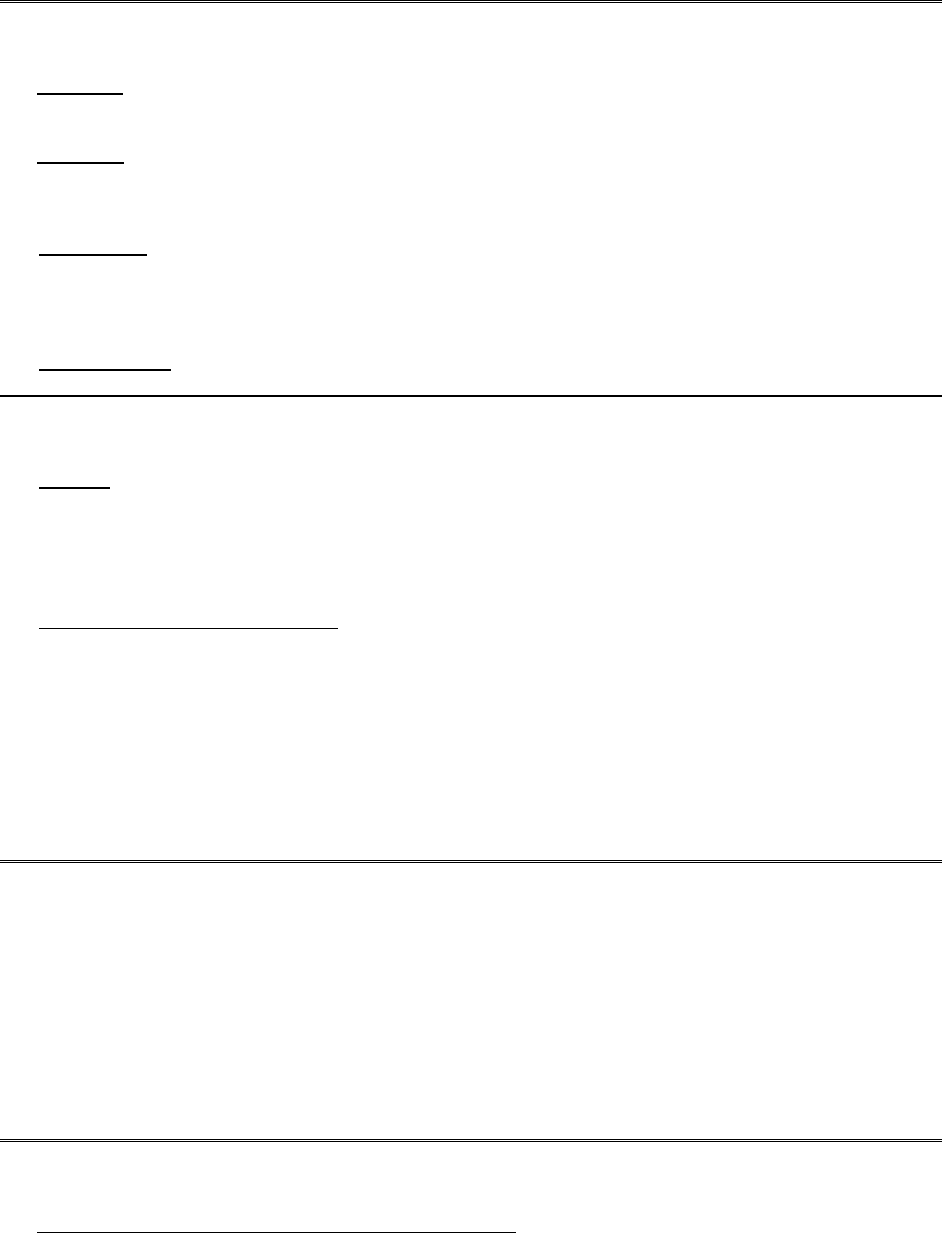
BASEALAINST M11101.1A of 15 Apr 2018
Chapter 3 – Safety and Security
Base Alameda Housing Manual
3-6
L. Keys and Locks
1. Unit Keys. Upon check-in, the Housing Office will issue two keys for FH units and one key for UH
units. Residents are responsible for these keys and must return them upon check-out.
2. Mail Keys. Upon check-in, the Housing Office will issue mailbox keys. Upon check-in, the Local
Housing Office will provide the mailbox location. Residents are responsible for the custody of these
keys. Residents are responsible for any and all address change notifications.
3. Key Trouble. No person shall cut, force, or otherwise tamper with a government locking device, or
any locking device which is not his or her own personal property. Under no circumstances shall any
individual have keys to government locking devices duplicated or change door locks. Problems with
keys or locks shall be promptly reported to the Local Housing Office.
4. UH Key Issues. For further guidance see the appropriate Appendix.
M. Vandalism
1. General. Vandalism, malicious damage to government property, and other such crimes will not be
tolerated. Residents can assist in curtailing and preventing such acts by doing the following:
Reporting any incidents to the local police and the Local Housing Office.
Cooperating in investigations.
2. Coast Guard Policy on Vandalism.
a. Arrest. The respective local police department will be notified and is authorized to apprehend
and prosecute anyone committing vandalism.
b. Loss of Housing Privilege. Residents caught vandalizing can be evicted from FH/UH. At a
minimum, the service member will be issued a Letter of Warning for the commission of the
offense by the service member, family member(s) or guests. Incidents can result in financial
restitution to the government in addition to eviction. Major offenses may be cause for eviction
after the first occurrence.
N. Thefts, Break-ins, Burglary
While most residents are conscious of the possibility of theft, a few feel immune to theft or vandalism
because they live in military housing. Although the chances of burglary or vandalism may be lower, it is
still a possibility. For protection, be sure the home is locked and all personal items such as bicycles and
toys are secured within the quarters and garage doors are closed. All personal property should always
be adequately insured for protection against possible loss. Report any theft or burglary to the police
immediately. Please provide a copy of the police report to the Local Housing Office. Any resident/family
members found to have committed theft or burglary will immediately be evicted. Service members are
subject to UCMJ if found to be involved.
O. Firearms, Weapons & Explosives
1. Firearms Registration and Possession (CA State Law). Personal firearms (rifles, pistols, shotguns,
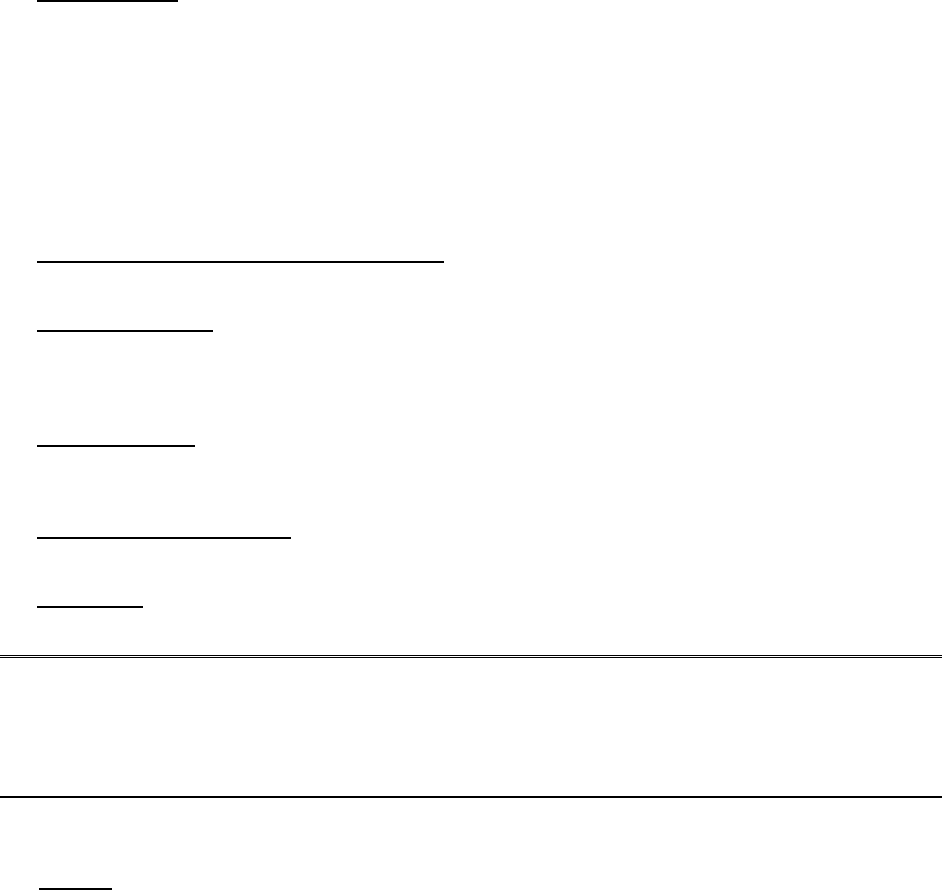
BASEALAINST M11101.1A of 15 Apr 2018
Chapter 3 – Safety and Security
Base Alameda Housing Manual
3-7
BB and pellet guns, air pistols and air rifles) are authorized in housing providing the owner complies
with all applicable Federal, State and Local laws, ordinances and regulations. Coast Guard housing
supports the Lautenberg Amendment, which states that it is a crime to possess a firearm if the
individual has ever been convicted of domestic violence. Personal firearms may not be loaded or
discharged in housing or housing areas. All firearms in the member’s possession must be registered
at the Housing Office and stored in a safe manner. Members submitting false information, or omitting
weapons from the registration form, are subject to disciplinary actions for the UCMJ. Firearms must
either be stored in a locked gun safe or with a trigger or cable lock. Ammunition must be stored in a
locked location separate from the firearm. Weapons prohibited by Federal, State and Local laws,
such as switch blades, stiletto knives, blackjacks, brass knuckles and zip guns, may not be kept on
housing property.
2. Other Weapons. The below list of weapons are potentially dangerous and their use in any
government housing area is prohibited. If such weapons are maintained in housing they must be
registered at the Housing Office.
Bows and Arrows.
Spear Guns.
Swords, long knives, machetes, etc.
Martial arts weapons.
Paintball Guns.
BB or Air Pellet Guns.
3. Black Powder, Smokeless Powder or Pyrodex. Black powder, smokeless powder and pyrodex are
prohibited in housing.
4. Misuse of Weapons. Misuse of a weapon, such as discharging or brandishing, (including air rifles, BB
guns, handguns, rifles, shotguns, spear guns, swords, martial arts weapons or other similar weapons)
within housing will result in immediate eviction, UCMJ prosecution and possible arrest by civilian
authorities.
5. Weapons Seizure. If the AHA, or the Commanding Officer (CO) at the base where the housing site is
located, determines there is a threat to safety, weapons may be seized until such time when the
AHA/CO determines the threat no longer exists.
6. Storing Dangerous Materials. Housing and storage areas must be free of excessive combustibles,
explosives, toxic, or other dangerous materials.
7. Ammunition. Ammunition-related explosive materials will be handled and stored in compliance with
all applicable Federal, State and Local laws, ordinances and regulations.
P. Fireworks
The possession of explosives and fireworks (for sale, storage or use) is prohibited in MH/UH. Fireworks
do not include paper caps or highway flares.
Q. Joggers, Walkers, Bicyclists, Skaters and Scooters
1. Helmets. All residents under 18 must wear an approved bicycle helmet while operating a bicycle or
skating (this includes skate boards, in-line skates and scooters) in the Coast Guard Housing area. All
residents shall observe the following rules:
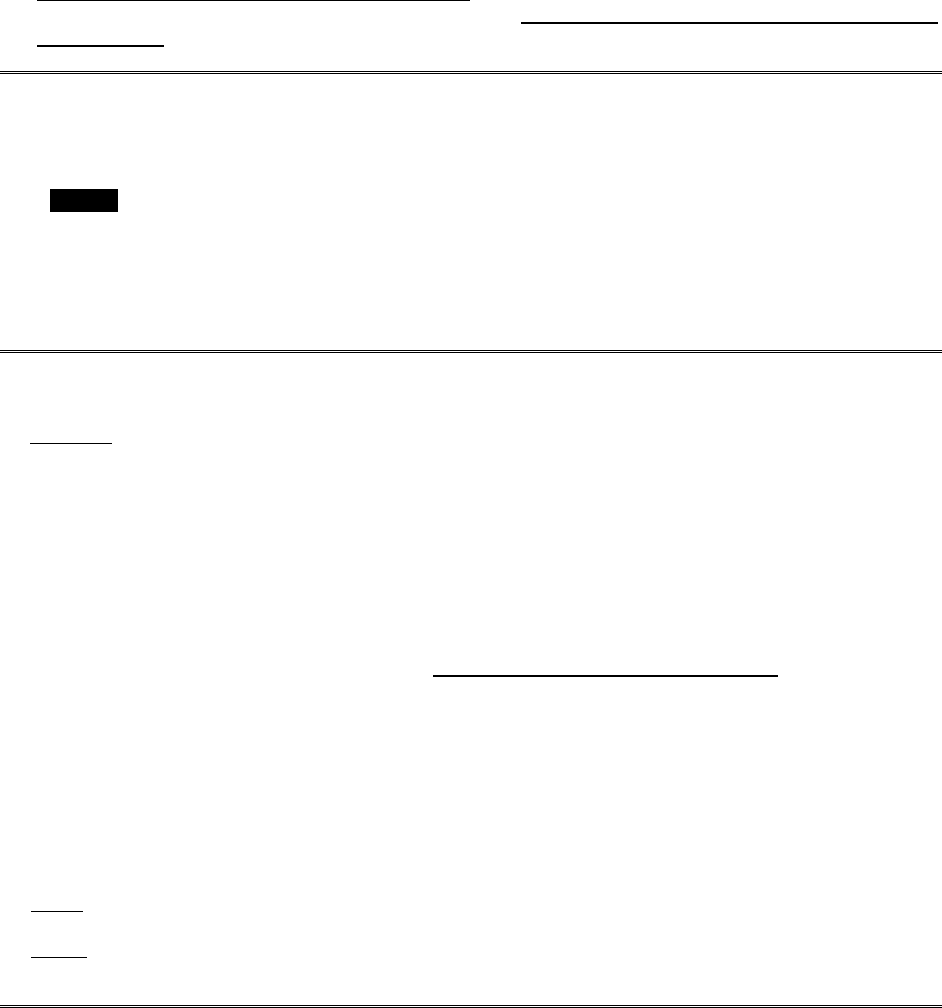
BASEALAINST M11101.1A of 15 Apr 2018
Chapter 3 – Safety and Security
Base Alameda Housing Manual
3-8
Do not interfere with the normal traffic flow.
During evening or periods of low visibility, wear reflective tape or clothing.
Joggers and walkers should use running paths and sidewalks.
Do not slide (grind) on handrails, stairs or any government property while using in-line skates,
skateboards or scooters.
2. Motorized Skateboards, Mini-Bikes and Scooters. The use of motorized skateboards, mini-bikes and
scooters in Coast Guard housing is strictly prohibited. Only licensed motorized vehicles may be used
in CG housing.
R. Violence, Family Violence & Resident Disputes
Residents should try to resolve disputes by communicating their concerns with each other. However, in
some situations this does not always happen. If a situation becomes violent (verbal or physical) residents
shall call 911, and contact the Local Housing Office. Minor disputes can be reported by submitting a
Resident Complaint Form.
Any acts of family violence shall be immediately reported to the local police, and to
the Coast Guard Work Life Staff for the area. Please provide a copy of the police report
to the Local Housing Office.
S. Fall Prevention
1. Windows. While there are many important safety measures to be taken in any home environment,
falls from windows, or falls from heights where injury could occur, are of particular concern as there are
so many small children in our neighborhoods. Children must be taught the dangers of playing near
second story windows as they tend to be fearless when it comes to heights and are unaware of the
consequences of a fall from a high place. Please take the appropriate safety measures to avoid a
falling accident in the home. The following tips are provided to assist in creating a safe environment
for any children.
Do not put furniture, toy boxes, or beds under a window or children may climb up and fall out of
the window.
Screens are meant to keep insects out. They are not a device to hold people in. A light push on
a screen could make it fall out and the child may go with it if they are up high enough and off
balance.
If a window must be open, make sure it is secured so it cannot open more than 4 inches.
Window locks for the tracks of sliding windows are available at any hardware store.
Consider that fire and rescue personnel will need access in an emergency.
Never leave small children upstairs without adult supervision where they can gain access to an
unsecured window.
Inform and educate children about avoiding a falling accident.
2. Roofs. All residents are prohibited from accessing roofs for any purpose.
3. Safety. The Local Housing Office encourages each resident to take time out for safety. Please make
sure measures are taken to avoid a tragic accident in the home.
T. Compact Fluorescent Lamps (CFLs)
The home may contain Compact Fluorescent Lamps (CFLs). CFLs are an energy efficient and cost

BASEALAINST M11101.1A of 15 Apr 2018
Chapter 3 – Safety and Security
Base Alameda Housing Manual
3-9
effective lighting alternative to regular incandescent light bulbs. They use approximately 75% less energy
than a regular light bulb and can last up to 10 times longer. However, CFLs contain a very small amount
of mercury sealed within their glass tubing. If a bulb breaks, follow the instructions below:
a. Avoid the affected area and immediately open windows and leave the room for 15 minutes.
b. Using leather work gloves with an inner nitrile, or, rubber or non-latex gloves, collect the
fragments for appropriate disposal. Do not vacuum or sweep fragments, since the vacuum or
broom may become contaminated with mercury powder. Use of sticky tape on carpet may collect
some remaining powder. In cases where powder remains visible, carpeting may have to be cut
out or replaced. If so, contact the Housing Maintenance Office.
c. Place fragments in a secondary containment (a 6 mil plastic bag) and wash your hands.
Under California Law CFLs may not be disposed of in the normal household trash. Seek disposal at the
local household hazardous waste disposal point for proper disposal. Additional information may be found
on the web at:
www.epa.gov
U. Lead
The melting, casting, machining, soldering, and buffing of lead is prohibited. Any violation may result in
eviction.

BASEALAINST M11101.1A of 15 Apr 2018
Chapter 3 – Safety and Security
Base Alameda Housing Manual
3-10
BLANK

BASEALAINST M11101.1A of 15 Apr 2018
Chapter 4 – Neighborhood Regulations
Base Alameda Housing Manual
Table of Contents
Section
Subject
Page
A
Purpose
4-1
B
Pets
1. Definition
2. Discussion
3. UH Pets
4. Pet Agreement
5. Maximum Amount
6. Pet Sitting
7. Control of Pets
a. Abandonment
b. Dogs
c. Cats
d. Playgrounds/Athletic Fields
8. Clean Up
9. Removal By Authorities
10. Registration/Inoculations
11. Complaints
12. Bites and Aggressive Acts
13. Pet Damage
14. Animal Mistreatment
15. Dead Pets
16. Pets In Garages/On Balconies
17. Pet Care During Family’s Absence
18. Flea Problem
19. Lingering Pet Odors
20. Random Pet Cleanliness Inspections
21. Violations
4-1
4-1
4-1
4-1
4-1
4-1
4-1
4-1
4-1
4-2
4-2
4-2
4-2
4-2
4-2
4-2
4-2
4-2
4-3
4-3
4-3
4-3
4-3
4-3
4-3
4-3
C
Businesses & Yard Sales
1. Home Businesses
2. Request Review
3. Resident Responsibilities
4. Yard Sales
4-3
4-3
4-3
4-4
4-4
D
Operation Of Family Day Care
1. Definition
2. Policy
3. 10 Hour Policy
4. Authorization
4-4
4-4
4-4
4-4
4-4
E
Child Supervision Standards
4-5
F
Occupant Relations
1. Golden Rule
2. Neighborhood Relationships
3. Complaints
4. Actions Taken
4-5
4-5
4-5
4-5
4-5
G
Motor Vehicles
1. Registration
2. Speed Limits
3. Road Use
4. Parking
4-5
4-5
4-6
4-6
4-6

BASEALAINST M11101.1A of 15 Apr 2018
Chapter 4 – Neighborhood Regulations
Base Alameda Housing Manual
Table of Contents
Section
Subject
Page
G
(cont)
a. Assigned Parking
b. Open Parking Spaces
c. No Parking
d. Unauthorized Vehicles
e. Visitor Parking
f. Electric Cars
5. Recreational Vehicles and Equipment Control
6. Storage of Small Recreational Items
7. Vehicle Maintenance
8. Vehicle Washing
9. Electric Vehicles
4-6
4-6
4-6
4-6
4-6
4-6
4-6
4-7
4-7
4-7
4-7
H
Courtesy Rules
1. Quiet Hours
2. Playgrounds
3. Curfew
4. Bands, DJ’s and Musical Instruments
5. Parties
4-7
4-7
4-7
4-7
4-7
4-7
I
Pools, Spas and Hot Tubs
1. Pools
2. Swimming Pools
3. Spas and Hot Tubs
4-8
4-8
4-8
4-8
J
Holiday Lighting and Decorations, Political or Business Signage and
Objectionable Material
1. Holiday Lighting and Decorations
2. Political, Business and Other Signage
4-8
4-8
4-8
K
Personally Owned Play Equipment
1. Play Equipment
2. Approval
3. Insurance
4. Portable Play Equipment
4-8
4-8
4-8
4-9
4-9
L
Telephones and Cable/Satellite Television
1. Phones
2. Telephone Repair Responsibility
3. Government Responsibility For Telephone Jacks
4. Telephone Line Repairs
5. Cable and Satellite Television
4-9
4-9
4-9
4-9
4-9
4-9
M
Live-In Aides
4-9
N
Prohibited Areas
4-10
O
Noise Levels
1. Excessive Noise
2. Complaints
4-10
4-10
4-10
P
Shipboard Personnel, Deployments And Family Departures
4-10
Q
Hazardous Material
4-10
R
Solicitation
4-10
S
Cleanliness and Grounds Maintenance
1. General
2. Grounds Maintenance
4-11
4-11
4-11
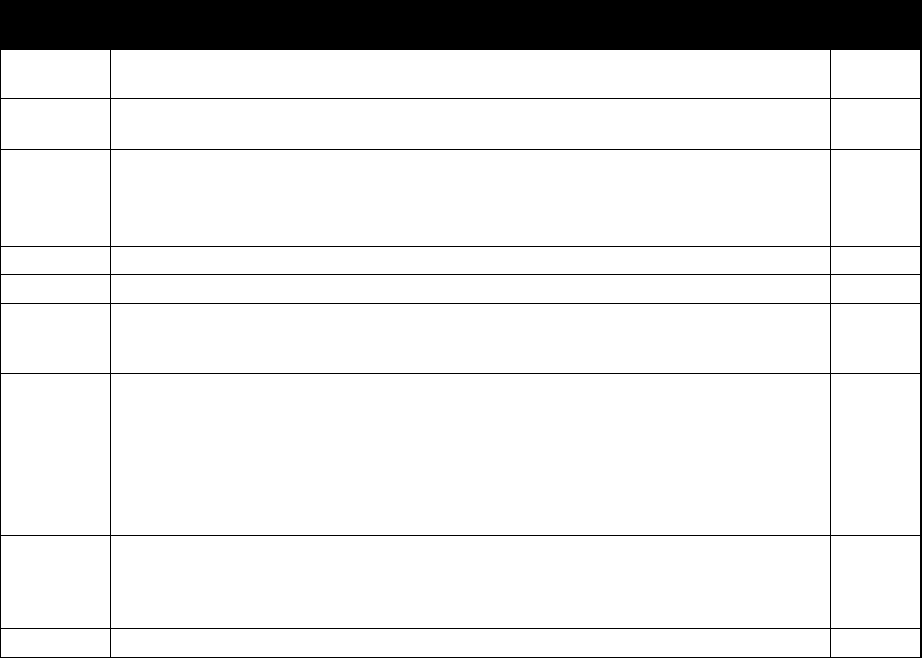
BASEALAINST M11101.1A of 15 Apr 2018
Chapter 4 – Neighborhood Regulations
Base Alameda Housing Manual
Table of Contents
Section
Subject
Page
S
(cont)
3. UH Interior Common Areas
4. UH Individual Bedrooms
4-11
4-11
T
Laundry Areas
1. Washers/Dryers
2. UH Washers/Dryers
3. Unsafe Appliances
4-11
4-11
4-11
4-11
U
Tobacco Product Use
4-11
V
Controlled Substances
4-12
W
Decorations and Plants in UH
1. Decorations
2. Houseplants
4-12
4-12
4-12
X
Alcoholic Beverages in UH
1. Alcoholic Beverages
2. Consumption
3. Legal Drinking Age
4. Providing Alcohol to Minors
5. Persons under 21
6. Alcoholic Containers
4-12
4-12
4-12
4-12
4-13
4-13
4-13
Y
Etiquette in UH
1. Clothing
2. Common Courtesy
3. Personal Relationships
4-13
4-13
4-13
4-13
Z
UH Shipboard Personnel and Deployments
4-13

BASEALAINST M11101.1A of 15 Apr 2018
Chapter 4 – Neighborhood Regulations
Base Alameda Housing Manual
BLANK
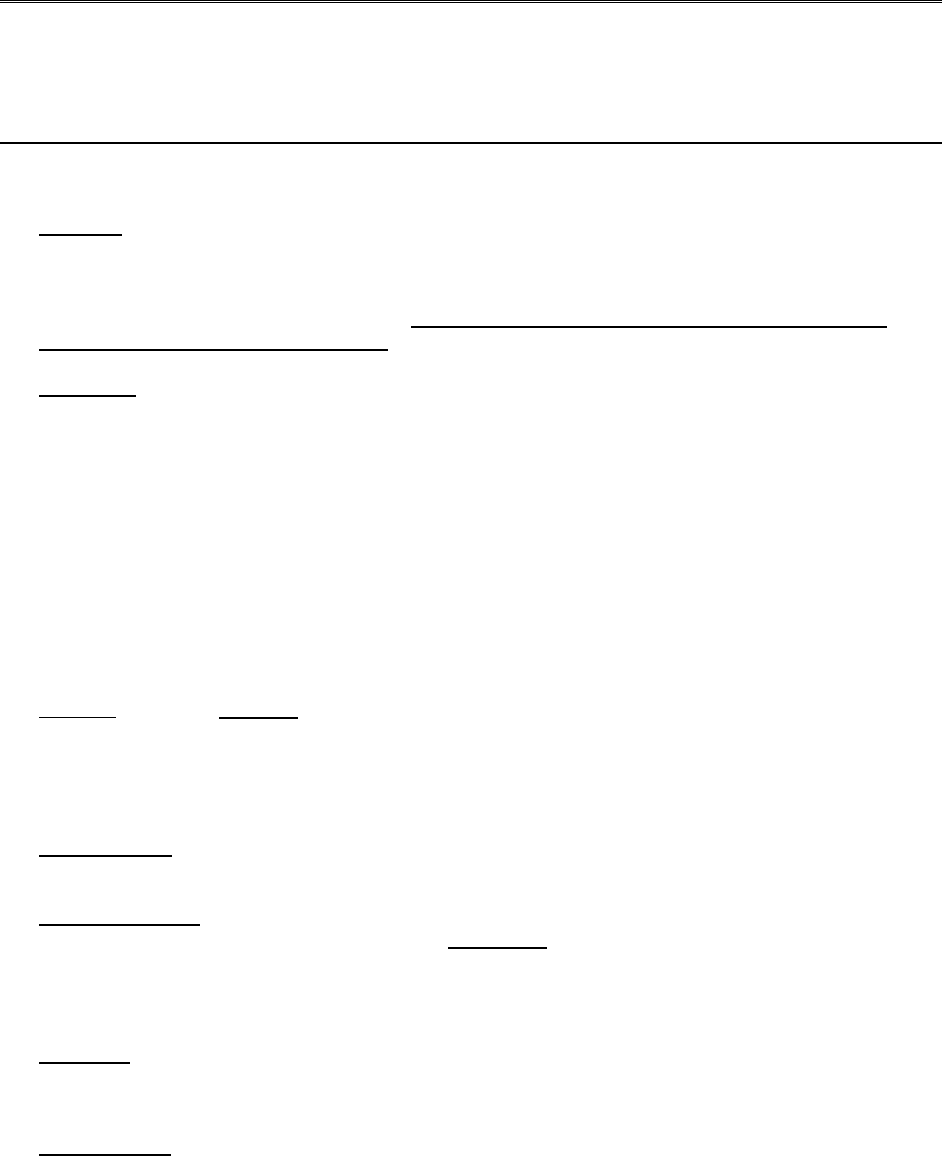
BASEALAINST M11101.1A of 15 Apr 2018
Chapter 4 – Neighborhood Regulations
Base Alameda Housing Manual
4-1
A. Purpose
This chapter provides basic information on housing policies, regulations, and procedures within the
housing community.
B. Pets
1. Definition. Pets, defined as small, domesticated animals such as dogs or cats along with hamsters,
gerbils, birds and fish are allowed in family housing. Exotic animals such as, but not limited to,
reptiles, rodents (other than hamsters and guinea pigs), ferrets, hedgehogs, skunks, rats, raccoons,
squirrels, monkeys, arachnids, or any farm animal, such as but not limited to, rabbits, chickens, pigs,
are prohibited in all government housing. Violation of any pet policy can result in the loss of the
privilege to live in government quarters.
2. Discussion. The keeping of pets is a conditional privilege extended to families who exhibit
responsible behavior and control of their pets. Residents are financially and legally responsible for
their pets. Pet owners (guardians) must control their animals at all times to maintain a safe and
pleasant community for everyone. This is particularly true in the case of dogs. Unattended dogs
constitute a public hazard and will not be tolerated. Certified military working dogs and
service/emotional support animals will be considered pets. Therefore, they will count towards the two
pet limit. Members are responsible for ensuring that pets are in compliance with all applicable state,
federal and local laws and ordinances associated with ownership, registration, vaccination, licensing
and control. Breeding and raising animals of any species is prohibited. Members are highly
encouraged to have their animals spayed or neutered in order to reduce the possibility of destructive
or nuisance behavior. The AHA has the final determination for allowing pets in family housing. Pets
are not permitted in any leased housing. In all cases, damage caused by pets is the responsibility of
the member.
3. UH Pets. Fish are the only pets authorized in Coast Guard-owned UH. All pets are prohibited in
leased UH. Fish can be in fishbowls or in aquariums. Aquariums can be no larger than 25 gallons.
Any UH residents assigned afloat or to duty that keeps them away for extended periods of time shall
arrange for the care of any fish and notify the Local Housing Office of these arrangements prior to
departure.
4. Pet Agreement. Residents who have or acquire a pet(s) must submit/have a signed Pet Agreement
on file with the Local Housing Office, including a picture in the case of dogs and/or cats.
5. Maximum Amount. The absolute maximum number of dogs and cats that may be kept in a housing
unit is two dogs or two cats or one of each. A reasonable number of other pets, such as caged birds,
fish, hamsters, and the like, may be maintained. The reasonable number will be determined by each
Local Housing Office and will be based on factors such as: type and size of unit, number of family
members, conditions at site, impact on neighbors, etc.
6. Pet Sitting. Pets which are registered with the Housing Office may be cared for at a neighbor’s home
provided the visiting pet does not exceed the two pet per household limit. Caring for pets which are
not registered is not permitted in housing.
7. Control of Pets.
a. Abandonment. Abandonment of pets is prohibited.

BASEALAINST M11101.1A of 15 Apr 2018
Chapter 4 – Neighborhood Regulations
Base Alameda Housing Manual
4-2
b. Dogs. Dogs will not be prohibited from housing based on breed, but may be removed for
demonstrated instances of aggressive behavior. Dogs shall be kept inside the pet owner’s
residence, or when outside the residence, inside a fenced backyard, a housing office approved
fenced area or dog run, or on a leash with the pet’s owner. Dogs outside a fenced area must be
on a leash not longer than 8 ft. and under the direct supervision of a responsible person at all times.
Dogs shall not be tied to any stationary object outside the residence. All dogs must wear an
identification tag and be licensed with the local animal authority as required by law. Dogs found
loose and/or without tags may be impounded by local animal control officers.
c. Cats. All cats must wear an identification tag or have a chip implanted. In addition, cats must be
licensed with the local animal authority if required by local law.
d. Playgrounds/Athletic Fields. Playgrounds and athletic fields are OFF LIMITS to animals at all
times.
8. Clean Up. Areas where pets are kept (both indoors and outdoors) shall be maintained in a sanitary
condition at all times. It is mandatory for pet owners to clean up after their pets when taking them
for a walk. Failure to do so will result in a violation notice and may result in revocation of the owner's
privilege to keep pets, or may result in eviction from family housing.
9. Removal by Authorities. Any loose pet(s) picked up repeatedly in a six-month period shall be
removed from the housing area, and the pet owner will lose the privilege to have another pet while a
resident in government quarters. In all cases, when a pet is picked up, owners are responsible for
fines, kennel fees, and any fee for emergency treatment.
10. Registration/Inoculations. Residents shall supply a copy of pet registrations to the Housing Office
within ten (10) days of the arrival of the pet. Residents shall also supply a photo of their pet(s) so
they can be identified by the Housing Office and/or local authorities. All dogs/cats over four months
of age shall be inoculated in accordance with local laws. Inoculations shall be kept current.
Registration or licensing of all pets will be in accordance with local animal control laws. It is the
responsibility of the member to update their housing records, verifying they reflect accurate and
current pet information.
11. Complaints. No pet shall be a public hazard or nuisance. If you feel your rights are being infringed
upon by another person's animal (by noise, the creation of unsanitary conditions, property damage, or
otherwise) and have been unable to arrive at a solution with the animal's owner, file a written
complaint with the Housing Office.
12. Bites and Aggressive Acts. Any animal that menaces or bites a person or another animal will be
ordered by the Housing Office to be permanently removed from the housing area within five (5) days
of the incident. Aggressive acts are unprovoked barking, growling, or snarling at people approaching
the animal, aggressively running along fence line when people are present, biting or scratching
people, and escaping confinement or restriction to chase people. Failure to remove an aggressive pet
may result in the member’s loss of their housing privilege. Personnel who have been bitten by an
animal should report for medical treatment and shall file a notice of the biting with local animal control
authorities and the Housing Office.
13. Pet Damage. Residents are responsible for all acts of their animal, including damage to Government
or personal property, and clean up of feces deposited on property or streets. When the government
is required to correct damages of this nature, the service member will be billed at current hourly labor
and material costs. When damage caused by pets is found, the member is responsible for immediate
restoration of the property and must indicate what measures will be taken to avoid further
occurrences. Upon termination of quarters, any and all repairs to damaged quarters and grounds
must be completed and ready for inspection.
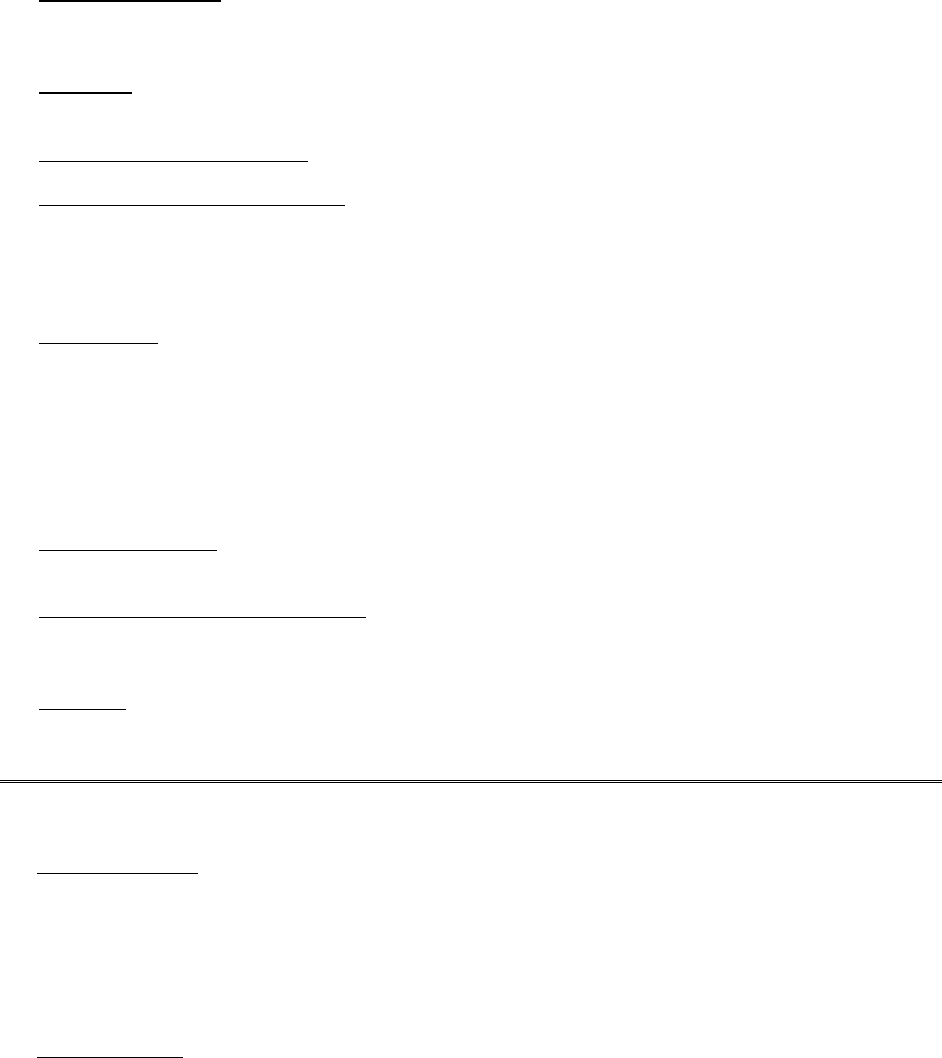
BASEALAINST M11101.1A of 15 Apr 2018
Chapter 4 – Neighborhood Regulations
Base Alameda Housing Manual
4-3
14. Animal Mistreatment. The tormenting or inhumane treatment of domestic or wild animals by residents
will not be tolerated. If and when detected the violator(s) will be reported to the Housing Office and
the local animal control authorities.
15. Dead Pets. Pets will be disposed of in accordance with local animal control regulations (call local
animal control authorities for guidance).
16. Pets In Garages/On Balconies. Residents shall not keep their pets in the garage or on their balcony.
17. Pet Care During Family’s Absence. Pets are not to be left in the quarters or yard unattended while
the resident is away for more than 24 hours. Even though the family may have someone care for
their pet(s) during their absence, the member will still be fully responsible for his/her pet(s) and their
actions. Residents shall notify the Housing Office with the name and number of the pet guardian prior
to departure.
18. Flea Problem. It is the member’s responsibility to exterminate fleas in their yard and unit. If at any
time during occupancy a flea infestation is found, the member will be directed by the Housing Office,
at the member’s expense, to have the unit/yard treated for fleas. Proof of the treatment (a receipt
from a California-licensed pest control contractor) will be provided to the Housing Office. At the time
of vacating their assigned quarters, the member will ensure there is no flea infestation. If fleas are
not properly/adequately exterminated, the member will be held financially responsible for an adequate
extermination. The member will be held financially responsible to eliminate the problem of pest
infestations detected within 60 days of their final inspection.
19. Lingering Pet Odors. The member will be held financially responsible to eliminate the problem of
lingering pet odors detected within 60 days of their final inspection.
20. Random Pet Cleanliness Inspections. Each pet owner will have a random yearly pet/house
cleanliness inspection performed by the Housing Office staff. In addition, “Just Cause” inspections
may be conducted at any time.
21. Violations. Violations of these regulations will result in the loss of the privilege to maintain pets and
may result in financial restitution to the government. In addition, violations may also result in the loss
of the privilege to live in government quarters.
C. Businesses & Yard Sales
1. Home Businesses. Requests to operate a private commercial enterprise in government housing must
be made in writing to the LHO and approved by the AHA in advance of starting the operation.
Businesses such as Avon, Tupperware, cookware sales, jewelry sales/parties, etc. are acceptable.
Computer websites are authorized providing they do not incur excessive utility charges, meet local,
state, federal regulations, and do not bring discredit to the Coast Guard or U.S. Government. All
requests to conduct a private business must be carefully evaluated. In no case may government
resources (e.g. utilities) be used for individual profit.
2. Request Review. When reviewing a request, the LHO/AHA will consider:
Potential government liabilities.
State and local ordinances and licensing requirements.
Competition with the base’s officially sanctioned businesses.
Prospective advertising practices.
The impact on community tranquility or safety.
The impact of any modification to quarters that may be necessary.

BASEALAINST M11101.1A of 15 Apr 2018
Chapter 4 – Neighborhood Regulations
Base Alameda Housing Manual
4-4
3. Resident Responsibilities. Residents are responsible for any costs, alterations, damages or repairs
necessary to government property caused by or for this business.
4. Yard Sales. Residents may have yard sales. Residents are limited to two (2) yard sales per year,
limited to two consecutive days. Items are not to be left outside the residence overnight. Signs shall
not be placed off property on road signs, telephone poles, mailboxes, etc. Signs on Coast Guard
property may be posted no sooner than the day before the sale and must be removed by the end of
the day of the sale.
D. Operation of Family Day Care
1. Definition. A Family Day Care Home is defined as any private residence which receives children for
temporary custody and care on a regular basis during part or all of the day. Uncertified childcare by
adults who have not had background checks or specialized training (i.e., CPR, child abuse
prevention, child health and sanitation) poses risks to children’s safety and increases potential for
injury, abuse, and neglect.
2. Policy. The Coast Guard does not regulate occasional child-care among families. Coast Guard
policy only covers child-care that is provided by programs or individuals more than 10 hours per
week on a regular basis. Frequently this policy is misunderstood and misinterpreted. There are
reports that neighbors are afraid to care for a friend’s child overnight fearing they may violate the “10
hour rule”. Much of the confusion centers on conditions under which a person must become a Family
Child Care (FCC) provider. Both the “10-hour” and the “regular basis” conditions must be met for this
requirement to be applied.
Example: If a neighbor cares for a child one hour every day, every week, and on a regular basis, but
not more than 10 hours per week, this person would not be required to become a FCC provider. If
the neighbor cares for a child five hours every day, weekly, this constitutes more than 10 hours per
week on a regular basis and this person would be required to be a FCC provider.
3. 10 Hour Policy. The Coast Guard must balance the ability of families to rely on one another to meet
their short-term child care needs while protecting the safety and well-being of children. The “10-hour”
policy is not an arbitrary decision, but is the standard most frequently used by state, county, and other
comparable licensing agencies to determine when an individual providing child care should be
monitored by an outside agency. This ten hour limitation:
Is a reasonable “parameter” that differentiates between occasional neighborly “baby-sitting” and
child care conducted as a business.
Protects children from being in unregulated child care settings.
Reduces the potential for neglectful accidents and child abuse.
Provides consistency in policy throughout the Coast Guard.
The “10 hour child care limit” is very flexible and accommodates most “occasional” or short-term child
care needs. Raising the 10-hour limit would allow individuals to establish unmonitored part-day
preschools and after-school programs in their government quarters. National studies strongly indicate
that program oversight and adult training are key indicators of safe, quality child-care. It is clearly not
the intent to regulate, restrict, or preclude occasional child-care among Coast Guard families. Short-
term care by neighbors is a way to transition between spouses who work different shifts, or for
members required to work all day on weekends. In fact, “neighbors helping neighbors” is one solution
to providing hourly care.
4. Authorization. Residents of Coast Guard owned housing may operate a "Family Day Care Home"
provided they meet the above criteria and prior written authorization is received. If child-care is being
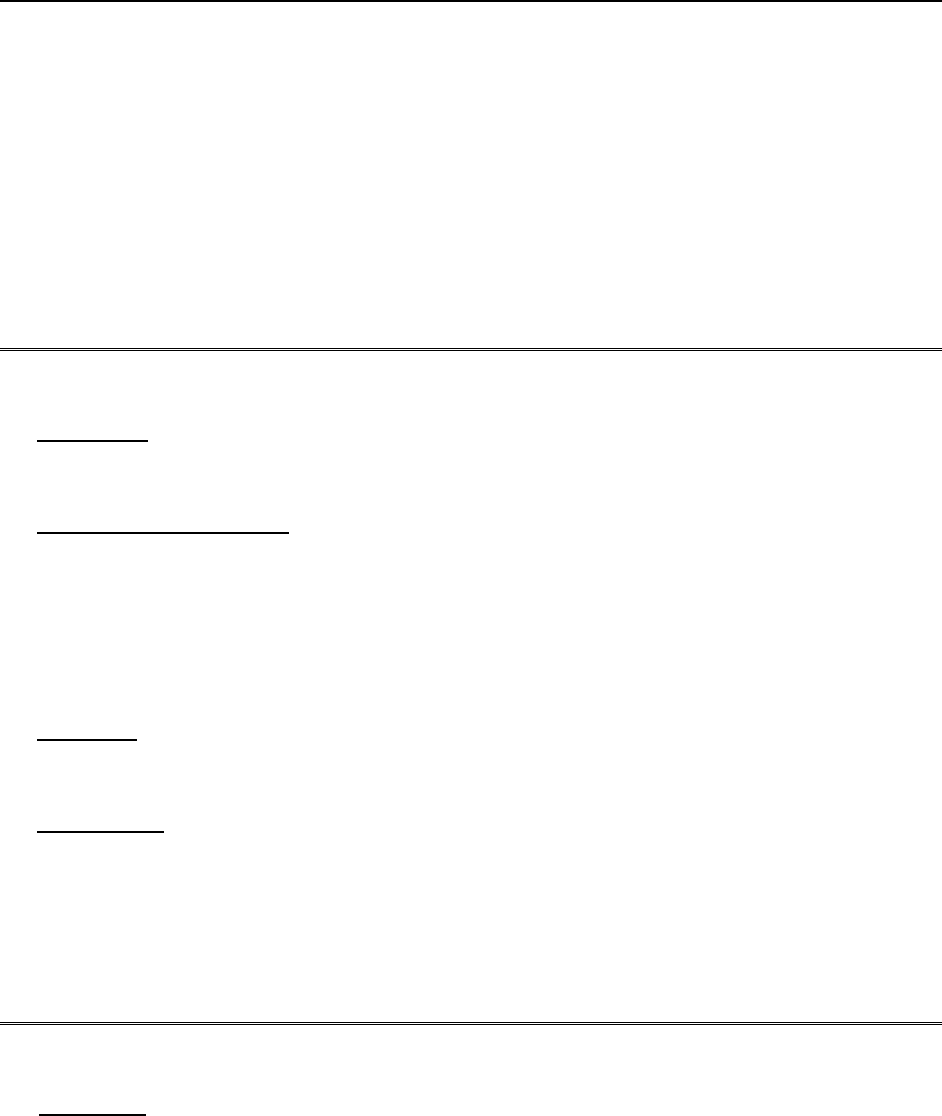
BASEALAINST M11101.1A of 15 Apr 2018
Chapter 4 – Neighborhood Regulations
Base Alameda Housing Manual
4-5
provided more than 10 hours a week, then the Coast Guard must certify the individual. Please
contact the local Work Life Office to request an FCC application packet or for any questions about the
FCC program and policies.
E. Child Supervision Standards
Providing proper, timely supervision of a child's activity both inside and outside the home is the parent’s
and/or guardian's responsibility. Parents must assess the maturity and judgment of the child, his/her
capacity for self-care in any given situation, and accordingly set limits on the child's activity, whereabouts,
whom he/she associates with, and when he/she will return home. Failure to provide adequate
supervision and protection of a child may result in an allegation of child neglect. Such parental or
guardian behavior will be promptly addressed with appropriate action. Residents must be tolerant of
children and recognize their natural enthusiasm and exuberance. However, parents shall ensure the
actions of their children do not exceed the bounds of proper behavior. Parents should always know
where their children are. Children should be instructed in good safety practices, such as not playing in
streets or misuse of play equipment. Parents are financially responsible for damages caused by their
children.
F. Occupant Relations
1. Golden Rule. Use the Golden Rule (“Do unto others as you would have them do unto you”) in dealing
with neighbors. Try to keep household noise to a minimum, keep the yard clean, know children’s
whereabouts, control pets, and don’t let the party get too loud or run too late.
2. Neighborhood Relationships. If difficulties are experienced with a neighbor, please try to settle the
problem peaceably. If all efforts meet with failure, file a complaint in writing to the Local Housing
Office. A phone call will not suffice. If it is serious enough to warrant a phone call, it is serious
enough to be put in writing. The Housing Office will place a copy of the complaint in the member’s file
and the file of the individual in question. The Housing Office will investigate and attempt to gain
resolution to the problem. A report of the investigation, results, and action will be made a matter of
record. Occupants who are unwilling to resolve problems or who are a source of conflict, disturbing
the peace and harmony of the neighborhood, may have their assignment to quarters terminated.
3. Complaints. A complaint is normally defined as violations of Coast Guard Housing regulations,
infractions of the UCMJ or a person’s civil rights, and/or city, state, and federal ordinances, laws, and
regulations.
4. Actions Taken. Administrative action will be taken when residents or their guests display disruptive
behavior, violate rules, or are involved in misconduct in the housing area. Depending upon the
situation, any or all of the following actions may be taken:
The service member will be counseled by the LHO or representative. A memorandum for the
record will be written and filed in the housing occupant’s file.
The military member will be issued a letter of warning from the LHO.
Eviction from quarters may result.
G. Motor Vehicles
1. Registration. All motor vehicles in Coast Guard housing areas must have valid state registration and
carry liability insurance in accordance with state laws. Unregistered, abandoned, improperly parked,
inoperable motor vehicles are not allowed in the housing area. Violators will be notified in writing to

BASEALAINST M11101.1A of 15 Apr 2018
Chapter 4 – Neighborhood Regulations
Base Alameda Housing Manual
4-6
remove the vehicle. If the vehicle is not removed within the time directed by the Housing Office, it will
be towed at the owner’s expense.
2. Speed Limits. Posted speed limits shall be observed. Repeated speeding violations by residents or
guests can lead to loss of driving privileges within Coast Guard Housing or eviction. Speed humps
have been installed in some areas to help control speeding. The Coast Guard will not be held
responsible for any vehicle damage caused by the speed humps.
3. Road Use. Residents in the housing area may use only licensed motorized vehicles. The use of go-
carts, motorized scooters, mini bikes, motorized skateboards, off road motorcycles, ATVs, etc. is
strictly prohibited.
4. Parking. Residents of the housing area may utilize designated parking spots.
a. Assigned Parking. Please do not allow guests to park in a neighbor’s assigned parking space.
Residents are responsible for keeping assigned parking areas, carports or garages clean of oil and
debris. Do not clutter parking areas by storing items other than vehicles. Garages or carports may
be used to store personal items, however, at no time will the Housing Office allow unsanitary,
unsafe, or unsightly conditions to exist.
b. Open Parking Spaces. Open Spaces will be utilized on a “first-come-first-served basis”, however,
cars must be moved on a regular basis and not parked in the same unmarked spaces habitually.
To provide for the consideration of other residents and their guests, excess vehicles will be parked
in an area not to cause congestion.
c. No Parking. Do not park closer than ten feet from any fire hydrant or crosswalk. Do not park on
grass areas, dirt areas, sidewalks, or pedestrian walks. Vehicles shall not block driveways,
crosswalks, alleys, and mailboxes or obstruct traffic. Do not park in driveways or carports of
vacant units. Contractors and housing personnel will need the space to park at varying times
during change of occupancy maintenance. There is no parking available for resident owned or
operated commercial vehicles in the housing areas.
d. Unauthorized Vehicles. Vehicles habitually left parked and unmoved on the street and
unregistered vehicles are subject to towing at the owner’s expense. Residents are not permitted to
store vehicles for other people or grant permission to others to park in their housing areas.
e. Visitor Parking. Designated visitor parking (by signage or street markings) may be used on a
first-come-first-serve basis and shall not be used for permanent parking.
5. Recreational Vehicles and Equipment Control. Boats, jet skies, trailers, “pop-up” campers, camper
bodies, motor homes, utility trailers and the like may be parked in the housing area for no more than
72 hours, unless otherwise authorized by the Housing Office. This allows work prior to a trip, such as
loading and unloading, to occur. If the resident has a garage with a garage door the vehicle may be
parked in the garage if it allows the garage door to close properly. Guests may park such vehicles in
the housing area for up to 72 hours. The Housing Office may authorize extensions. Members are
required to follow all manufacturers’ safety instructions for correctly using and stowing approved
privately owned outdoor recreational equipment.
Rules. Both residents and guests must park in accordance with the following regulations:
Vehicle must not restrict normal vehicular traffic movement.
Vehicle must be fully operational, have valid state registration and have liability insurance.
Vehicle must not damage landscape.
Vehicle must not be a safety hazard or eyesore.

BASEALAINST M11101.1A of 15 Apr 2018
Chapter 4 – Neighborhood Regulations
Base Alameda Housing Manual
4-7
Vehicle must not be connected to any housing utilities.
Flammables such as paints, thinners, and gasoline may not be stored in vehicles.
6. Storage of Small Recreational Items. Un-trailered small boats such as canoes, prams and rowboats
may be kept in the housing area at the resident’s quarters under the provisions listed above, and must
also comply with the following conditions:
Must be stored in member’s assigned fenced backyard or garage only.
Must be stored at least two feet above the ground (if outside).
7. Vehicle Maintenance. Due to environmental and safety concerns, the changing of motor oil and other
automotive fluids and battery replacement is strictly prohibited. No automobile/vehicle maintenance
or bodywork/painting is to be performed anywhere in the housing areas including garages, carports,
parking spaces and/or on the street. Minor adjustments such as flat tire changes, windshield
wiper/headlight replacement, and air cleaner changes are permitted. For safety reasons, cars are not
to be left unattended on jacks, jack stands, or ramps for any amount of time. Vehicles shall not be in
an inoperable status in excess of 72 hours. All inoperable vehicles must be removed from the
housing area or stored in the garage.
8. Vehicle Washing. Providing there is no restriction on water usage, vehicles may be washed in the
vicinity of a resident’s quarters. Select a paved site that will drain readily to prevent an unsightly
muddy area. Conserve water and be reasonable in the manner and frequency of vehicle washing
utilizing a spray handle/nozzle with a shut off. Engine/drive train washing and degreasing is
prohibited in the housing area, as water runoff flows to storm drains. Car wash facilities with oily
water separators are available in the local area and should be used for these types of operations.
9. Electric Vehicles. Electric vehicles for personal use are becoming more popular each year. However,
the use of electricity provided by the Coast Guard for a personal use vehicle is not permitted.
Therefore, charging of personal vehicles in housing is prohibited.
H. Courtesy Rules
1. Quiet Hours. Out of respect for neighbors, TV and stereo (this includes car stereos) volume should
be kept to a minimum as not to be overheard. Quiet hours are designated between 2200 through
0700 weekdays (Sunday – Thursday) and between 2300 through 0800 weekends (Friday, and
Saturday) and proceeding day if a holiday. However, noise should be kept to a level so as not to
disturb neighbors regardless of what time of day it is.
2. Playgrounds. Playground quiet hours are between 2000 through 0800. Basketball courts and other
outdoor common areas will not be used during quiet hours. Smoking and dogs are not authorized
in playground areas.
3. Curfew. Minors under age 18 shall not be loitering in the Coast Guard Housing area after 2400,
unless they are accompanied by a legal guardian, and/or traveling to and/or from functions (i.e. job,
movies, etc).
4. Bands, DJ’s and Musical Instruments. Bands (musical groups) and DJ’s are not authorized in the
housing area. Personal musical instruments are to be kept to a low level and are not authorized to be
amplified (this includes microphones and/or bullhorns). Acoustic drums and drum sets are not
authorized. Electronic drums with headphones are allowed if headphones are always used.
5. Parties. Parties in a resident’s home are permitted if they meet the guidelines listed below. Violation
of these guidelines can be grounds for the loss of the member’s housing privilege.
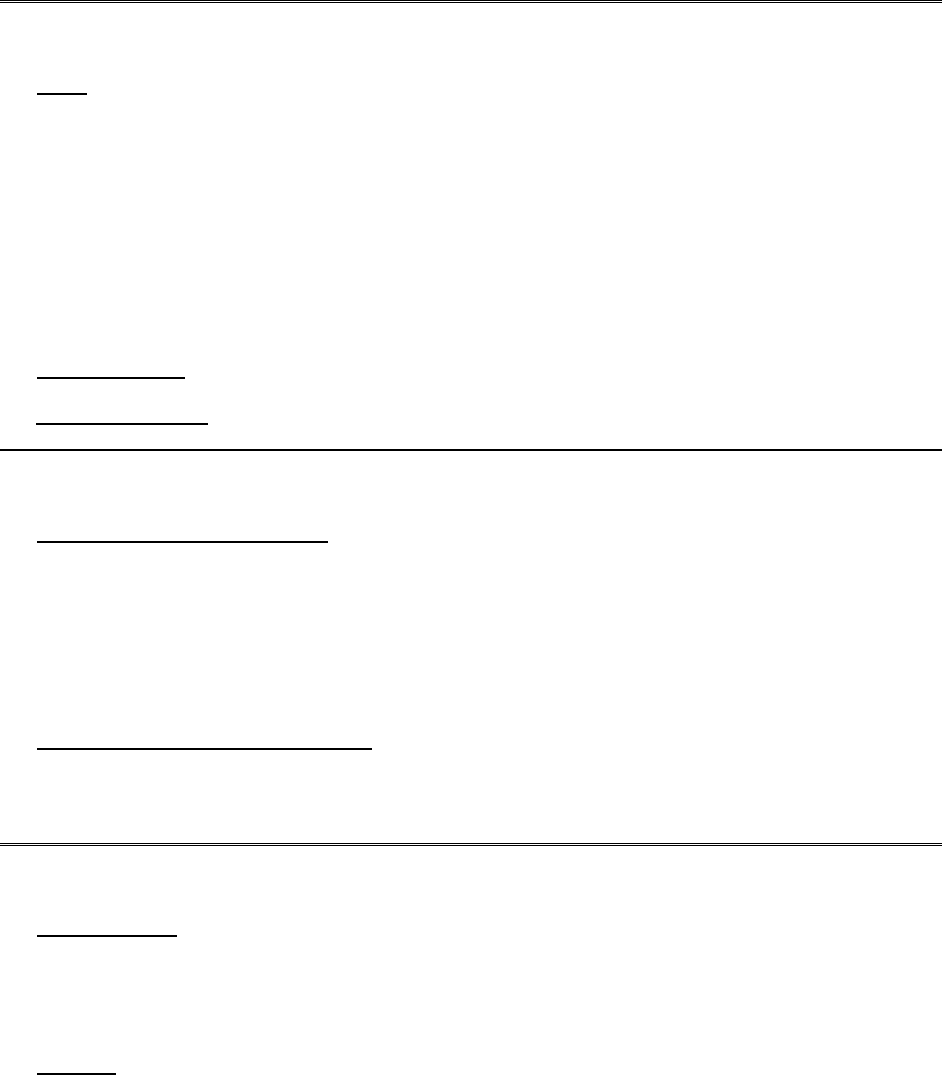
BASEALAINST M11101.1A of 15 Apr 2018
Chapter 4 – Neighborhood Regulations
Base Alameda Housing Manual
4-8
Quiet Hours must be observed.
The rights of other residents shall not be violated.
No one under the age of 21 may consume alcohol.
I. Pools, Spas and Hot Tubs
1. Pools. “Kiddy” pools (small wading pools) are authorized in the housing areas providing they comply
with the following regulations:
Pools must be supervised by an adult at all times when in use.
Water level must not exceed 12 inches in depth.
May not be left in yards or common areas when not in use and must be fully drained when not in
use.
Pools may not be placed in common areas of buildings used by multiple residents (residents of
multi-plex buildings).
Resident’s pools will not interfere with contractual mowing and trimming of common grounds.
Residents are fully responsible for any incidents involving pools, including replacing dead grass.
2. Swimming Pools. Swimming pools are not authorized in housing.
3. Spas and Hot Tubs. Spas and hot tubs are not authorized in housing.
J. Holiday Lighting and Decorations, Political or Business Signage and Objectionable Material
1. Holiday Lighting and Decorations. Holiday lighting is authorized from Thanksgiving Day until the second
weekend in January. Lighting shall not be left on during daylight hours or when no one is home.
Additionally, lights shall be turned off by 2300 hours. Lights and decorations must be attached to the
quarters without causing damage. Gutter clips are the preferred means of hanging lights. With the
exception of balconies, for safety reasons, roof decorations and lighting above the first floor are not
permitted. If such decorations are discovered, the resident will be required to immediately remove the
decorations. Residents will be held financially responsible for any damages to the housing unit from
decorations. Canned “snow” must not be sprayed on siding, stucco or brick facades.
2. Political, Business and Other Signage. Political or business advertisement signage of any type is not
allowed in Coast Guard housing. Other signage, flags, or various materials considered objectionable
or derogatory in nature, or not in the best interest of the Coast Guard or U.S. Government, is also
prohibited. Bulletin board postings must be requested and Command approved through the LHO.
K. Personally Owned Equipment
1. Play Equipment. Family housing areas usually have age appropriate play areas for resident use.
Therefore, the use of personally owned play equipment is discouraged. Resident owned play sets, if
approved by the LHO, must be commercially purchased. The equipment shall not be anchored in
cement. Home built play sets (swing sets, jungle gyms, playhouses, etc.), tree houses, tree swings,
tree hammocks, zip lines and trampolines are prohibited.
2. Approval. The LHO must authorize the use of personal play equipment. Permission must be
requested using a Self-Help Project Work Order form. Approval will be granted only when space and
safety are not an issue.

BASEALAINST M11101.1A of 15 Apr 2018
Chapter 4 – Neighborhood Regulations
Base Alameda Housing Manual
4-9
3. Insurance. Residents choosing, and approved, to set up personal play sets are required to have
proof of liability insurance.
4. Portable Play Equipment. Portable equipment such as basketball hoops, tetherball poles,
playhouses, etc., are permitted as long as they are stored within the resident’s yard/patio and not in
common areas, streets, or cul-de-sacs.
L. Telephones and Cable/Satellite Television
1. Phones. The Housing Office provides telephone jacks to the kitchen and master bedroom in each
unit. Anyone desiring telephone service must make their own arrangements to have phone service
installed and/or activated. The activation of phone service is solely the responsibility of the resident,
who is liable for any charges incurred in the installation and use of their telephone. Additional
telephone lines may be installed by the resident, at resident expense. Additional phone lines must be
requested by submitting a Self-Help Project Work Order Request to the Housing Office.
2. Telephone Repair Responsibility. All wiring and telephone equipment from the phone panel in the
utility room/side of the building out, belongs to the phone company and it is their responsibility to
maintain and repair. All existing wiring and jacks from the same location in to the unit belong to the
government and the phone company should never perform any work on these items if it is going to
result in a charge (this does not include additional jacks that the resident has requested to be installed
at the resident’s expense).
3. Government Responsibility For Telephone Jacks. The government is only required to provide (2)
operable phone jacks in each unit, (1) in the kitchen and (1) in the master bedroom.
4. Telephone Line Repairs. If a phone problem should occur, contact the phone company to have them
test the number. If the phone company states their lines are ok, call the Housing Maintenance Office
to report the problem. (Inoperable phone lines are considered an emergency, if there is only one
phone line. Secondary phone lines and lines for computers are not an emergency).
5. Cable and Satellite Television. Cable TV may be installed in the housing unit. If there is no existing
line, or there is a wish to install additional cable lines, submit a Self-Help Project Work Order Request
to the Housing Office. Satellite TV may also be installed with the permission of the Housing Office.
Installation restrictions do apply and vary depending on site location. Satellite TV must be requested
by submitting a Self-Help Project Work Order Request to the Housing Office. The Housing Office will
clarify any installation restrictions at that time. Residents who subscribe to Cable/Satellite TV service
are solely responsible for any charges incurred in the installation, activation, and operation of their
service. All satellite television equipment and components (exterior antenna, wiring, etc.) must be
removed from the unit prior to vacating quarters.
M. Live-In Aides
Permission for live-in aides must be requested in writing substantiating the need for such an arrangement
via the member’s chain of command to the AHA, via the LHO. Approval of live-in aides is predicated on
specific child-care or health-care requirements, which can be shown to require full-time, live-in assistance;
for example, a single parent attached to a deploying command. A spouse wanting to work, as an
example, is not a reason for approving a live-in aide. Approvals, if given, may not be for a complete
length of tour but may only be for a specific timeframe that the hardship/need exists. An additional
bedroom may be authorized but is not guaranteed.
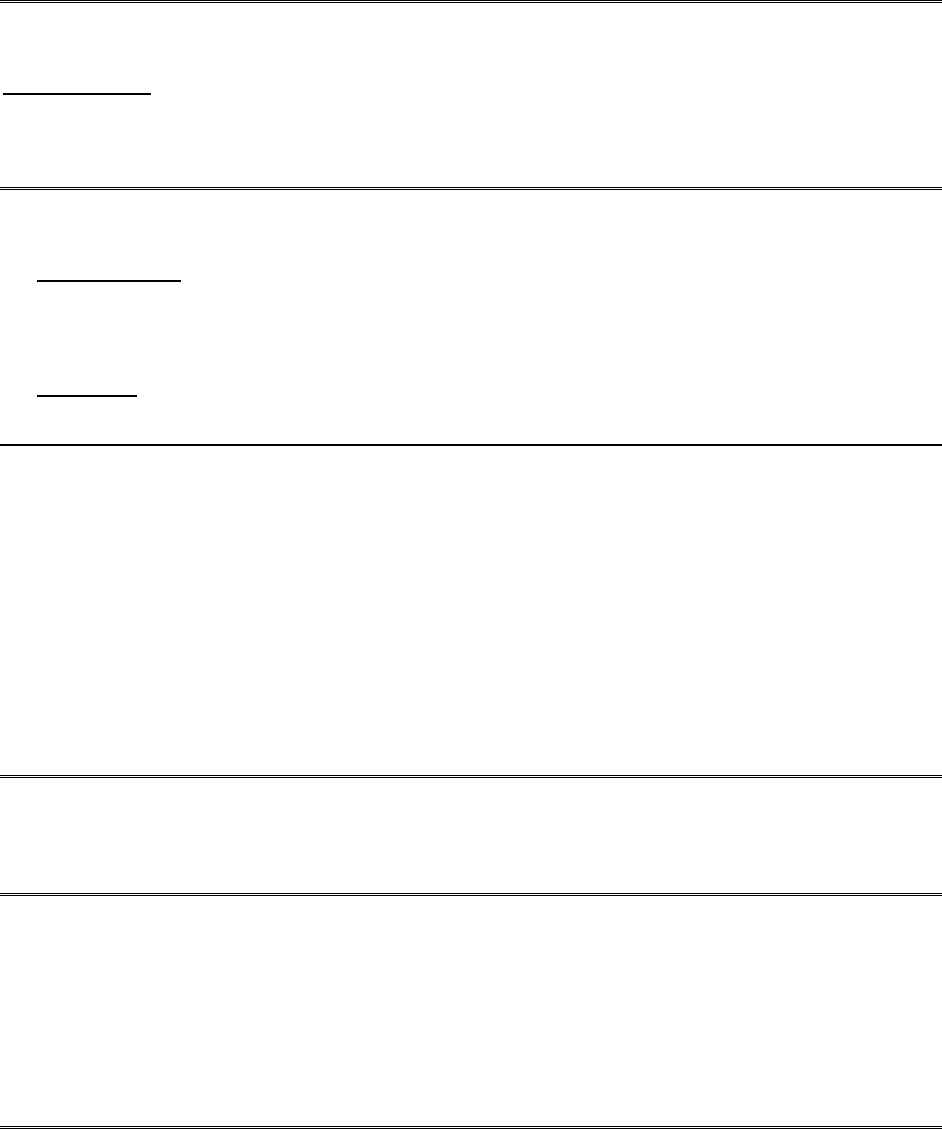
BASEALAINST M11101.1A of 15 Apr 2018
Chapter 4 – Neighborhood Regulations
Base Alameda Housing Manual
4-10
N. Prohibited Areas
Prohibited Areas. Any perimeter fencing separating government-owned housing from private or other
non-housing government property will not be climbed or damaged. Signs stating “DO NOT CLIMB
OVER THE FENCE” “PRIVATE PROPERTY” etc. will be strictly observed. Members found trespassing
are subject to arrest by local authorities, UCMJ and immediate eviction.
O. Noise Levels
1. Excessive noise. Loud music, loud televisions, etc., will not be tolerated in the FH/UH. Music and
televisions shall be played at a reasonable level. Common sense and respect for fellow residents
shall prevail when determining “reasonable levels” of noise. Noise shall be kept to an absolute
minimum (refer to Section H).
2. Complaints. Complaints of excessive noise will be addressed by the Local Housing Office and can
ultimately lead to a loss of housing privilege for repeated and/or severe offenses.
P. Shipboard Personnel, Deployments and Family Departures
Due to the unique operations and extensive deployment of Coast Guard Cutters, some families may
leave their housing unit while the member is underway (refer to Chapter 2, Section B “Temporary
Absences” for absence from quarters procedures). Residents shall ensure the following items/actions are
taken prior to departing for an extended absence:
Notify the Local Housing Office.
Lights and power are secured.
All garbage removed.
All perishable food is removed from the unit and other food items are properly stowed.
Newspapers and mail are stopped/held.
Q. Hazardous Material
The storing or dumping of hazardous material in Coast Guard-owned housing is strictly prohibited.
R. Solicitation
Commercial door-to-door sales are not permitted at the housing sites. Any requests for exceptions for
resident children (girl scouts, boy scouts, school band, etc.) may be considered. Commercial advertising
on Coast Guard housing bulletin boards and in the Housing Office is not authorized. The exception is
Coast Guard/Work Life approved in-home child care providers and Command functions/events. Flyers or
advertisements of any kind are not to be placed on mailboxes or mail box shelters. It is a federal offense
to attach anything to mail boxes.
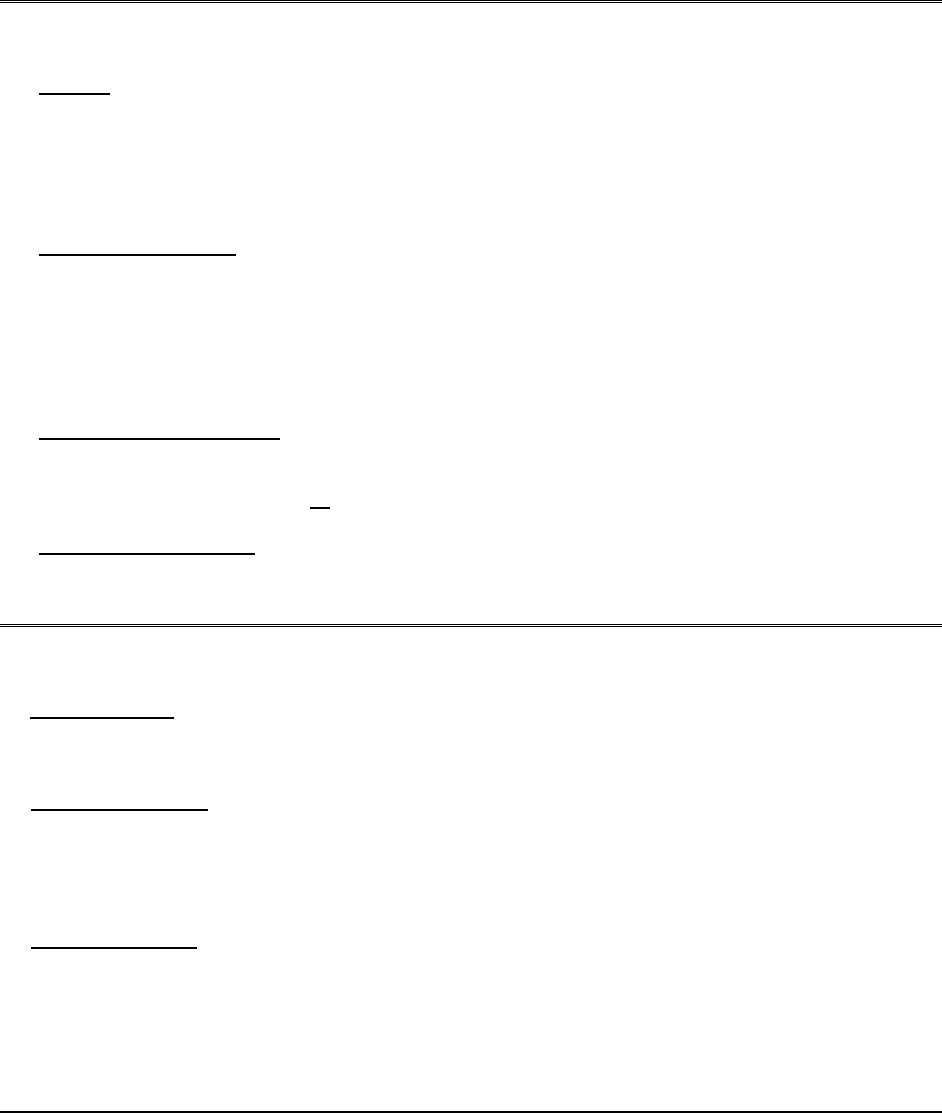
BASEALAINST M11101.1A of 15 Apr 2018
Chapter 4 – Neighborhood Regulations
Base Alameda Housing Manual
4-11
S. Cleanliness and Grounds Maintenance
1. General. Residents are expected to keep their housing unit and grounds clean, comfortable,
appropriately furnished, and to meet or exceed safety standards. Sanitary standards are essential
and shall be strictly maintained at all times. Personal items (boxes, tools, play toys, bikes, etc.) need
to be picked up and stored inside the unit, backyard, storage area, or garage when not in use. The
Housing Office will perform just cause inspections on any housing unit that is suspected of not
adhering to a reasonable cleanliness standard.
2. Grounds Maintenance. The Housing Office, upon check-in of the member, will detail the resident
responsibilities, if any, regarding grounds care. The care and cleanliness of the grounds surrounding
a housing unit is the responsibility of the resident, i.e. picking up litter, taking out the trash on trash
day, etc. Some locations may have assigned grounds maintenance responsibilities. Where grounds
maintenance contractors exist, they will maintain all common area shrubs and common area lawns.
See the appropriate Appendix for further information regarding the housing site and lawn self-help
equipment that may be available.
3. UH Interior Common Areas. In addition to individual rooms, the residents will share daily cleaning
responsibilities of common areas. Common areas include the kitchen, bathroom, living/dining room,
stairwell, halls, closets and garages/carports. Common areas shall be thoroughly cleaned weekly or
more frequently if needed and all residents will be held accountable for failing to do so.
4. UH Individual Bedrooms. Individual rooms shall be cleaned on a daily basis. The cleanliness of
bathrooms in master bedrooms, if one exists, is the responsibility of the resident assigned to that
room.
T. Laundry Areas
1. Washers/Dryers. The Coast Guard Maintenance Office will not be responsible for repairing personally
owned washers and dryers. Some UH units may come equipped with a government provided washer
and/or dryer.
2. UH Washers/Dryers. If a government washer and/or dryer is/are provided they are for the use of UH
residents only. Equipment malfunctions shall be reported to the Housing Office immediately. In units
that are not equipped with a government provided washer and/or dryer the resident(s) may install a
personal washer and dryer with the approval of the Housing Office. All UH residents are responsible
for the cleanliness of the laundry area
3. Unsafe Appliances. Washers and dryers (personal or Coast Guard provided) must be kept clean at all
times. Dryer lint screens are to be cleaned after each use. Unsafe/hazardous personal washers
and/or dryers will be immediately removed by order of the Housing Office.
If the laundry room is equipped with a gas dryer, anyone who smells natural gas shall
immediately notify the Housing Maintenance Office and the Housing Office. If
unsuccessful reaching either, of if after hours, call 911.
U. Tobacco Product Use
The use of all tobacco products (smoking, smokeless -- spit, lug, leaf, snuff, dip -- electronic cigarettes,
electronic pipes and electronic cigars) is prohibited in all common/exterior areas. Smoking is permitted in
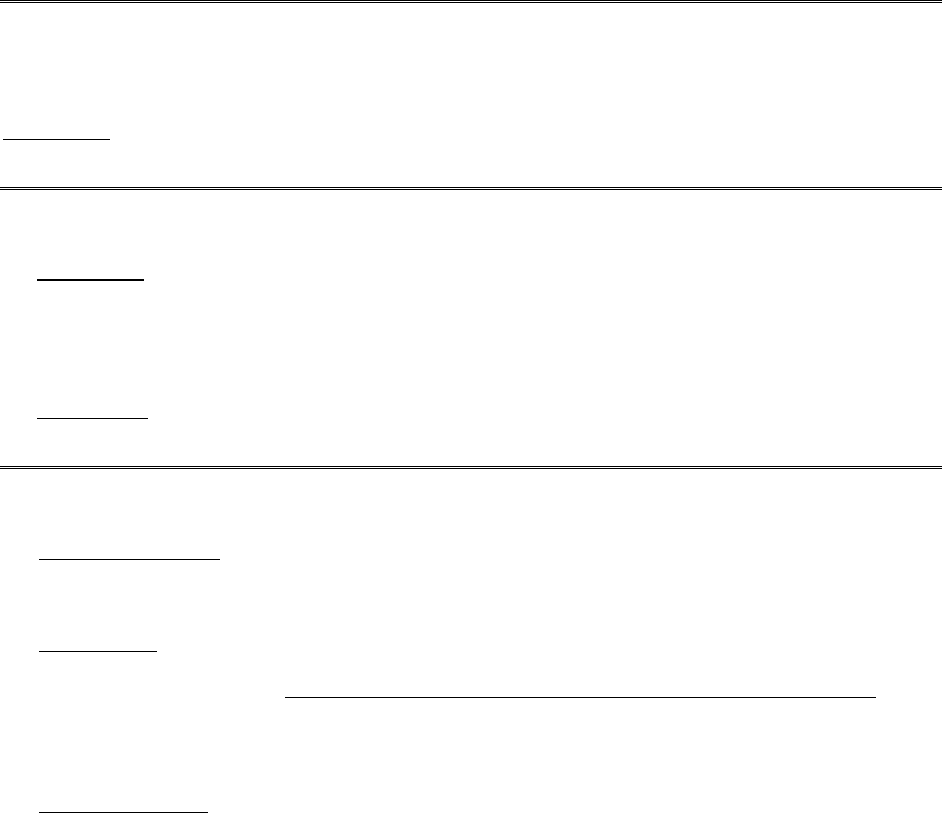
BASEALAINST M11101.1A of 15 Apr 2018
Chapter 4 – Neighborhood Regulations
Base Alameda Housing Manual
4-12
the interior of individual FH units as long as the smoker’s unit does not share a common
heating/ventilation system with non-smoker units. In all cases the rights of the non-user will prevail.
Tobacco use is prohibited in all UH units.
Smoking is prohibited on the exterior of all multi-unit housing locations except in command designated
outdoor smoking areas. For this reason, the following housing site locations have designated exterior
smoking areas, as directed by reference (a):
Alameda Housing
Eureka Housing
Knolls Housing in Novato
Rio Vista
Except in the designated areas, smoking outside of a housing unit is prohibited at these locations. The
Local Housing Office at each site will notify members of the designated smoking areas during the check-
in process.
V. Controlled Substances
Use, possession, distribution, or cultivation of any Schedule 1 drugs listed in the Controlled Substances
Act is illegal in Coast Guard housing, even with a prescription. Residents are subject to all applicable
federal laws regardless of California laws to the contrary. Any incident with illegal drugs is cause for
immediate eviction.
W. Decorations and Plants in UH
1. Decorations. Pictures, paintings, or posters may NOT be placed in any common areas. However,
they may be displayed in UH bedrooms. Depiction of lewd, obscene, drug oriented, etc., material is
strictly prohibited. The LHO will determine what is improper material in questionable cases. The use
of tape to affix pictures/posters, etc. to walls and ceilings is prohibited. Small nails and/or thumbtacks
are the preferred method of hanging these items.
2. Houseplants. Houseplants are authorized in UH as long as they are kept healthy and trimmed. They
must not infringe on roommate rights or create hazards by producing mold or harboring insects.
X. Alcoholic Beverages in UH
1. Alcoholic Beverages. Alcoholic beverages are authorized in UH for members 21 years of age or
older. Residents shall exercise moderation and common sense when consuming, serving, and
storing alcoholic beverages.
2. Consumption. Consumption of alcoholic beverages within the UH is strictly limited to off-duty hours.
For the purpose of this manual, off-duty hours are defined as any time when a member is on
authorized liberty or leave. Keg beer is prohibited without the prior written approval of the LHO.
All alcohol consumption is confined to the interior of the housing unit or within the fenced
backyard/patio/balcony.
3. Legal Drinking Age. Possession and consumption of alcoholic beverages is permitted in the UH only
for those residents and guests who are 21 years of age and over. Any underage Coast Guard
personnel found in the possession of, or consuming alcohol in or near a UH unit, will be subject to
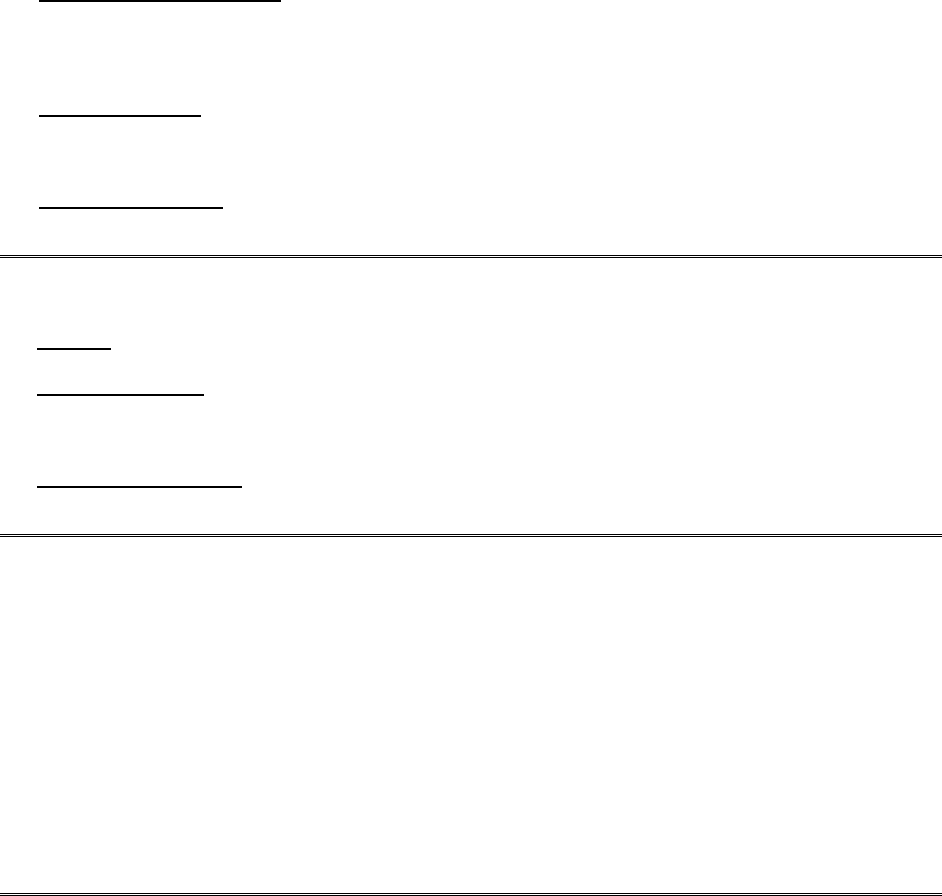
BASEALAINST M11101.1A of 15 Apr 2018
Chapter 4 – Neighborhood Regulations
Base Alameda Housing Manual
4-13
disciplinary action as provided for in the UCMJ. Any violation of this directive will result in eviction of
all residents involved.
4. Providing Alcohol to Minors. Great care must be exercised when serving alcoholic beverages to any
guests since UH is located in the family housing areas. Therefore, any resident found providing
alcohol to an underage person(s) in or near UH will be prosecuted in accordance with the UCMJ or
applicable state/city laws, and evicted from UH.
5. Persons Under 21. Personnel 21 years of age or older sharing a unit with another member under 21
will ensure all alcohol will be kept from the underage member at all times. In the “of age” member’s
absence, alcohol will need to be kept locked up in the member’s room (not in the refrigerator).
6. Alcoholic Containers. Alcoholic beverage containers are not to be used as decorations or left in UH
after use. All used containers are to be disposed of in the refuse containers provided to each unit.
Y. Etiquette in UH
1. Clothing. Proper attire shall be worn in the UH common areas at all times.
2. Common Courtesy. Common courtesy dictates that personnel assigned to the same UH unit
cooperate with each other in order to live in harmony. Honor and respect of each other’s privileges,
rights, property, beliefs, and privacy shall be considered at all times.
3. Personal Relationships. Personal relationships shall be in strict compliance with the Coast Guard
Discipline and Conduct Manual, COMDTINST M1600.2 (series), Chapter 2A.
Z. UH Shipboard Personnel and Deployments
Due to the unique operations and extensive deployment of Coast Guard Cutters, UH residents who are
assigned to seagoing units shall ensure the following items/actions are taken prior to deployment:
Lights and power are secured, thermostats are lowered to 60 degrees.
All garbage removed.
Room is thoroughly cleaned and vacuumed.
All perishable food is removed from the unit and other food items are properly stowed.
All laundry is clean and properly stowed.
All valuables are locked or secured.
Personal phone/cable TV bills are paid.
Newspapers and mail is stopped/held.

BASEALAINST M11101.1A of 15 Apr 2018
Chapter 4 – Neighborhood Regulations
Base Alameda Housing Manual
4-14
BLANK
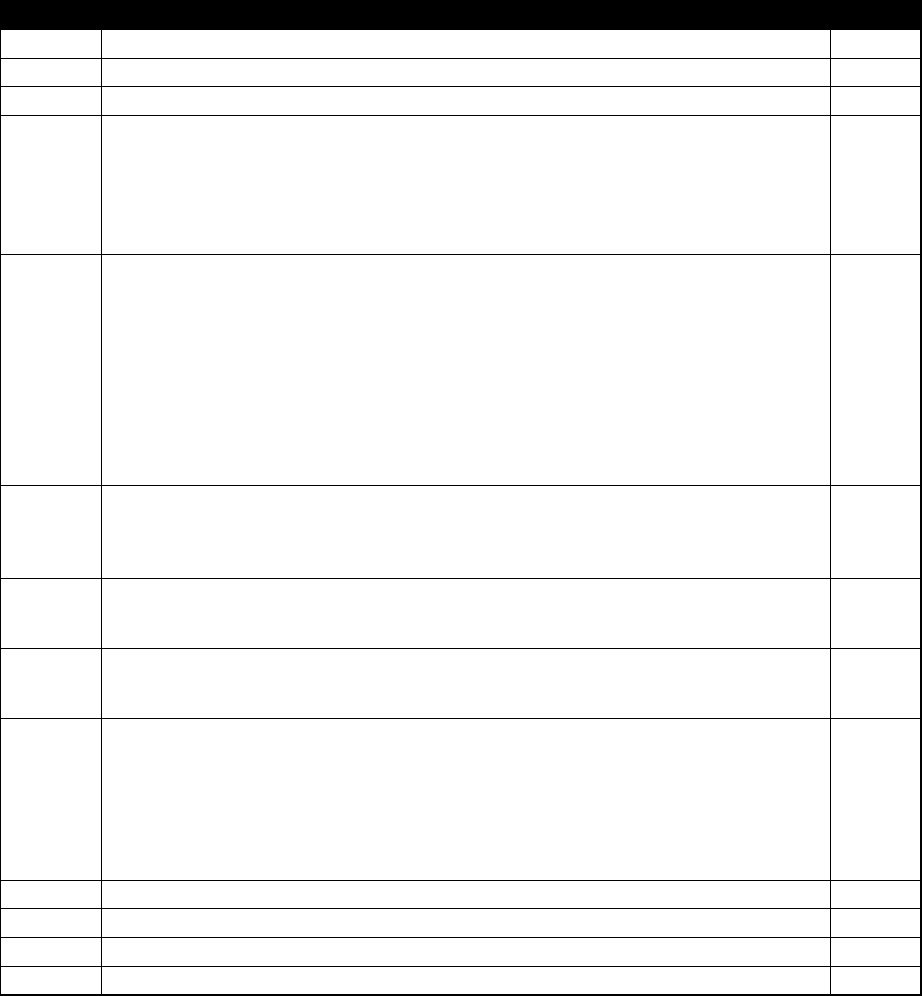
BASEALAINST M11101.1A of 15 Apr 2018
Chapter 5 – Household Responsibilities
Base Alameda Housing Manual
Table of Contents
Section
Subject
Page
A
Purpose
5-1
B
Changes to Quarters or Grounds
5-1
C
Maintenance Personnel and Access
1. Access to Government Quarters
2. House Locks
3. Pest Control Access
4. Missed Appointments
5. Identification of Contract Maintenance Representatives
5-1
5-1
5-1
5-1
5-1
5-1
D
Household Maintenance
1. Maintenance
2. Minor Repairs
3. Damages
4. Maintenance Contracts
5. When to Call for Assistance
6. Placing a Request For Maintenance Assistance
7. Maintenance Request Priorities
8. Maintenance Request Status
9. Scheduling Appointments For Routine Service Work
5-2
5-2
5-2
5-2
5-2
5-2
5-2
5-2
5-3
5-3
E
Alterations
1. Self Help Projects
2. Conformance to Standards
3. Who May Submit a Self Help Request
5-3
5-3
5-3
5-4
F
Self Help Supplies
1. Self Help
2. Responsibility
5-4
5-4
5-4
G
Utilities & Energy Management
1. General
2. Utility Abuse
5-4
5-4
5-4
H
Practical Energy Saving Tips
1. Practical Energy Saving Tips
2. Heating
3. Electricity
4. Gas
5. Appliances
6. Water
5-4
5-4
5-4
5-5
5-5
5-5
5-6
I
Pest Control
5-6
J
Trash Collection
5-6
K
Trash Recycling
5-6
L
Grounds Care
5-7

BASEALAINST M11101.1A of 15 Apr 2018
Chapter 5 – Household Responsibilities
Base Alameda Housing Manual
BLANK
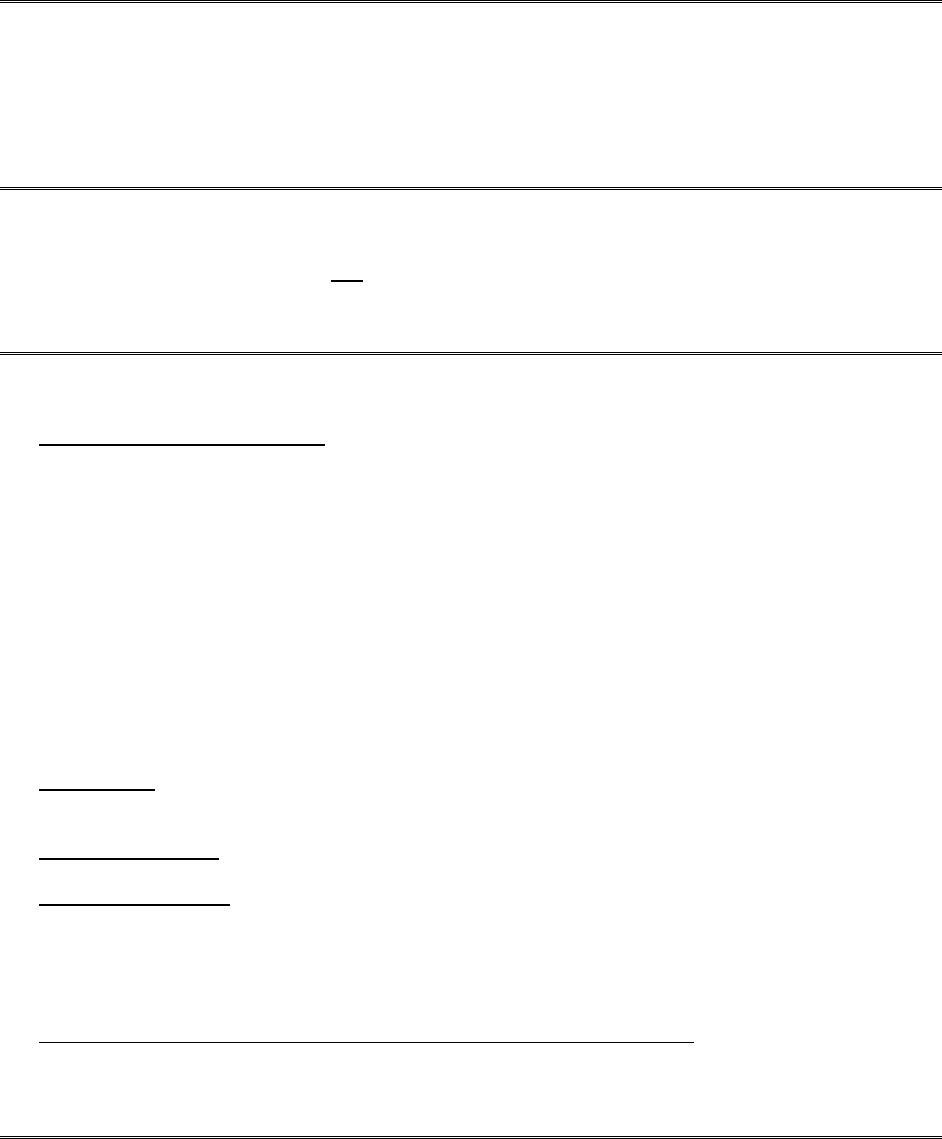
BASEALAINST M11101.1A of 15 Apr 2018
Chapter 5 – Household Responsibilities
Base Alameda Housing Manual
5-1
A. Purpose
The purpose of this chapter is to provide basic information on Coast Guard Housing maintenance, self
help projects, resident responsibilities and procedures. Further guidance is provided in Chapter 6. This
chapter has been formatted to address most policies and procedures generally. However, if a particular
housing area has a specific requirement it will be addressed in the appropriate Appendix.
B. Changes to Quarters or Grounds
Residents are not permitted to make any physical or structural changes to government quarters or to the
grounds/landscape without prior approval of the Local Housing Office. Alteration, construction, or
tampering with electrical, plumbing, heating or other utility equipment or systems is strictly prohibited.
C. Maintenance Personnel and Access
1. Access to Government Quarters. Periodically, housing and/or maintenance personnel may need to
enter government owned housing to perform maintenance services/work orders, or may need to enter
the premises for health, and safety concerns. Except for emergencies (i.e. flooding, fire, gas leak),
every effort will be made to notify the resident at least 24 hours in advance of any scheduled and/or
requested maintenance work. However, notification cannot be guaranteed and if an emergency
exists, maintenance representatives will enter government quarters to arrest the emergency (with a
housing staff representative if a contractor is involved). For non-emergency work, the resident or
his/her representative shall be present during time of access and must be at least 18 years old.
Housing maintenance personnel will not enter any residence if the only person at home is a minor
(emergency situations are excluded). The Housing Office cannot, and will not, provide a
representative to be present during any routine maintenance work in family quarters if a contractor is
performing the work. The Housing Office may provide a representative for routine work in UH. In
emergency situations, the Coast Guard and/or the contractor will not be responsible or liable for
conditions, property, pets, or damages due to an emergency.
2. House Locks. Changing of house locks by the resident is prohibited. Residents who change entry
locks will be assessed any locksmith and/or damage charges and issued a Letter of Warning.
3. Pest Control Access. Routine exterior pest control will be performed without prior notice.
4. Missed Appointments. Work requests will be automatically cancelled if a resident misses two
scheduled service call appointments. Furthermore, the sponsor’s Commanding Officer may be
notified of the sponsor’s failure to be present during a scheduled maintenance appointment.
Residents may be held liable for any cost the government incurs from a contractor for missed
appointments.
5. Identification of Contract Maintenance Representatives (where applicable). All contracted
maintenance workers are required to possess a valid identification tag indicating their association with
the housing maintenance contractor. If there is doubt of the validity of contracted personnel or
vehicles, do not hesitate to contact the Housing Office prior to allowing access to the quarters.

BASEALAINST M11101.1A of 15 Apr 2018
Chapter 5 – Household Responsibilities
Base Alameda Housing Manual
5-2
D. Household Maintenance
1. Maintenance. Coast Guard policy calls for a continuing program of cost reductions in the
maintenance of housing. It is equally important that the value of the Coast Guard’s investment not
diminish because of poor maintenance. That is where the resident comes in. Housing Office
personnel are dedicated to providing clean, livable quarters for all residents. We strive to assign units
in “shipshape” condition – but we need all resident’s help. In order to provide a good, clean unit, we
need to receive the unit in that condition from the previous occupant. Likewise, we expect to receive
the quarters back in that same condition when the member leaves, ordinary wear and tear expected.
The member is responsible for the quarters and equipment assigned to them, which means proper
housekeeping, performing minor repairs, performing grounds maintenance and reporting items which
require maintenance and repair that cannot be accomplished. Treat military housing as if you
owned it.
2. Minor Repairs. While in quarters the resident is responsible for minor maintenance and repairs.
Residents are expected to make minor household repairs which do not require a skilled repair person,
such as replacing light bulbs, clearing minor plumbing stoppages, tightening loose screws and pest
control. Chapter 6 outlines specific resident and government responsibilities.
3. Damages. Residents are responsible for the acts of themselves, all guests and any pets. It is the
resident’s responsibility to make certain any loss or damage caused by abuse or negligence, or
missing government property, is corrected or the government is reimbursed. For instance, if the child
next door throws a rock through your window, you are responsible for replacing the window or paying
for it. Even though it wasn’t your child, it is your window. The child’s parents should be responsible
to you, but you are responsible to the government. If a rock hits the window while mowing the lawn or
a door is damaged while trying to open and close it, the assigned member is responsible. This would
be the case in a civilian rental property. Renter’s insurance will sometimes pay a portion of the
repairs.
4. Maintenance Contracts (where applicable). To maintain the quarters and grounds the Coast Guard
may have acquired the services of a maintenance contractor. If this is the case, the maintenance
contractor is responsible for performing specific periodic maintenance, upkeep, and troubleshooting
of Coast Guard housing, equipment, and associated grounds as outlined in the service contract. The
maintenance contractors will report to the Contracting Officer Representative (COR), who will be
located in the Housing Office or with the Facility Engineer’s (FE) office.
5. When to Call for Assistance. If repairs required are beyond the expertise of the resident, call the
Housing Maintenance Office. After hours, only call for maintenance assistance if the problem is other
than routine or urgent (paragraph 7 below should be used as a rule of thumb). Emergency
maintenance service is available 24 hours a day. See the appropriate Appendix for further details.
6. Placing a Request for Maintenance Assistance. The Housing Maintenance Office is responsible for
receiving and scheduling requests for repair to government quarters and grounds. When calling the
service desk, please be prepared to give name, address, nature of problem, and a phone number.
7. Maintenance Request Priorities. Use the following list of common problems to help determine the
priority of service calls:
Emergency:
Loss of heat, water, electricity, hot water.
Gas interruptions (smelling gas).
Faulty wiring/fuse.

BASEALAINST M11101.1A of 15 Apr 2018
Chapter 5 – Household Responsibilities
Base Alameda Housing Manual
5-3
To report fire hazards.
Major plumbing problems (all drains plugged/flooding).
Exposed/damaged asbestos containing materials in the interior of the home.
Calls to prevent damage occurring.
Failure of government furnished refrigerator.
Failure of the one and only phone land line (not the phone provider’s problem).
Routine:
Damaged or flaking lead-based paint (found in housing built prior to 1981).
Inoperative garbage disposal.
Clogged drains or toilets (Resident must attempt to unclog first. Emergency if only one toilet exists).
Failure of government furnished stove or dishwasher.
Missing/damaged window screens.
Minor plumbing problems (i.e. dripping faucet, running toilet).
8. Maintenance Request Status. Each service request is assigned a work order number. The status of
a work order may be checked on by calling the Housing Maintenance Office during normal working
hours.
9. Scheduling Appointments for Routine Service Work. Residents may schedule appointments for
routine service work. Appointments will only be made for Monday-Friday and in locations where
housing maintenance is contracted, the Contractor may make scheduled appointments within a four-
hour window. Where contracted, the Contractor will generally not schedule a specific time for routine
work.
E. Alterations
1. Self Help Projects. Residents must receive written approval from the Local Housing Office prior to
starting any “Self Help” or “do-it-yourself” improvements to quarters or grounds/landscaping, using a
Self Help Project Work Order Request. All costs associated with the project will be the resident’s
responsibility. The Self Help projects listed below are typical projects which may be accomplished (or
contracted) by a resident:
Fences
Gardens (not allowed or limited in some locations)
Interior Painting
Telephone Installation
Cable TV and Satellite Dish Installation
2. Conformance to Standards. Only the Local Housing Office can approve Self Help projects. This is to
ensure that each proposal is compatible with existing material and/or construction, utility systems will
not be affected or excessive usage will occur, fire regulations and access to buildings are not
compromised, common areas will not be encroached, the appearance of the area is not adversely
affected, and the government's long-term investment is protected. When submitting a Self Help
request, the member agrees to the following:
The Self Help project will conform to this publication and standard construction principles.
A commitment to the financial investment.
Available time to accomplish all work.
The ability to do the work.
The workmanship will reflect a high degree of professionalism.
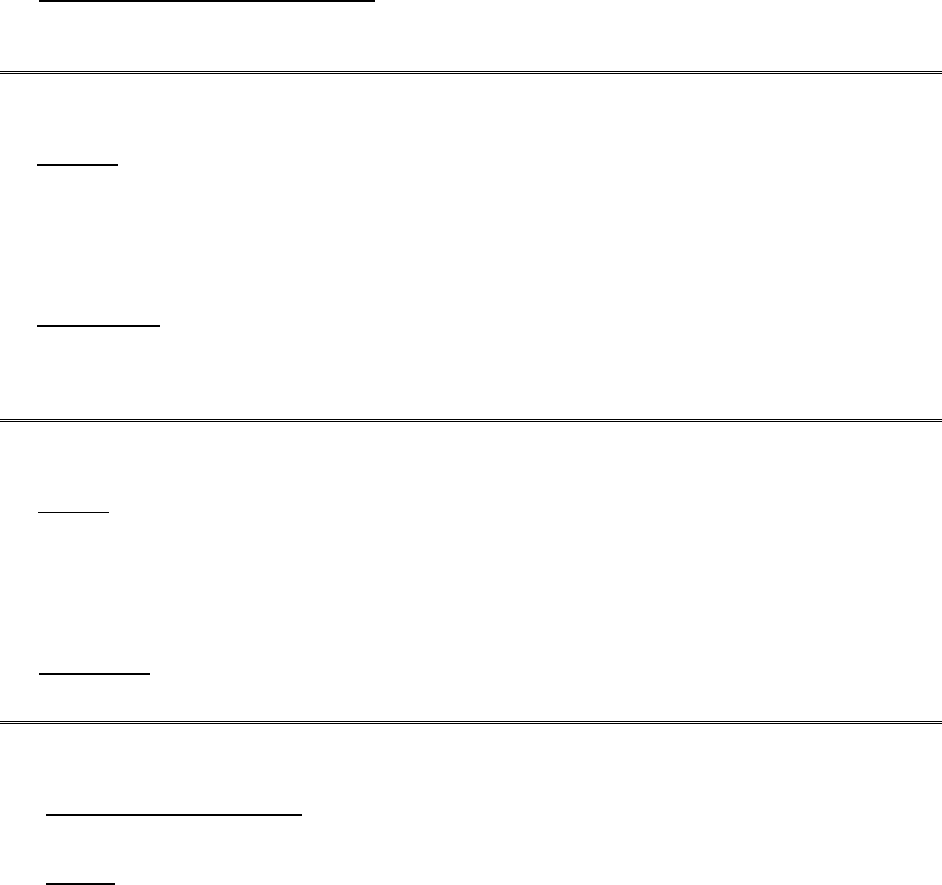
BASEALAINST M11101.1A of 15 Apr 2018
Chapter 5 – Household Responsibilities
Base Alameda Housing Manual
5-4
The Local Housing Office will inspect the finished project. If the work does not pass inspection,
changes will be made, at the resident’s expense, to comply.
Existing utility systems will not be altered for any self-help project.
At termination of housing, the quarters will be returned to the original configuration unless
previously authorized by the Local Housing Office in writing. Failure to return the unit to its
original condition may result in financial restitution being made to the government.
3. Who May Submit a Self Help Request. Residents may submit and complete a Self Help project, with
the understanding they are fully responsible for the project, must comply with the provisions of this
section, and will be financially liable for restitution to the government if necessary.
F. Self Help Supplies
1. Self Help. Self help supplies may be available at some locations. These supplies are generally
geared to assist residents in performing routine grounds maintenance responsibilities, where they
exist. Examples of materials/equipment that may be available at the Self Help lockers are:
lawnmowers, weed eaters, shovels, rakes, grass seed, top soil and fertilizer. These items are
available on a first-come, first serve basis. See the appropriate Appendix for items provided at the
housing site and potential availability.
2. Responsibility. Residents are fully responsible for any item/equipment they check out. All residents
will be required to make financial restitution for government-owned equipment/items that are stolen,
lost, broken, and/or misused. Residents are required to return equipment on time and in good, clean
condition. Residents abusing time limits may lose their self-help privilege.
G. Utilities & Energy Management
1. General. The utilities used are paid for by the U.S. Government and are your tax dollars. So, please
keep in mind the continued success of our housing program is largely dependent upon each
resident’s sensible use of utilities. Energy conservation is a national concern. Excessive energy
consumption drains natural resources and housing funding that could be used on other projects. It is
necessary that everyone in Coast Guard owned housing take steps to ensure that our Coast Guard
Housing Program is not reduced or jeopardized because of excessive utility consumption.
2. Utility Abuse. Abuse will not be tolerated. The Housing Office will issue Warning Letters to residents
who are caught abusing utilities. Eviction can occur after one warning.
H. Practical Energy Saving Tips
1. Practical Energy Saving Tips. Energy conservation is not reduced comfort, it is taking steps to
ensure that energy is not wasted or abused.
2. Heating.
Maintain inside temperatures in the 65-70 degree range when home.
Everyone should wear warm clothes indoors during the winter.
Turn down the thermostat(s) at night before going to bed or when the house is unoccupied to at
least 65 degrees. When leaving for an extended vacation turn down thermostats to 60 degrees
or less, but don’t turn the heat off because this could cause pipes to freeze and burst if extreme
weather occurs.

BASEALAINST M11101.1A of 15 Apr 2018
Chapter 5 – Household Responsibilities
Base Alameda Housing Manual
5-5
Humidifiers used during the winter enable temperatures to be lowered and remain just as
comfortable. They put moisture in the air and improve the comfort level.
Don’t keep bathroom or stove ventilation fans running when not needed. These fans vent out
heated air and draw cold outdoor air into the home.
Pull down shades, close blinds, and draw drapes at night. Open them during daylight hours.
3. Electricity. Reduce consumption of electricity during peak demand periods from 11:00 AM to 5:00
PM and observe the following conservation methods:
Avoid the use of washers and dryers during the peak use period.
Lighting intensities shall not exceed “UL” wattage recommendation for installed fixtures. This
practice is also a fire safety precaution (ex. Incandescent fixtures in housing should not have
bulbs over 60W).
Turn off lights when leaving a room.
Refrigerator coils that are unsealed must be kept clean and at least two inches from wall. If there
is an energy saver switch, use it.
Stereos and Televisions should be turned off when no one is home.
Consider replacing incandescent light bulbs with Compact Fluorescent Light (CFL) bulbs or Light-
emitting diode (LED). Fluorescent lights use less energy and don’t have to be changed as often.
Use table or desk lamps verses overhead lighting.
Reducing the light bulb wattage will save energy.
Turn off appliances when not in use.
4. Gas.
Report all gas leaks immediately.
Gas furnaces and ranges should burn with a blue flame. The presence of a yellow flame could
indicate an improperly functioning system, incomplete combustion and consequently a release of
Carbon Monoxide, an odorless, colorless, deadly gas. If the stove or furnace has a “pilot” light,
and it goes out, call Housing Maintenance to re-ignite. Do not attempt to re-light it yourself.
Do not use the range or oven to heat the quarters.
5. Appliances.
Appliances not working properly can contribute greatly to high-energy bills. Water heaters,
furnaces, etc. that seem to not be functioning properly should be serviced. If the furnace or range
needs repair or adjustment contact the Housing Maintenance Office.
Hang clothes in the bathroom/laundry room to dry.
Wash clothes in cold water whenever possible.
Don’t overload the dryer. There must be adequate air flow for the clothes to dry properly.
Check the dryer exhaust hose for clogging or crimping.
Clear the dryer lint screen after each use.
Check the outside dryer vent exhaust. Make sure the flap is attached and working properly (it
should be shut when the dryer is not running).
Clean dust off of cooling vents on refrigerators. The older models have cooling vents on the
back, while the newer ones have them in the front, on the bottom.
Check the gaskets around the door of the refrigerator and make sure there is a tight fit when the
door is shut.
The freezer works more efficiently when it’s full. Put bags of ice in the freezer to keep it fuller. Do
not block the freezer vents since this will cause the freezer to run constantly.
Heating/cooling units (furnaces and air conditioners) and intake vents contain filters that should
be inspected and replaced if clogged or dirty. Some filters can be vacuumed instead of being
replaced.
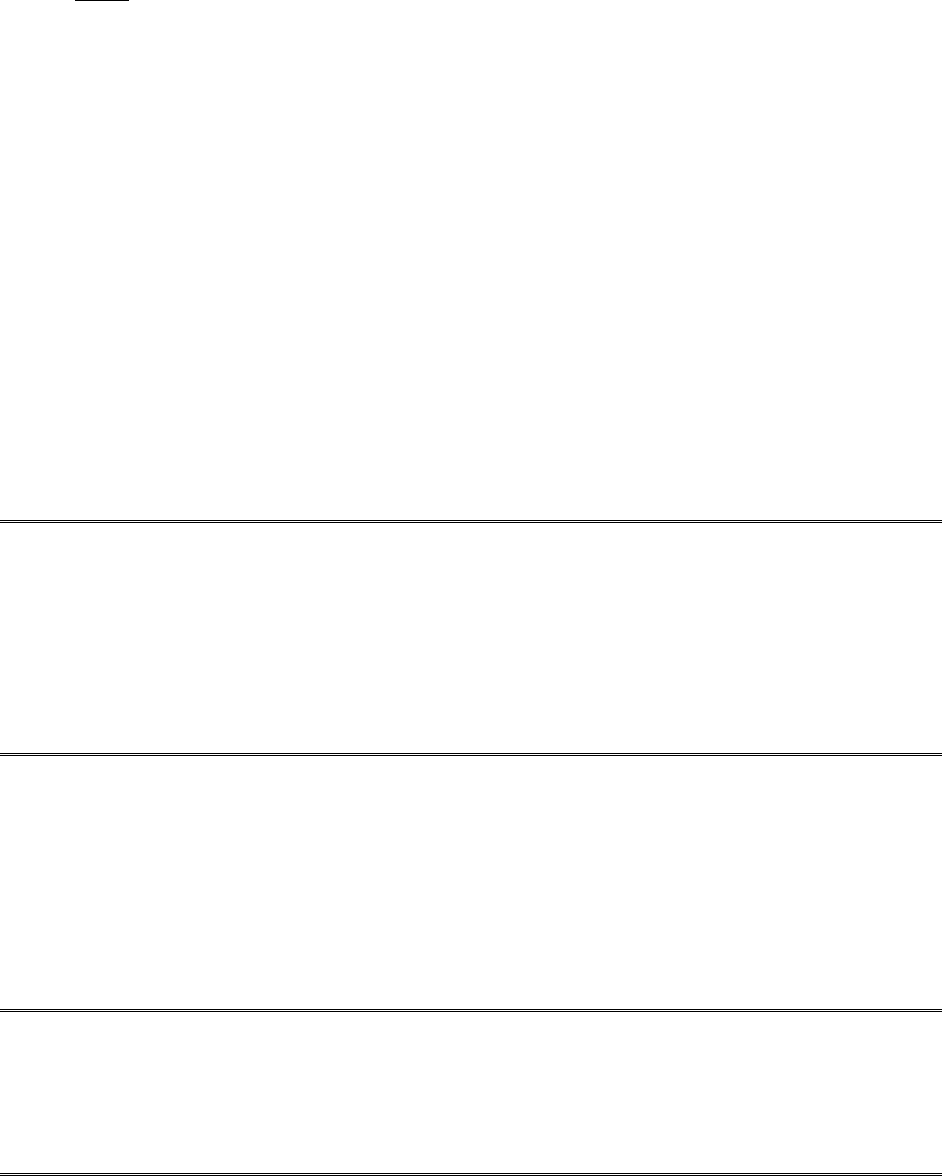
BASEALAINST M11101.1A of 15 Apr 2018
Chapter 5 – Household Responsibilities
Base Alameda Housing Manual
5-6
Avoid using the dishwasher unless there is a full load.
6. Water.
Water restrictions that may be imposed are to be adhered to.
A slow leaking faucet can waste between 50-75 gallons of water per month. Faucets should be
closed tightly to prevent dripping. It is the resident’s responsibility to report leaks immediately.
Water shall be conserved when bathing, laundering, and doing dishes, etc. Do not remove water
saving devices that are installed.
If watering of lawns is permitted, over watering the lawn is wasteful. 10 to 15 minutes in any one
spot is sufficient. To reduce evaporation, the most effective time for watering is before 0800, or
after 1800. Care will be exercised to ensure sprinklers water the lawn, not the sidewalk or street.
If car washing is permitted, use a pail when washing cars. Do not turn on the hose and leave it
running. Use a shut off for the end of the hose to ensure conservation of water.
A poorly seated flapper valve or improperly adjusted tank float generally causes continuously
running toilets. Report running toilets to the Housing Maintenance Office immediately.
Immediately report any water leaks that can’t be repaired. Exterior leaks may occur around
meters, sprinkler heads, water cutoff boxes and exterior water faucets.
When turning on the shower check the lower spigot to ensure no hot water is going directly down
the drain. If this is the case, have leaky part tightened or replaced by the Housing Maintenance
Office.
Flow-restricted showerheads can reduce the amount of water used by half. All showers should
have these installed. Replacement of a flow-restricted head with a non-restricted head is not
allowed.
I. Pest Control
Residents are expected to resolve minor pest control problems. Costs to the government need to be
controlled and the responsibility for routine household pest control needs to be focused on the resident.
Residents can control many varieties of pests with minimum expense and effort. Products are available
at local grocery, drug and home improvement stores. If it is believed there is an infestation, a housing
inspector will visually inspect the quarters to validate the presence of the infestation. This is required
before any government funded pest control work will be done.
J. Trash Collection
A trash pickup schedule should have been provided during check-in. Where individual cans are provided,
they must be at the curb before 0500 on the scheduled pick-up days and must be returned to proper
storage by the end of pick-up day. When not out for collection, the cans must be properly stored. The
size and amount of trash which can be placed at the curb for pick-up varies with each contract at each
site (see appropriate appendix). Using plastic trash bags, keeping trash containers covered, and
routinely washing trash containers and recycling bins with soap and water will minimize odor and pest
control problems.
K. Trash Recycling
Trash recycling is mandatory for military housing residents. Information regarding recycling should have
been provided during the check-in inspection. Contact the Housing Office for additional information.
Recycling containers must be properly stored with the trash cans.

BASEALAINST M11101.1A of 15 Apr 2018
Chapter 5 – Household Responsibilities
Base Alameda Housing Manual
5-7
L. Grounds Care
The Housing Office, upon check-in of the member, will detail the resident responsibilities regarding
potential grounds care. The care and cleanliness of the grounds surrounding a unit is the responsibility of
the resident, i.e. picking up litter, potentially mowing the grass, etc. Prudent care by each resident will be
appreciated by the many families who will occupy the quarters after each resident vacates and have
moved on to their next assignment. Some locations may not have grounds care responsibilities.

BASEALAINST M11101.1A of 15 Apr 2018
Chapter 5 – Household Responsibilities
Base Alameda Housing Manual
5-8
BLANK
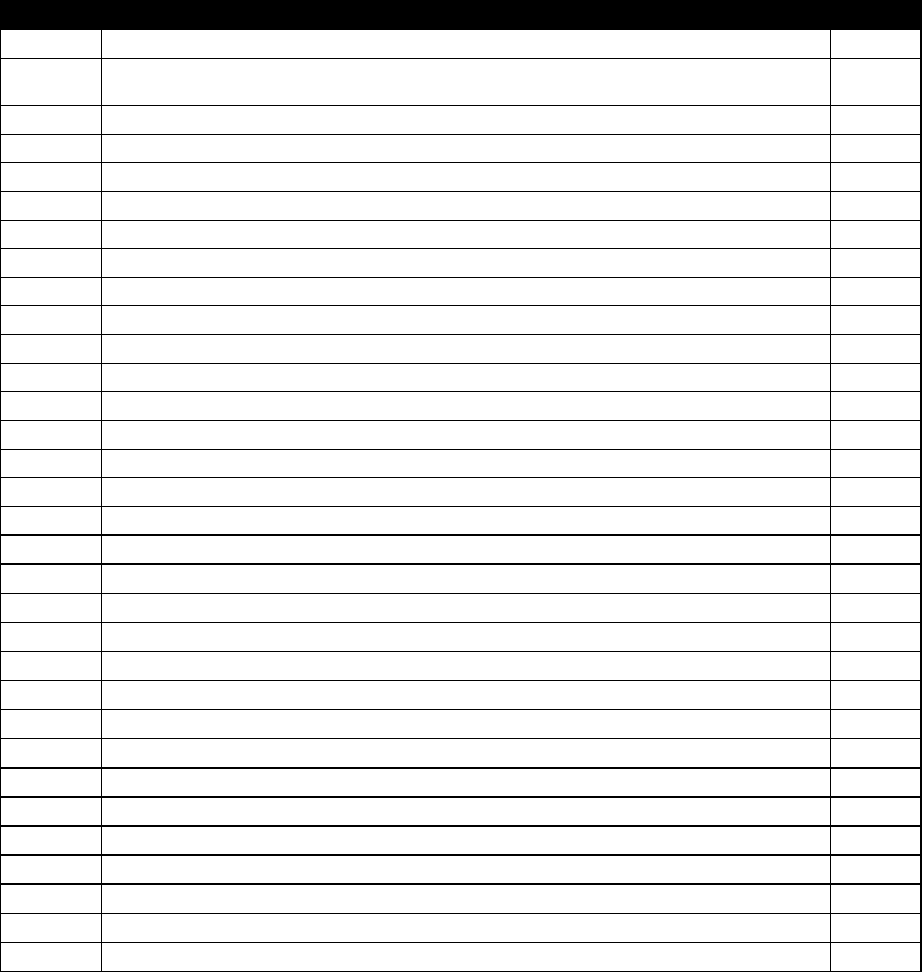
BASEALAINST M11101.1A of 15 Apr 2018
Chapter 6 – Maintenance Responsibilities
Base Alameda Housing Manual
Table of Contents
Section
Subject
Page
A
Purpose
1. Maintenance Responsibility Table
6-1
6-1
B
Carbon Monoxide (CO) Detector
6-2
C
Carpet
6-2
D
Dishwasher
6-2
E
Door Care (Interior)
6-2
F
Driveways, Garages, Catch Basins, and Storm Drains
6-3
G
Electrical Service
6-3
H
Fire Extinguishers
6-3
I
Fireplace Use and Firewood Storage
6-4
J
Floor Maintenance
6-4
K
Gardens
6-5
L
Grass Mowing/Lawn Care
6-5
M
Grounds Care
6-5
N
Heater Filter Replacement
6-6
O
Keys and Electric Garage Door Openers
6-6
P
Lighting/Light Fixtures
6-6
Q
Painting
6-7
R
Pest Control
6-7
S
Plumbing
6-9
T
Refrigerator
6-9
U
Refuse Removal and Recycling
6-9
V
Smoke Detectors
6-10
W
Street Maintenance
6-10
X
Stove/Range
6-11
Y
Telephone/Cable and Satellite TV Service
6-11
Z
Walls, Cabinets, and Trim Care
6-12
AA
Water Heater
6-12
AB
Window Screens
6-13
AC
Window Shades/Blinds
6-13
AD
Window Cleaning and Replacement
6-13
AE
Window Well Cleaning
6-14

BASEALAINST M11101.1A of 15 Apr 2018
Chapter 6 – Maintenance Responsibilities
Base Alameda Housing Manual
BLANK
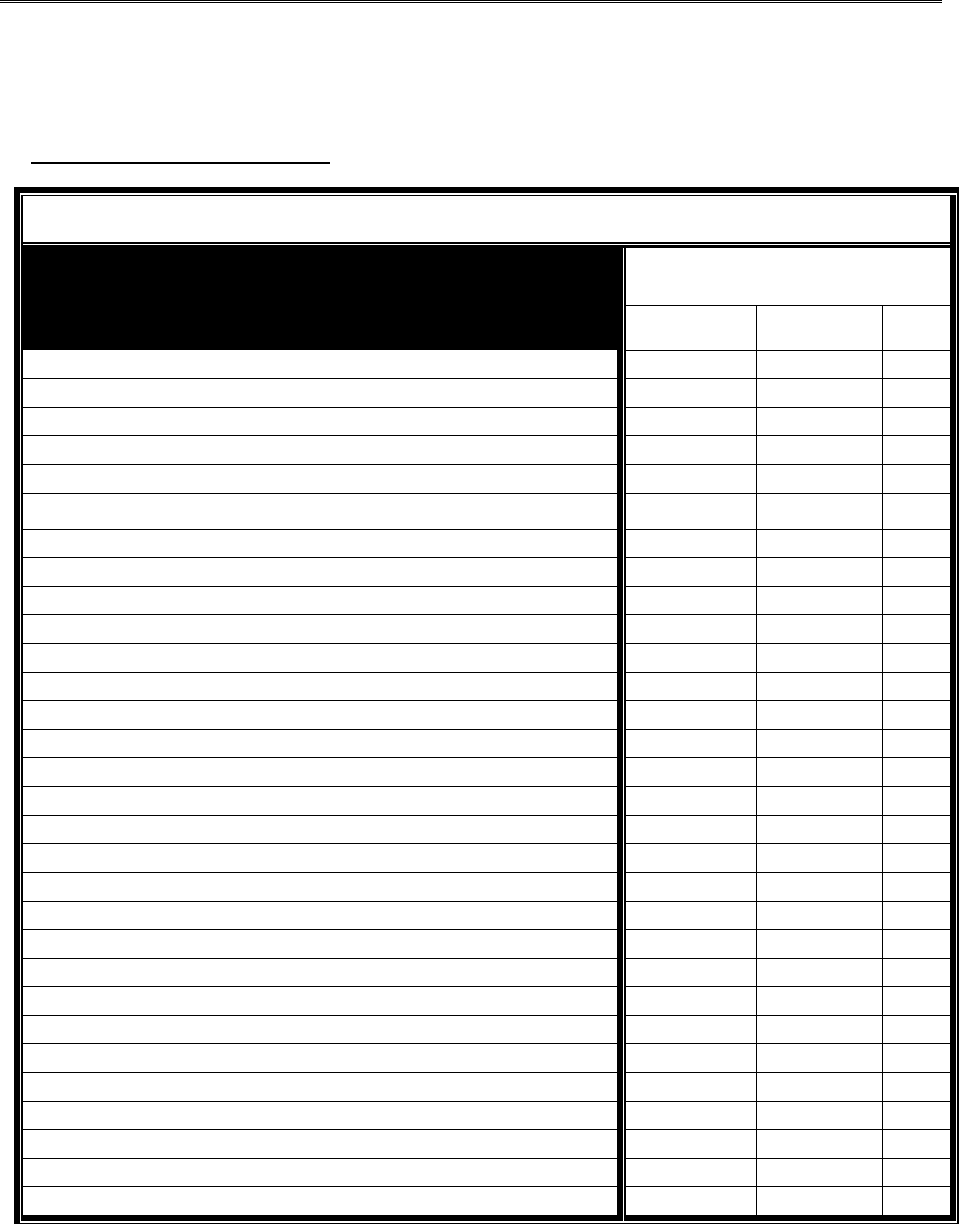
BASEALAINST M11101.1A of 15 Apr 2018
Chapter 6 – Maintenance Responsibilities
Base Alameda Housing Manual
6-1
A. Purpose
This Chapter outlines both the resident and government maintenance responsibilities for all government
owned housing.
1. Maintenance Responsibility Table.
Responsibilities
Description of Maintenance Item
Who’s
Responsible
Resident
Government
Note
Carbon Monoxide Detector
X
X
B
Carpet
X
C
Dishwasher
X
X
D
Door Care (Interior)
X
X
E
Driveways, Garages, Catch Basins, and Storm Drains
X
X
F
Electrical Service
X
G
Fire Extinguishers
X
X
H
Fireplace Use and Firewood Storage
X
X
I
Floor Maintenance
X
X
J
Gardens
X
X
K
Grass Mowing/Lawn Care
X
X
L
Grounds Care
X
X
M
Heater Filter Replacement
X
X
N
Keys and Electric Garage Door Openers
X
X
O
Lighting/Light Fixtures
X
X
P
Painting
X
X
Q
Pest Control
X
X
R
Plumbing
X
X
S
Refrigerator
X
X
T
Refuse Removal and Recycling
X
X
U
Smoke Detectors
X
X
V
Street Maintenance
X
W
Stove/Range
X
X
X
Telephone/Cable and Satellite TV Service
X
X
Y
Walls, Cabinets, and Trim Care
X
X
Z
Water Heater
X
AA
Window Screens
X
X
AB
Window Shades/Blinds
X
X
AC
Window Cleaning and Replacement
X
X
AD
Window Well Cleaning
X
X
AE
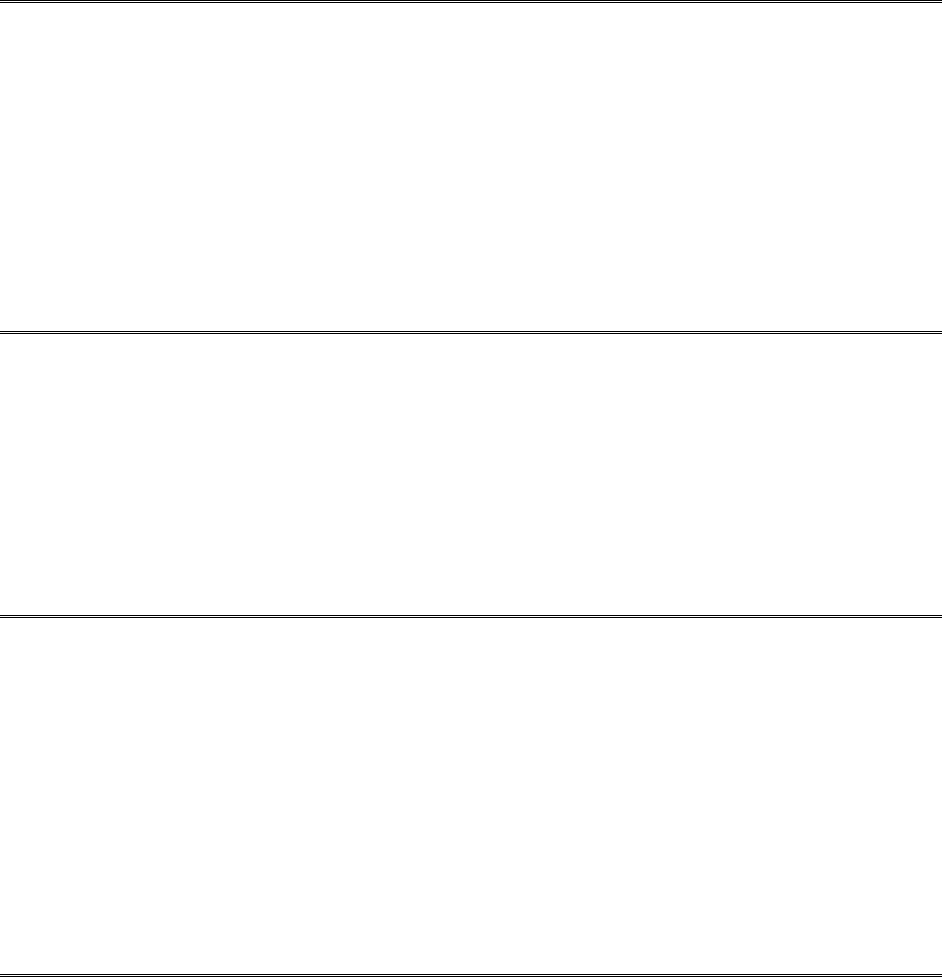
BASEALAINST M11101.1A of 15 Apr 2018
Chapter 6 – Maintenance Responsibilities
Base Alameda Housing Manual
6-2
B. Carbon Monoxide (CO) Detector
General: CO detectors are government property and the resident will be charged for replacement if
found missing.
Resident Shall:
Test unit or check battery every month and replace battery as necessary.
Not remove from installed location, alter, cover up, make inoperable, or remove battery.
Government Shall:
Install CO detectors in quarters as appropriate; replace if inoperative or out of date.
Test during all inspections.
C. Carpet
Resident Shall:
Vacuum carpet as needed. Spot clean/deodorize carpet with water when possible (never use
bleach). Commercial cleaners can be used for stain removal.
Steam clean all carpets as necessary during occupancy and prior to time of check-out.
Government Shall:
Replace as scheduled and/or when deemed necessary.
Charge resident for repair/ replacement if damage is beyond normal wear and tear.
D. Dishwasher
Resident Shall:
Routinely clean inside and out. If inoperative, contact the Housing Maintenance Office.
Follow these guidelines for using their dishwasher:
Before loading, rinse dishes of excess food.
Use dishwasher detergent made only for dishwashers.
Arrange dishes so water can run off.
Remove paper labels before washing jars or cans.
Run dishwasher only when full.
Government Shall:
Perform maintenance as necessary.
E. Door Care (Interior)
Resident Shall:
Wipe down doors with mild household cleaner as necessary.
Normally, interior doors are hollow-core and covered with veneer plywood. Care should be
exercised so as not to puncture, scratch or otherwise damage the veneer on these doors.
Damage considered in excess of normal wear and tear will require the resident to repair/replace
or reimburse the government.
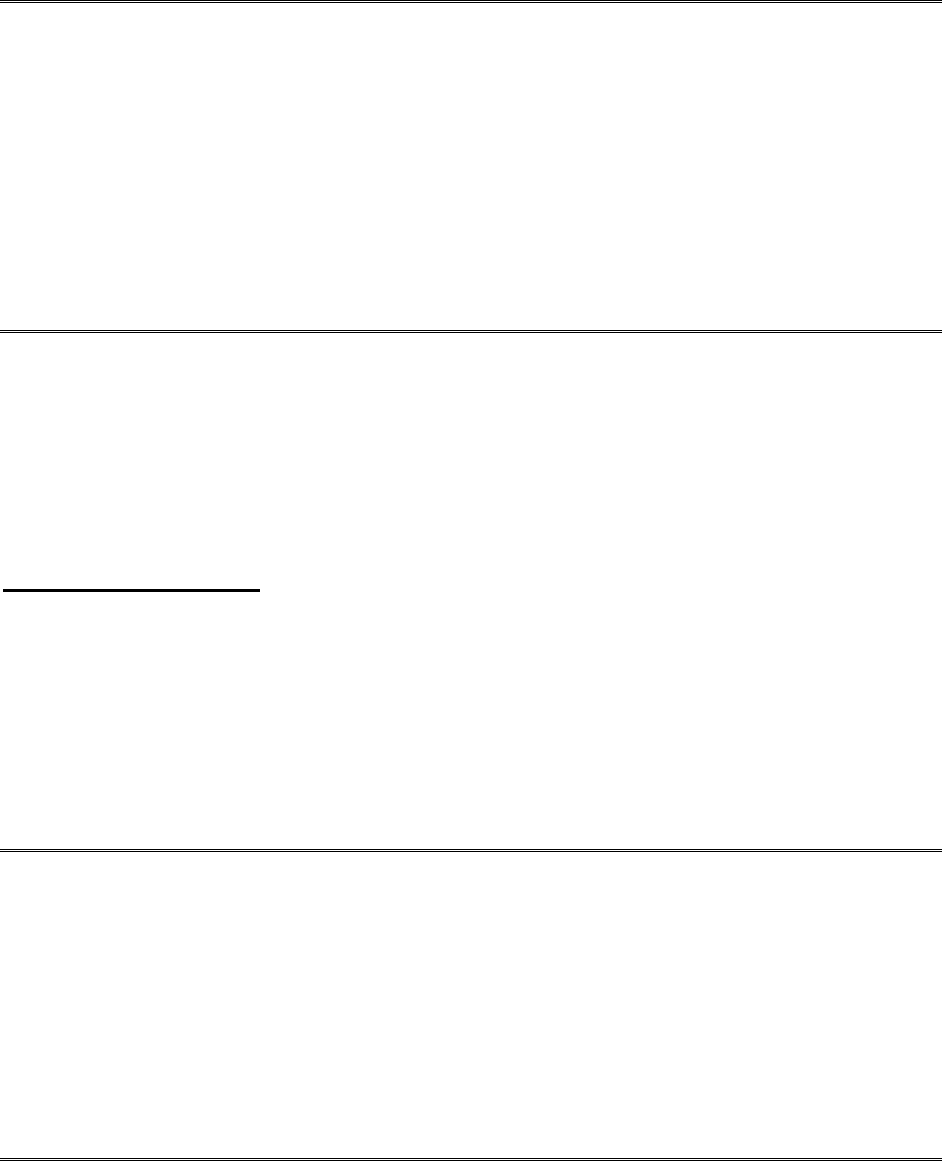
BASEALAINST M11101.1A of 15 Apr 2018
Chapter 6 – Maintenance Responsibilities
Base Alameda Housing Manual
6-3
Government Shall:
Repair/replace as necessary.
Charge resident for repair/ replacement if damage is beyond normal wear and tear.
F. Driveways, Garages, Catch Basins and Storm Drains
General: Residents are responsible for cleaning garages and driveways.
Resident Shall:
Pick up and/or clean any auto fluid/oil spots on driveways and/or garage floor.
Keep debris such as rubbish, leaves, grass cuttings, paper, rags, wood, etc. from getting into
storm drains and catch basins.
Government Shall:
Check during all inspections.
Perform maintenance as necessary.
G. Electrical Service
Resident Shall:
Use electric service responsibly.
Reset breakers as necessary.
Notify Housing Maintenance of power outages, and/or persistent electrical problems.
Purchase surge suppressors to protect electronic equipment (i.e. computers TV, VCR, Stereo,
etc).
Resetting a Circuit Breaker: Circuit breakers or fuses in the electrical distribution panel protect electric
circuits. An electrical short will trip the circuit breaker or burn out the fuse, causing an outage. Usually, a
short or an electric overload causes the outage. Disconnecting an appliance(s) and resetting the circuit
breaker (it works like a light switch) will normally restore the electrical power. Switch the tripped circuit
breaker from the neutral position to the "off" position, wait 5 seconds, then reset to "on". If the circuit
breaker or fuse trips a second time, do not reset it. Call the Housing Maintenance Office.
Government Shall:
Provide electric service.
Provide troubleshooting when appropriate.
Repair electrical systems as necessary.
H. Fire Extinguishers
Resident Shall:
Check charge on gauge on a monthly basis.
Familiarize everyone on the proper use of the fire extinguishers. Operating instructions can be
found on the extinguisher.
Notify the Local Housing Office if extinguishers need servicing.
Government Shall:
Replace or recharge spent or faulty fire extinguishers.
Check during all inspections.

BASEALAINST M11101.1A of 15 Apr 2018
Chapter 6 – Maintenance Responsibilities
Base Alameda Housing Manual
6-4
I. Fireplace Use and Firewood Storage
General: Special care should be taken whenever using the fireplace.
Resident Shall:
Always ensure the fireplace flue is in the open position before starting a fire.
Always have a screen in front of the fireplace to prevent embers from falling out and causing a
fire. Never burn plastics or anything other than dry, hard wood. Never burn pressure treated -
creosote coated lumber.
Keep the fireplace free of excess ashes and debris by utilizing the ash dump door. Clean ash
dump area.
For safety reasons, stow firewood in an orderly fashion on either the side or to the rear of the
building. To reduce termite problems, do not allow the wood to touch the exterior walls, it should
be stacked no higher than 48” at a minimum of 12 inches from the home.
Residents are responsible for any pest removal stemming from fire wood storage (i.e. bees, rats,
mice, etc.)
Have no more than one cord of wood on the premises (the dimensions of a cord of wood are 4ft X
4ft X 8ft).
Government Shall:
Inspect and clean fireplaces at least once a year and during change of occupancy.
Repair as necessary.
J. Floor Maintenance
General: In any house, the floors receive the greatest wear. Thus, it is important to frequently and
properly clean and take care of carpet, oak hardwood, and/or resilient (wood, sheet vinyl, tile or vinyl
planking) floors in the unit. Keep in mind, that water in any form should never be used on oak floors, and
excessive water spillage on resilient floors may cause severe damage.
Resident Shall:
If Oak Hardwood floors exist:
Frequently dust with a dry or chemically treated mop or vacuum.
Use oil soap product to clean hardwood floors.
Dust mop or vacuum with the grain.
Never wax hardwood floors.
Note: Water in any form should never be used on an oak wood floor. Water can seep through
the finish, mar it, and ruin the wood's grain. Rugs on floors which become wet will turn the oak
floor black.
If Sheet or Vinyl Plank floors exist:
Dust mop and spot mop daily. Periodically damp mop as necessary.
Clean with mild detergent. Avoid high alkaline cleaners/detergents and ammoniated
cleaners.
Never flood floor with water.
Keep wet cleaning frequencies to a minimum.
Do not wax flooring as recommended by the manufacturer.
If Ceramic Tile floors exist:
Dust mop and spot mop daily. Periodically damp mop as necessary.
Clean with mild detergent. Avoid high alkaline cleaners/detergents and ammoniated
cleaners.
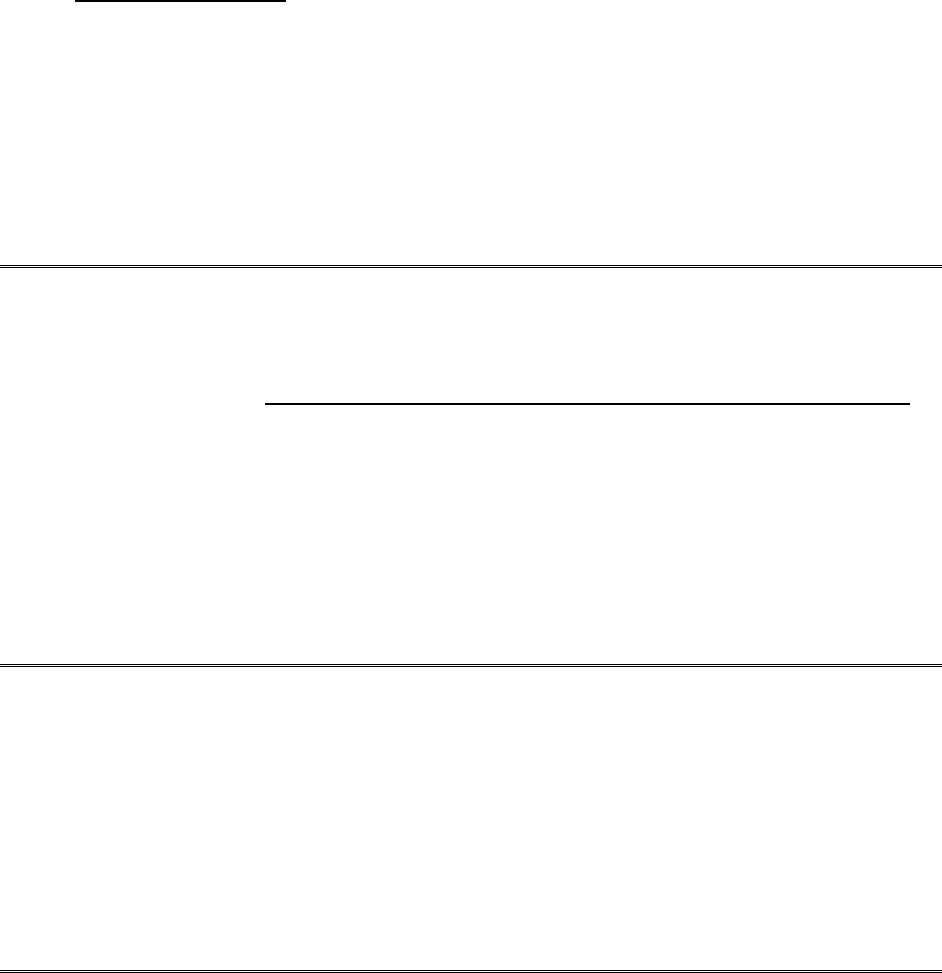
BASEALAINST M11101.1A of 15 Apr 2018
Chapter 6 – Maintenance Responsibilities
Base Alameda Housing Manual
6-5
Never flood floor with water.
Never wax tile floors.
If Vinyl Tile floors exist:
Dust mop and spot mop daily. Periodically damp mop.
Clean with mild detergent. Avoid high alkaline cleaners/detergents and ammoniated
cleaners.
Never flood floor with water.
Do not wax flooring as recommended by the manufacturer.
Government Shall:
Repair and replace flooring as necessary.
Refinish oak hardwood floors as necessary.
Charge resident for any damage beyond normal wear and tear.
K. Gardens
General: All gardens are considered ‘self-help’ projects. Residents are encouraged, where permitted, to
plant flowers (bulbs, plants) to beautify and brighten up the landscape. Colorful annuals are easy to
acquire, plant, and maintain. See the appropriate Appendix for specific information for the housing site.
Resident Shall:
Receive approval from the Local Housing Office using a Self Help Work Order Request prior to
planting any garden.
Purchase all garden supplies.
Not remove existing topsoil or grass from around the foundation without prior approval. Removal
of the grass and topsoil prevents drainage away from the house foundation.
Government Shall:
Maintain common area gardens, shrubs, etc.
L. Grass Mowing/Lawn Care
General: See the appropriate Appendix for any specific grounds care requirements. Lawn mowers,
edgers and other equipment may be available at the Local Housing Office.
Resident Shall:
Mow grass as required for their housing site.
Government Shall:
Maintain all common area lawns.
Provide safe and operable lawn equipment in the Self-Help Locker.
M. Grounds Care
General: All residents are responsible for maintaining the exterior grounds around their quarters in a
neat and orderly fashion. Residents will be held financially responsible for any grounds maintenance
costs where their personal property restricts the maintenance staff’s ability to do their job.
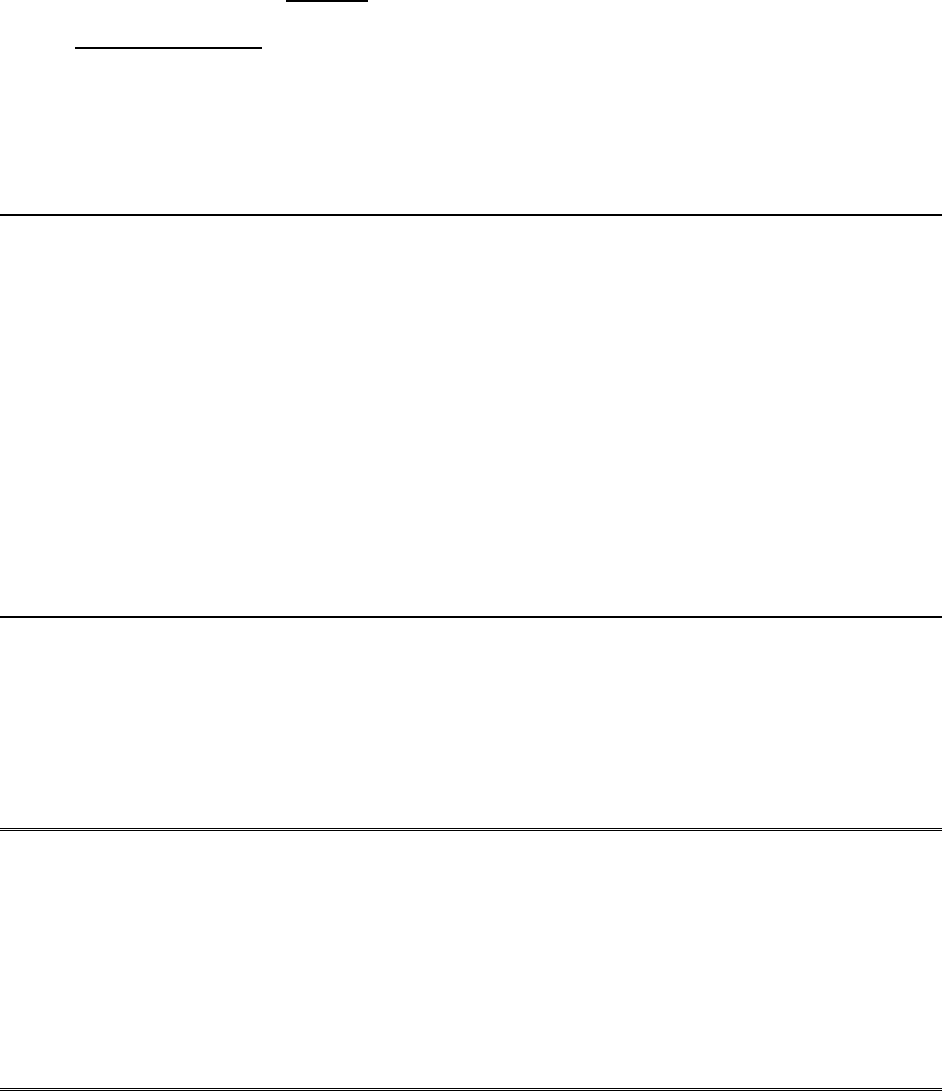
BASEALAINST M11101.1A of 15 Apr 2018
Chapter 6 – Maintenance Responsibilities
Base Alameda Housing Manual
6-6
Resident Shall:
Pick up all litter/yard debris and dog feces in their yard, walks, parking and/or driveway areas.
Keep personal yard gear such as picnic tables and lawn chairs off common areas when not in
use. All personal items shall be in safe working order so they present a neat and clean
appearance.
When not in use, neatly stow all toys and bicycles in the back yard area or garage/carport.
Bicycles and other toys shall not be left in the street, common areas, walkways, parking areas,
or front yards.
Common Yard Areas: In places that share a common yard area, stow all portable items inside
the unit, in the garage/carport or on the patio.
Government Shall:
Periodically inspect all exterior grounds and notify residents of deficiencies by issuing a Violation
Notice.
Maintain all common area grounds.
N. Heater Filter Replacement
General: Degraded and clogged filters decrease heating efficiency and increase associated utility usage
and costs. See the appropriate Appendix for requirements at the housing site.
Resident Shall:
Inspect filter every 3 months, at a minimum.
Residents with animals, or who otherwise create a lot of dust/airborne particles, shall inspect on a
more frequent basis than every 3 months.
Replace heater filter as necessary.
Allow maintenance staff access to the unit for filter replacement.
Government Shall:
Replace heater filter semi-annually or annually.
Inspect during the annual Inspection.
O. Keys and Electric Garage Door Openers
Resident Shall:
Reimburse the government for any lost keys or electric garage door openers.
Government Shall:
Provide trouble shooting services and repairs.
P. Lighting/Light Fixtures
Resident Shall:
Purchase and replace burned-out light bulbs. Use CFL or LED bulbs.
Government Shall:
Perform troubleshooting and repairs as necessary.
Provide light covers and specialty bulbs as necessary.
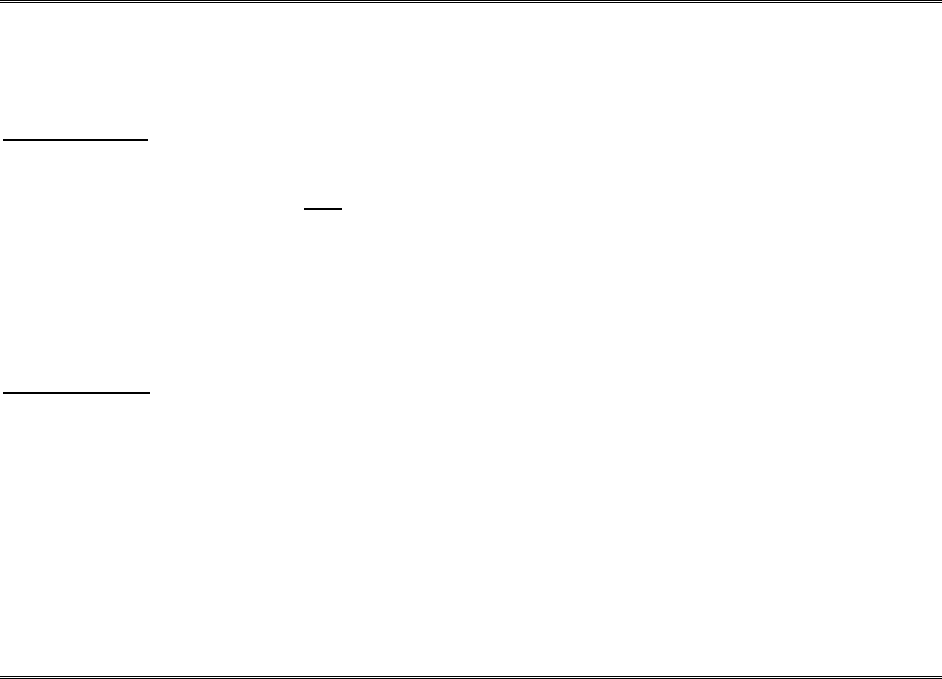
BASEALAINST M11101.1A of 15 Apr 2018
Chapter 6 – Maintenance Responsibilities
Base Alameda Housing Manual
6-7
Q. Painting
General: Normally, all painting is accomplished by the government.
Interior Painting: Most units will be painted during change of occupancy maintenance, however, under
normal living conditions interior painting may only be done once every 5-6 years. Painting does not need
to be done if the walls, ceiling, and other surfaces can be restored to a satisfactory appearance by
cleaning and touchup. Residents may be authorized to paint interior walls/ceilings if they so desire.
Residents may be required to restore any self painted area to the original color prior to
vacating. Some examples would be, the color used is different from the original, the
application itself is unsatisfactory (streaking, insufficient coverage), etc. The
requirement to restore the painted area prior to departure will be addressed by the
Housing Office on the Self Help Request or at the pre-termination inspection.
Exterior Painting: Accomplished by the government as needed in order to maintain water tightness and
to prevent metal and wood surfaces from deterioration
Resident Shall:
Receive approval from the Local Housing Office using a Self Help Work Order Request prior to
starting any project.
Reimburse the government for any and all damages if determined to be beyond normal wear and
tear.
Report any paint failure to the Housing Maintenance Office, especially if lead paint is present.
Government Shall:
Perform all scheduled interior and exterior painting as necessary or programmed.
R. Pest Control
General: Responsibility for routine household pest control needs to be focused on the resident.
Excluding termites and rats, residents are expected to perform all routine pest control. Routine pest
control means controlling normal household pests (including mice), along with keeping pets free of fleas
and ticks. The use of non-residual insecticides for safe application by the general public, such as
household spray insecticides, is expected of the resident.
Residents can control many varieties of pests with minimum expense and effort. Products are available
at the local exchange, commissary, grocery or drug store, home improvement store or nursery. While the
government may, on a scheduled basis during the year, perform exterior pest control, it is still each
resident’s responsibility to ensure their home is free of pests.
As a general rule, poor housekeeping is the main factor in pest infestation. Pests thrive on leftover food
placed on sink counters and in cupboards, on unwashed dishes, and on food left out for pets. They will
also feed on paper and glue products. Things to do to control household pests are: Deposit garbage in
plastic garbage bags before putting them in your trash can, wipe up spilled food and drinks immediately,
do not keep empty bottles or cans of sugary drinks under the sink, clean up immediately after pets and
store leftover food in airtight containers.
Unless bats are located within a wall and causing the resident problems, bats will not be considered
pests, and are to be left alone.

BASEALAINST M11101.1A of 15 Apr 2018
Chapter 6 – Maintenance Responsibilities
Base Alameda Housing Manual
6-8
If it is believed there is an infestation beyond the resident’s capabilities and requires professional control
measures, contact the Local Housing Office and a housing inspector will visually inspect the quarters to
validate the presence of the infestation. This is required before any government funded pest control work
will be performed.
Resident Shall:
Use safe pesticides and traps that are available in local stores.
Carefully follow all instructions for pesticides and traps. Avoid exposing children and pets to any
fumes from pesticides.
Contact the Housing Office to schedule treatment that is beyond resident capabilities and
requires professional control measures.
Keep backyard accessible for scheduled exterior pest control. Residents will normally be notified
of these appointments 48 hours in advance.
Reimburse the government for all pest control costs due to neglect or poor housekeeping
practices.
Government Shall:
Perform periodic and routine external and internal pest control.
Inspect for severe infestation during all inspections. If neglect can be determined, charge
resident for all pest control costs.
Exterminate termites and rats.
Infestation Cases: The resident shall advise the Housing Office in cases where normal pest control
measures have not been effective. If infested quarters are a part of a multi-unit building, it may be
necessary to inspect and commercially treat the entire building.
Termination of Quarters: When terminating quarters, a Housing Representative will check for severe
insect/pest problems. If significant infestation is discovered (i.e. fleas, ants), and the housing official
determines the insect/pest problem is a result of poor housekeeping or neglect, the resident will be
ordered to have the quarters treated professionally by a licensed contractor. The resident must show
proof of treatment before passing their final inspection. If the resident is unable to have the treatment
performed due to time constraints, they will be charged the government’s cost for such treatment.
Termites: Termites are small, ant-like insects that feed on and live in wood. They are very destructive to
the wood found in house structures. If detected, the Housing Office will take immediate action.
Evidence of: Large numbers of winged termites emerging or swarming from the soil or wood may be
the first indication of the presence of a termite colony. Even if the actual flight of the termites is not
observed, the presence of discarded wings is very good evidence of a well-established colony
nearby. The presence of thin, flattened tubes over the surface of foundation walls is another sign of
termite infestation. Call the Housing Maintenance Office if a termite infestation is suspected.
Treatment: If termites are found, treatment will be completed under government contract. Residents
will be advised of their responsibilities and treatment schedule. Every reasonable effort will be made
to give residents as much advance notice as possible before entering the quarters. However, once
prior notice is given, a member of the housing staff will escort the pest control technician into the
quarters if no one is at home when the extermination is scheduled.
Fumigation: The Housing Office will notify all affected residents if it is necessary to fumigate a
housing unit or entire building.

BASEALAINST M11101.1A of 15 Apr 2018
Chapter 6 – Maintenance Responsibilities
Base Alameda Housing Manual
6-9
S. Plumbing
General: Most plumbing stoppages can be prevented by using good judgment. If there is a leak or
overflow, try to secure the water to prevent further damage. Regarding garbage disposals, these units
are very handy but must be used with care, because they are easily damaged. Never put chemical drain
cleaners down the disposal, as serious corrosion and damage will result. To properly operate the
garbage disposal, remove the drain stopper, turn on the cold water, and keep it going during the entire
operation to thoroughly flush the ground waste through the drain. Start the disposal and feed food wastes
directly into it. NEVER put your fingers or hand into a running disposal. Run the disposal until there is no
longer the sound of food grinding. DO NOT put bones, meat gristle, onion skins, corncobs, rice, and
other very hard or fibrous foods down the garbage disposal.
Resident Shall:
Routinely remove hair and other debris from sink, bathtub, and shower drain traps.
Do not wash anything down the drains such as, petroleum products, paint, cooking oil, rice,
bones, insecticides, etc.
Use a plunger if a drain is clogged.
Have a sink and toilet plunger on hand to assist in reducing sluggishness in drains.
Purchase, install, and maintain shower curtain(s) on all showers that require them. Always have
the shower curtain inside the tub when showering; this will avoid floor and other structural
damage that may result in charged damages.
Contact the Housing Maintenance Office for any leaks, or plumbing problems that cannot be
repaired.
Clean up overflows using mop, wet/dry vacuum.
Government Shall:
Provide troubleshooting assistance and repairs as needed.
T. Refrigerator
General: Proper cleaning and care will assure care free operation of this kitchen appliance for many
years. Government furnished refrigerators are considered installed property and will NOT be replaced
with personal refrigerators. Residents are not to perform any type of repairs on refrigerators. Damages
caused by such repairs will be charged to the member.
Resident Shall:
Clean the refrigerator and freezer sections at least twice a year. Do not use abrasives. Use
warm water and 1 tablespoon of baking soda to a quart of water. Rinse thoroughly with water
and wipe dry. Wash ice trays in lukewarm water only. The water evaporation pan located under
the refrigerator should be cleaned periodically.
Government Shall:
Provide troubleshooting and repairs.
U. Refuse Removal and Recycling
General: Contact the Local Housing Office or see the appropriate appendix for trash service schedules
and the location and availability, if any, of a dumpster for disposal of excess yard waste. New residents
are responsible for disposing of empty packing boxes/materials if the mover does not take them.

BASEALAINST M11101.1A of 15 Apr 2018
Chapter 6 – Maintenance Responsibilities
Base Alameda Housing Manual
6-10
Resident Shall:
Use only the trashcans and recycling bins that were provided by the Housing Office. Ensure all
items fit in cans leaving no excess debris.
Report contractor failure to empty a container(s) on the scheduled date of pickup to the Local
Housing Office.
Clean garbage cans and recycling containers regularly to prevent pest infestation and odor.
Keep lids secured at all times.
Keep the cans in the garage or trash area until waste pickup day. Trashcans and recycling bins
should be placed at the curb on pickup day, and then they should be stored within 24 hours of
waste pickup.
Government Shall:
Provide refuse and recycling service and containers.
V. Smoke Detectors
Resident Shall:
Test the smoke detector monthly to ensure batteries do not need replacing. Follow the
instructions below.
Purchase and replace batteries as necessary. (Good practice is to replace the batteries in the fall
and spring when the time changes)
Do not remove smoke detectors.
Government Shall:
Install smoke detectors in quarters as appropriate; replace if inoperative or out of date.
Test during all inspections.
Resident Inspection Instructions: Monthly inspections shall be performed by pushing the test button on
the detector. If the detector does not make a sound, contact the Housing Maintenance Office. If the
battery power is low, the detector will produce an audible click or beep every few seconds for about seven
(7) days. Also, the smoke detector should be tested often by blowing smoke from a match, or by using
“canned smoke” into the side vents until the alarm sounds. To clear the alarm, gently blow or fan the
smoke out of the vents until the alarm stops. Clean the detector once a year by holding the nozzle of a
vacuum cleaner to the side slot openings.
W. Street Maintenance
General: The maintenance and repair of streets within the housing areas is the government's
responsibility.
Resident Shall:
During road maintenance residents are required to remove all vehicles from the street.
Instructions will be issued prior to any parking restrictions.
Government Shall:
Provide street maintenance.
Issue resident instructions.

BASEALAINST M11101.1A of 15 Apr 2018
Chapter 6 – Maintenance Responsibilities
Base Alameda Housing Manual
6-11
X. Stove/Range
General: Proper cleaning and care will guarantee care-free operation of this kitchen appliance.
Residents are not to perform any type of repairs on stoves/ranges. Damages caused by such repairs will
be charged to the member.
Pilotless Ignition: Gas ranges installed after mid-1978 have pilotless ignition. The ticking sound heard
when turning on the top burner(s) to the light position is normal. This is the electronic igniter, and will
make this sound until the knob is turned to another position after the burner flame comes on.
Resident Shall:
Report malfunctions to Housing Maintenance.
Cleaning Guidelines: Clean the range on a frequent basis. Remove all dirt, grease and spills
promptly. If allowed to remain on the finish, grease or spills on parts of the range subjected to
high heat will turn to hard carbon and be difficult to remove. Immediately, wipe up any acidic food
(vinegar, fruit juices, tomato, milk, fruit pie filling) spilled on porcelain to avoid permanent stains.
Clean enamel parts using warm soapy water or cleaning powder that will not scratch the surface.
Keep burner head ports clean for proper ignition and efficient use of the burners. To be sure the
ports are kept open use a soft brush to clean away loose soil. If there is still soil in the ports,
clean them with a thin wire or hairpin.
Not use spray-on oven cleaners.
Moving/Cleaning Behind the Range: Upon quarters termination, and when necessary, ranges and
adjoining areas must be thoroughly cleaned. Please follow these guidelines before moving the
range:
Gas ranges connected to the gas supply with semi-rigid flexible tubing may be moved up to 6
inches by the resident. However, care must be exercised to insure the hose, connections, and
flooring is not damaged. Gas ranges needing to be moved more than 6 inches, or connected with
rigid piping, must be disconnected by housing maintenance. Call the Housing Maintenance
Office at least 48 hours in advance for disconnection. Do Attempt to Disconnect YOURSELF!
Government Shall:
Perform troubleshooting services and repairs.
Conduct significant (greater than 6 inches) moving of gas ranges that are installed with flex
piping. Move gas ranges that are installed using rigid piping.
Y. Telephone/Cable and Satellite TV Service
General: Telephone and Cable TV service is the responsibility of the resident.
The Coast Guard is required to provide (2) operable phone jacks in each unit; (1) in the kitchen and (1) in
the master bedroom. Any additional outlets installed beyond the two mentioned above would be at the
expense of the resident. In addition, the resident is responsible for all costs associated with their initial
activation.
Phone Problems: If a resident has a phone problem, the first step is to call the phone company to have
them test their number(s). This is done remotely by the phone company when calling the 800 number. If
the phone company informs the resident their lines are good then the resident needs to contact the
Housing Maintenance Office to have the wiring inside the unit checked for proper operation.

BASEALAINST M11101.1A of 15 Apr 2018
Chapter 6 – Maintenance Responsibilities
Base Alameda Housing Manual
6-12
All wiring and telephone equipment from the phone panel in the utility room/side of the housing
unit out, belongs to the phone company and it is their responsibility to maintain and repair.
All existing wiring and jacks from the same location into the unit belong to the government and
the phone company should never be allowed to perform any repair work on these items if
it will result in a charge. Residents are responsible for all costs and will not be reimbursed for
expenses incurred if they allow the phone company to fix problems inside the housing unit.
Complete failure of phone service is considered an emergency. If the phone company has
determined the failure is inside the housing unit, call the Housing Maintenance Office.
Resident Shall:
Arrange and pay for any installation of telephone and cable/satellite TV and pay monthly service
charges.
Submit a Self-Help Work Order Form for additional telephone or cable/satellite television jack
installations prior to work commencing.
Government Shall:
Provide 2 operable phone jacks (kitchen and master bedroom). Approve all additional
installations.
Repair all phone wiring/jack problems inside the unit.
Z. Walls, Cabinets and Trim Care
General: A fully washable paint has been used to paint walls, cabinets, and trim surfaces. Follow the
instructions below for cleaning.
Cleaning Instructions:
Never use any harsh cleansers, abrasives, automotive/marine/aircraft degreasers or steel wool. Test
compatibility of cleaning agents in an inconspicuous place.
Wash walls and cabinets using a mild detergent applied with a sponge or soft cloth. After washing, rinse
with a sponge and clean water. Do not overuse water and do not remove texture surface.
Resident Shall:
Clean all kitchen/bathroom walls, trim and cabinets as needed. All walls must be cleaned prior to
termination, even if quarters are scheduled for repainting. Washing is necessary to ensure a
proper bond, texture, and color when repainted.
Not use any adhesive contact paper on shelving.
Government Shall:
Check for cleanliness during all inspections. Make repairs if necessary.
AA. Water Heater
Resident Shall:
NOT attempt to adjust temperature or any type of setting or valves on their water heater.
Tampering with water heater valves can be dangerous. Leaks, breaks, or non-heating water
should be reported to the Housing Maintenance Office immediately.
Not use the space surrounding the water heater for storage.
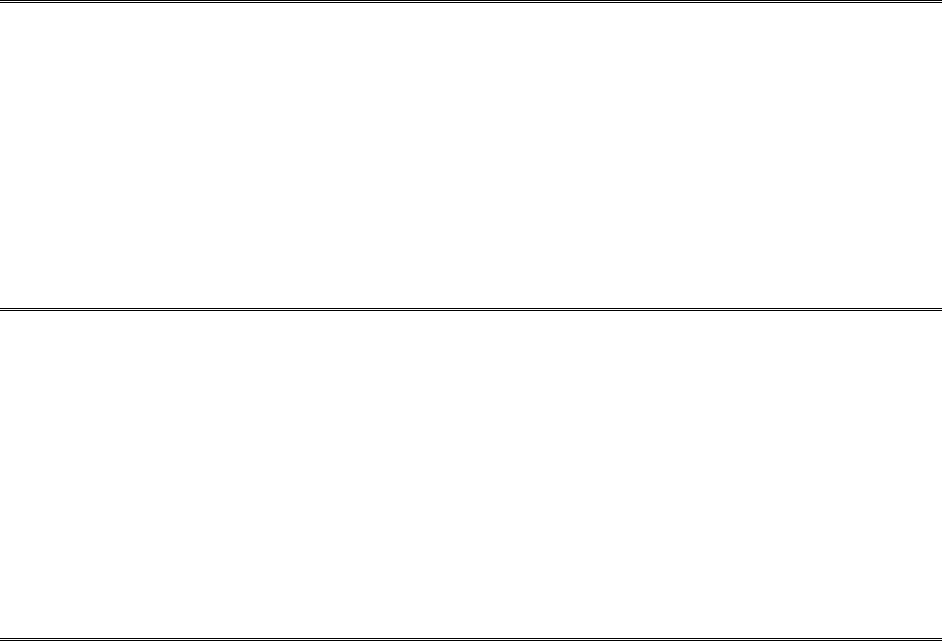
BASEALAINST M11101.1A of 15 Apr 2018
Chapter 6 – Maintenance Responsibilities
Base Alameda Housing Manual
6-13
Never have an open flame near the water heater.
Government Shall:
Provide troubleshooting when appropriate.
Repair/replace water heaters as necessary.
AB. Window Screens
General: Unless cleaning a window or the screen, window screens should remain in place at all times.
Resident Shall:
Carefully remove screens and use a mild detergent and water to spray clean.
Repair, replace, or reimburse the government for any damaged window screens.
Government Shall:
Determine if resident is responsible for repair/replacement of screens.
Repair/replace worn out screens as necessary.
AC. Window Shades/Blinds
General: Shades/blinds have an expected life of several years. Shades/blinds that become unusable
through abuse or are missing after check-in inspection will be replaced at the resident’s expense.
Resident Shall:
Periodically clean all window shades and blinds.
Repair, replace, or reimburse the government for any damaged window shades or blinds.
Government Shall:
Determine if resident is responsible for repair/replacement of shades/blinds.
Repair/replace worn out shades/blinds as necessary.
AD. Window Cleaning and Replacement
General: Residents are responsible for cleaning all windows inside and out and replacing glass if broken
through negligence or misuse.
Resident Shall:
Periodically clean all windows inside and out. Contact the Local Housing Office for instructions
on how to remove certain types of windows.
Notify the Housing Maintenance Office as soon as possible of a broken or cracked window
(including storms).
Temporarily seal window breaks or cracks with suitable material such as heavy cardboard, vinyl
sheeting or wood until repairs are made.
If the break or crack was caused by the resident/guest/pet due to misuse or negligence,
reimburse the government for labor and material costs to repair/replace broken or cracked
window or door glass. The Housing Office will instruct the resident of replacement procedures.
Government Shall:
Determine responsibility of broken/cracked windows and charge the resident if appropriate.
Repair/replace broken windows.

BASEALAINST M11101.1A of 15 Apr 2018
Chapter 6 – Maintenance Responsibilities
Base Alameda Housing Manual
6-14
Determine if the resident is responsible for replacement.
AE. Window Well Cleaning
General: Residents with basements are responsible for cleaning window wells. Thorough cleaning will
ensure satisfactory drainage and prevents water from building up and entering the basement through the
window area. Cleaning window wells also eliminates breeding areas for insects.
Resident Shall:
Keep basement window wells clean and free of rubbish, leaves, grass cuttings, paper, rags, wood,
etc. as required.
Government Shall:
Inspect window wells during all inspections.
Repair drains as needed.
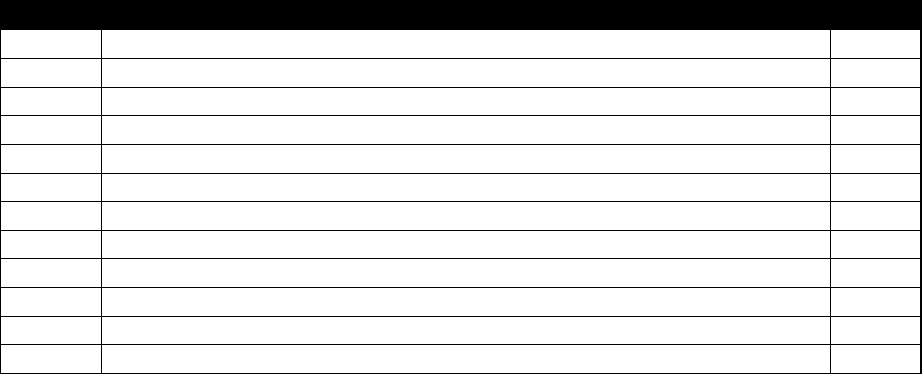
BASEALAINST M11101.1A of 15 Apr 2018
Chapter 7 – Family Disaster Plan and Earthquake Preparedness
Base Alameda Housing Manual
Table of Contents
Section
Subject
Page
A
Disasters and Earthquakes
7-1
B
Identify Hazards
7-1
C
Supplies
7-1
D
Emergency Communication Plan
7-3
E
Vital Records and Valuables
7-3
F
Family Preparation
7-4
G
What To Do During an Earthquake
7-4
H
Tips for Preparing Children
7-6
I
Tips for the Physically Challenged
7-6
J
Tips for the Elderly
7-7
K
Tips for Pet Owners
7-8

BASEALAINST M11101.1A of 15 Apr 2018
Chapter 7 – Family Disaster Plan and Earthquake Preparedness
Base Alameda Housing Manual
BLANK

BASEALAINST M11101.1A of 15 Apr 2018
Chapter 7 – Earthquake Preparedness
Base Alameda Housing Manual
7-1
A. Disasters and Earthquakes
There are many different kinds of disasters. Earthquakes, floods, fires, pipeline leaks, explosions, etc.,
which seldom give warning and are always equally devastating to their victims. This chapter is primarily
geared to earthquakes, but the planning a family does now will be of benefit when and if any disaster
strikes. California is susceptible to earthquakes. Earthquakes strike quickly and without warning.
Families may be forced to evacuate their neighborhood if directed by civil authorities or the Coast Guard,
or may be confined to their home. Families need to ask themselves what would they do if basic services-
water, gas, electricity or telephones- were cut off? Local officials and relief workers will be on the scene
after a disaster, but they cannot reach everyone right away. Don’t be caught unprepared for such a
disaster. Plan ahead by conducting earthquake drills and prepare an earthquake kit that will sustain
everyone for a few days if necessary. Housing Offices will not be providing residents with essentials in
the event of a catastrophe. Each resident will be on their own to have their necessary items on hand.
The best way to make everyone, and the home, safer is to be prepared before disaster strikes.
B. Identify Hazards
Identify potential hazards in the home ahead of time. Advance planning can reduce the danger of serious
injury or loss of life from an earthquake.
Fasten shelves securely to walls.
Place large or heavy objects on lower shelves.
Store breakable items such as bottled foods, glass, and china in low, closed cabinets with latches.
Hang heavy items such as pictures and mirrors away from beds, couches, and anywhere people sit.
Have defective electrical wiring and leaky gas connections repaired. These are potential fire risks.
Contact the Housing Maintenance Office for any problems.
All water heaters should be strapped to the wall studs. Contact the Housing Maintenance Office if the
water heater is not secured.
Repair any deep cracks in ceilings or foundations. Contact the Housing Maintenance Office if any
problems are noted.
Store weed killers, pesticides, and flammable products securely in closed cabinets with latches and
on bottom shelves.
C. Supplies
When preparing for an earthquake, plan on having enough supplies to get everyone in the family through
at least the first 72 hours. A 2-week supply of water, food, medicine and other consumable items is
recommended. After a major earthquake, there is a good chance that traditional emergency response
teams will be too busy to take care of Coast Guard residents. Basic services to the home may be non-
existent – gas, water, electricity, and telephones – for a few days. Housing Offices will not be providing
residents with supplies. Each family needs to prepare their home. Ensure supplies are stored in a
convenient place known to all family members.
Essentials
Water (2 gallons per person per day).
Water purification kit.
First aid kit, freshly stocked & First Aid Book.
Flashlight and extra batteries.

BASEALAINST M11101.1A of 15 Apr 2018
Chapter 7 – Earthquake Preparedness
Base Alameda Housing Manual
7-2
Portable battery-operated radio and extra, fresh batteries.
Non-perishable food (requires no refrigeration, heat preparation or water). Consider pets and other
special dietary requirements.
Manual can opener.
Watch or battery-operated clock.
Blankets or sleeping bags.
Essential medications (include antacid and anti-diarrhea medication).
Extra pair of eyeglasses.
Extra set of car keys.
Fire extinguisher (A-B-C type).
Pet food, water and restraint (leash or carrier).
Cash and change.
Sunscreen.
Scissors, tweezers, needles and safety pins (in assorted sizes).
Baby supplies: formula, bottle, pacifier, soap and baby powder, clothing, blankets, baby wipes,
disposable diapers, canned food and juices.
Sanitation Supplies
Large plastic trash bags for waste; tarps and rain ponchos.
Bar soap and liquid detergent.
Shampoo.
Toothpaste and toothbrushes.
Feminine hygiene supplies.
Deodorant.
Toilet paper.
Household bleach.
Latex gloves.
Moistened towelettes.
Infant supplies.
Newspapers (to wrap garbage and waste).
Safety and Comfort
Sturdy shoes.
Heavy gloves for clearing debris.
Candles and matches (in a waterproof container).
Put a security light in each room. These lights plug into any outlet and light up automatically if there
is a loss of electricity. They continue operating automatically for four to six hours and they can be
turned off by hand in an emergency.
Light sticks.
Change of clothing.
Garden hose for siphoning and firefighting.
Tent.
Paper, pens (or pencils), stamps.
Matches (kept in a waterproof container).
Knife (sharp) or utility knife/razor blades.
Cooking
Plastic knives, forks, spoons.
Paper plates and cups, paper towels.

BASEALAINST M11101.1A of 15 Apr 2018
Chapter 7 – Earthquake Preparedness
Base Alameda Housing Manual
7-3
Pots (at least 2).
Heavy-duty aluminum foil.
Non-electric can opener.
Zip lock plastic bags (various sizes).
Camping stove for outdoor cooking (caution: before using fire to cook, make sure there are no gas
leaks; never use charcoal or gas grills indoors).
Tools and Supplies
Axe, shovel, broom.
Tool kit including a screwdriver, pliers, crescent wrench and a hammer.
Coil of 1/2" rope.
Plastic tape, staple gun and vinyl sheeting for window replacement.
Bicycle.
Utility knife (with extra blades).
Duct tape.
Needles and thread.
Whistle.
Plastic bucket with tight lid.
Pen and paper.
Disinfectant.
D. Emergency Communication Plan
Develop an emergency communication plan. In case family members are separated from one another
during an earthquake (a real possibility during the day when adults are at work and children are at school)
develop a plan for reuniting after the disaster.
Decide where and when to reunite as a family should you be apart when an earthquake occurs. Pick two
meeting places: (1) a location a safe distance from the home in case of fire and (2) a place outside the
neighborhood in case returning home is not an option.
Choose an out-of-state friend or relative as a “checkpoint” for other friends and relatives to call. After
a disaster, it's often easier to call long distance. Make sure everyone in the family knows the name,
address, and phone number of the contact person.
Know the policies of the school or daycare center children attend. Make plans to have someone pick
them up if you are unable to get to them.
If there is a family member who does not speak English, prepare an emergency card written in
English indicating that person's identification, address and any special needs such as medication or
allergies. Tell that person to keep the card with him/her at all times.
Include the babysitter, guests and other household help in the plans.
E. Vital Records and Valuables
Protect important family documents such as wills, insurance policies, contracts, stocks and bonds,
passports, immunization cards, credit card account numbers, an inventory of valuable household goods,
important telephone numbers, birth and marriage certificates in a waterproof, fireproof portable container.

BASEALAINST M11101.1A of 15 Apr 2018
Chapter 7 – Earthquake Preparedness
Base Alameda Housing Manual
7-4
Make copies of vital records and take photos and/or videos of all valuables. Send the copies to a relative
outside the state or keep them in a safe deposit box.
F. Family Preparation
Conduct drills, establish escape routes and ensure everyone knows all the best possible ways to exit the
house after an earthquake.
Have a plan for each room. Know the safest place in each room because it will be difficult to move
from one room to another during an earthquake. Keep escape routes clear.
Get under sturdy furniture such as a heavy desk or table.
Get against an inside wall.
Get away from where glass could shatter (around windows, mirrors, pictures, or where
heavy bookcases or other heavy furniture could fall over).
Always keep escape routes clear.
Make sure everyone knows how to respond after an earthquake. Do Not attempt to secure utilities
yourself. The Housing Office and/or Housing Maintenance Staff will secure shutoff valves for gas,
water and electricity, if warranted.
Teach children how and when to call 9-1-1, police, or fire department and which radio station to tune
to for emergency information.
Know the locations of the nearest fire and police stations.
Practice taking cover as if there were an earthquake and learn the safe places in the home. Conduct
Earthquake Duck, Cover & Hold drills every six months and include family escape routes.
Call the local Red Cross chapter and Office of Emergency Services to find out about their plans for
emergency shelters and temporary medical centers in case of such a disaster.
Review any renter’s insurance policies. Some damage to personal property may be covered without
specific earthquake insurance.
G. What To Do During an Earthquake
Most importantly - STAY CALM, and stay where you are unless you are in danger. Most injuries during
earthquakes occur when people are hit by falling objects when entering or exiting buildings.
Earthquake: Duck, Cover & Hold
No matter what, DUCK or DROP down on the floor. Take COVER under a sturdy desk, table or other
furniture. If that is not possible, seek cover against an interior wall and protect your head and neck with
your arms. Avoid danger spots near windows, hanging objects, mirrors or tall furniture. If you take cover
under a sturdy piece of furniture, HOLD on to it and be prepared to move with it. Hold the position until
the ground stops shaking and it is safe to move.
General Tips During an Earthquake. When an earthquake is felt, duck under a desk or sturdy table.
Stay away from windows, bookcases, file cabinets, heavy mirrors, hanging plants, and other heavy

BASEALAINST M11101.1A of 15 Apr 2018
Chapter 7 – Earthquake Preparedness
Base Alameda Housing Manual
7-5
objects that could fall. Watch out for falling plaster and ceiling tiles. Stay undercover until the shaking
stops, and hold onto the cover. If it moves, move with it. Below are some additional tips for specific
locations:
If in a HIGH-RISE BUILDING, and not near a desk or table, move against an interior wall and protect
your head with your arms. Do not use the elevators. Do not be surprised if the electricity goes out or
alarm or sprinkler systems come on. Stay indoors on the same floor, as an evacuation may not be
necessary. Glass windows can dislodge during the quake and sail for hundreds of feet.
If OUTDOORS, move to a clear area away from trees, signs, buildings, electrical wires, and poles.
If on a SIDEWALK NEAR BUILDINGS, duck into a doorway to protect yourself from falling bricks,
glass, plaster, and other debris.
If DRIVING, as quickly as safety permits, pull over to the side of the road and stop. Avoid overpasses,
power lines, and other hazards. Stay inside the vehicle until the shaking is over. Proceed cautiously,
watching for road and bridge damage.
If in a CROWDED STORE OR OTHER PUBLIC PLACE, do not rush for exits. Move away from
display shelves containing objects that could fall.
If in a WHEELCHAIR, stay in it. Move to cover, if possible, lock the wheels, and protect your head
with your arms.
If in the KITCHEN, move away from the refrigerator, stove, and overhead cupboards.
If in a STADIUM OR THEATER, stay in the seat and protect your head with your arms. Do not try to
leave until the shaking is over. Leave in a calm, orderly manner and as directed by event personnel.
Avoid rushing toward the exits.
Be prepared for aftershocks. While these secondary shock waves are usually less violent than the
main quake, they can be strong enough to do additional damage to already weakened structures.
If the electricity goes out use flashlights or battery powered lanterns. Do not use candles, matches, or
open flames after the quake because of possible gas leaks.
After an Earthquake
After the earthquake has stopped, the following are some steps to take.
Check the home for structural damage and report any damage as soon as possible to the Housing
Office.
If there is a smell of gas or a hissing sound, leave the building and report the leak directly to the
Housing Office or from a neighbor’s home.
If there is electrical damage, switch off all electrical power at the main fuse box or circuit breaker.
Report any damage to the Housing Office. Do not turn on the electricity until it has been checked by
the Housing Office or housing maintenance staff.
If water pipes are damaged, turn off the water supply at the main valve. Do not turn on the water
supply until it has been checked by the Housing Office or housing maintenance staff.
Open cabinets cautiously as objects may have shifted and could fall.
Use the telephone only to report injuries or serious damage.
Have a portable radio or television available to listen for the latest emergency information. Note:
television may not be able to broadcast.
Stay off the streets to allow emergency crews to perform their tasks. If you must go out, watch for
hazards such as fallen objects, downed electrical wires, weakened walls, bridges, roads, and
sidewalks.
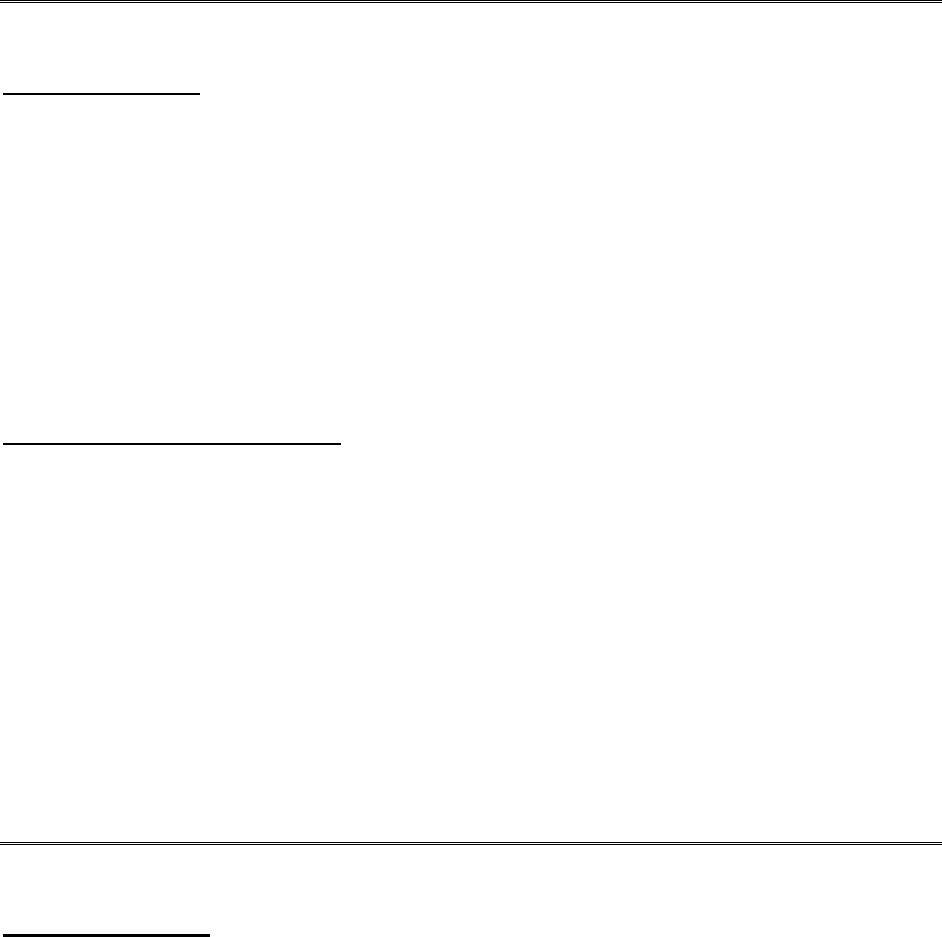
BASEALAINST M11101.1A of 15 Apr 2018
Chapter 7 – Earthquake Preparedness
Base Alameda Housing Manual
7-6
Stay away from damaged areas unless your assistance has been specifically requested by police,
fire, Coast Guard or relief agencies.
If evacuating the home, leave a posted message telling family members and others where you can be
found.
H. Tips for Preparing Children
Infants and Toddlers. For infants and toddlers, special emphasis should be placed on making their
environment as safe as possible.
Cribs should be placed away from windows and tall, unsecured bookcases and shelves that could
slide or topple.
A minimum of a 72-hour supply of extra water, formula, bottles, food, juices, clothing, disposable
diapers, an extra diaper bag, baby wipes and prescribed medications should be stored where it is
most likely to be accessible after an earthquake.
Store strollers, wagons, blankets and cribs with appropriate wheels to evacuate infants, if necessary.
Install latches on all cupboards (not just those young children can reach) so that nothing can fall
during a quake.
Preschool and School-age Children. Children need to be prepared for an earthquake as much as
adults are, if not more. By age three or so, children can understand what an earthquake is and how to
get ready for one. Take the time to explain what causes earthquakes in terms they'll understand. Include
children in family discussions and planning for earthquake safety. Conduct drills and review safety
procedures every six months.
Show children the safest places to be in each room when an earthquake hits. Also show them all
possible exits from each room.
Use sturdy tables to teach children to Duck, Cover & Hold.
Teach children what to do wherever they are during an earthquake (at school, in a tall building,
outdoors).
Make sure children's emergency cards at school are up-to-date. Although children should not turn off
any utility valves, it's important that they know what gas smells like. Advise children to tell an adult if
they smell gas after an earthquake.
I. Tips for the Physically Challenged
Before an Earthquake
Set up the home, apartment or workplace so that you can quickly get under a sturdy desk, table or
other safe place for protection. Identify doorways that do not have doors in which you can take cover.
Maintain a list of medications, allergies, special equipment, names and numbers of doctors,
pharmacists and family members with you at all times.

BASEALAINST M11101.1A of 15 Apr 2018
Chapter 7 – Earthquake Preparedness
Base Alameda Housing Manual
7-7
Keep extra medication with emergency supplies.
Keep extra emergency supplies at the bedside and by a wheelchair.
Have walking aids near at all times. Place extra walking aids in different rooms of the house.
Put a security light in each room. These lights plug into any outlet and light up automatically if there is
a loss of electricity. They continue operating automatically for four to six hours and they can be
turned off by hand in an emergency.
Have a whistle near to signal for help.
Find two people that can be trusted who will check on you after an earthquake. Tell them any special
needs. Show them how to operate any equipment used. Show them where the emergency supplies
are kept.
During and After an Earthquake
If in bed or out of a wheelchair, stay where you are and cover your head and neck.
If you are in a wheelchair, stay in it and go into a doorway that doesn't have a door. Cover your head
and neck with your hands.
Prepare to be self-sufficient for at least three days.
Turn on the portable radio for instructions and news reports. For your own safety, cooperate fully with
public safety officials and instructions.
Prepare for aftershocks. If evacuation from the home occurs, leave a posted message telling family
members and others where you can be found.
J. Tips for the Elderly
Before an Earthquake
Eliminate hazards. Make it as easy as possible to quickly get under a sturdy table or desk for
protection.
Anchor special equipment such as telephones and life support systems. Fasten tanks of gas, such
as oxygen, to the wall.
Keep a list of medications, allergies, special equipment, names and numbers of doctors, pharmacists
and family members. Make sure you have this list with you at all times.
Keep an extra pair of eyeglasses and medication with emergency supplies.
Keep walking aids near at all times. Have extra walking aids in different rooms of the house.
Put a security light in each room. These lights plug into any outlet and light up automatically if there
is a loss of electricity. They continue operating automatically for four to six hours and they can be
turned off by hand in an emergency.

BASEALAINST M11101.1A of 15 Apr 2018
Chapter 7 – Earthquake Preparedness
Base Alameda Housing Manual
7-8
Make sure you have a whistle to signal for help.
Keep extra batteries for hearing aids with your emergency supplies. Remember to replace them
annually.
Keep extra emergency supplies at the bedside.
Find two people you trust who will check on you after an earthquake. Tell them your special needs.
Show them how to operate any equipment you use. Show them where your emergency supplies are
kept.
During and After an Earthquake
If in bed or sitting down, do not get up.
If standing, duck and cover or sit down. You could be thrown to the floor if you are standing.
Prepare to be self-sufficient for at least three days.
Turn on a portable radio for instructions and news reports. For your own safety, cooperate fully with
public safety officials and instructions.
Prepare for aftershocks.
If you evacuate, leave a posted message at your home telling family members and others where you
can be found.
K. Tips for Pet Owners
When preparing the home for an earthquake, don't forget to include pets on the list. They will depend on
you even more after an earthquake to take care of them and their needs.
Before an Earthquake
Store enough food and water to last for 72 hours, preferably for two weeks. Prepare a shelter or
evacuation kit for your pet, including an unbreakable dish, veterinarian records, a restraint (leash or
pet carrier) and medication with instructions.
Keep any pet ID tags and micro-chips up-to-date.
Make sure nothing can fall on your pet.
Arrange for a neighbor to take care of your pet if you are not able to get home after an earthquake.
The behavior of pets may change dramatically after an earthquake. Normally quiet and friendly cats
and dogs may become aggressive or defensive. Watch animals closely.
Pets may not be allowed into shelters for health and space reasons. Prepare an emergency pen for
pets in the home that includes a 3-day supply of dry food and a large container of water.
During and After an Earthquake

BASEALAINST M11101.1A of 15 Apr 2018
Chapter 7 – Earthquake Preparedness
Base Alameda Housing Manual
7-9
Do not try to hold onto a pet during the shaking. Animals will instinctively protect themselves and
hide where they're safe. If you get in their way, even the nicest pets can turn on their owners.
Be patient with pets after a quake. They get stressed just like people and need time to readjust.
They may disappear for some time, but they generally show up again when things have calmed
down.
If pets are outdoor pets, keep them indoors until the aftershocks have subsided and they have
calmed down.
If evacuation of the home occurs, leave any pets secured in a safe place. Pets may not be allowed at
shelters. Be sure to leave plenty of fresh water and food. If possible, visit your pet daily until you can
return home.

BASEALAINST M11101.1A of 15 Apr 2018
Chapter 7 – Earthquake Preparedness
Base Alameda Housing Manual
7-10
BLANK

BASEALAINST M11101.1A of 15 Apr 2018
Appendices
Base Alameda Housing Manual
Table of Contents
Appendix
Subject
Page
A
Alameda/Novato/YBI
A-1
B
Point Vicente (includes Lease units)
B-1
C
Eureka (includes Crescent City)
C-1
D
Monterey
D-1
E
Noyo River
E-1
F
Point Loma
F-1
G
Rio Vista
G-1
H
Santa Barbara (includes Carpinteria)
H-1

BASEALAINST M11101.1A of 15 Apr 2018
Appendices
Base Alameda Housing Manual
BLANK
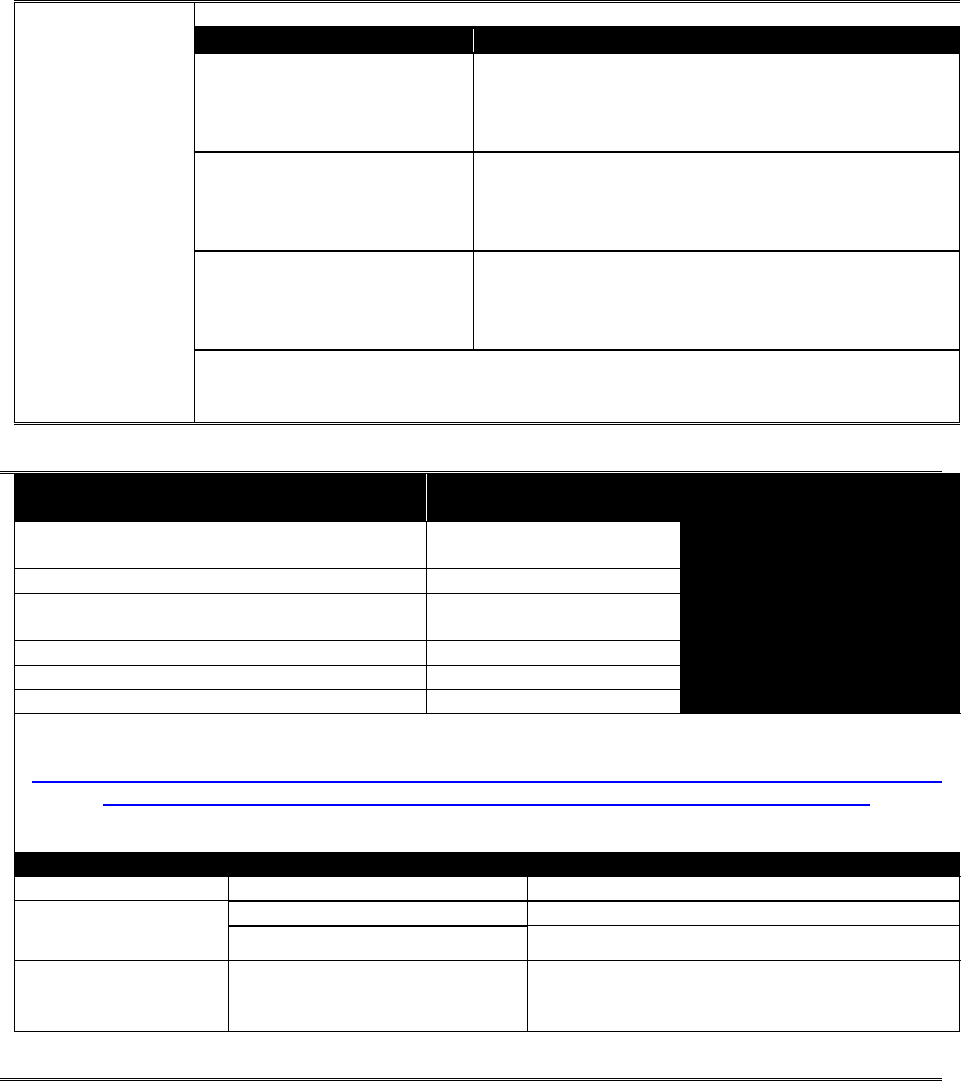
BASEALAINST M11101.1A of 15 Apr 2018
Appendix A – Alameda/Novato/YBI
Base Alameda Housing Manual
A-1
Hours of
Operation
Who
Hours of Operation
Alameda/YBI Housing Office
0800-1600 Monday-Tuesday and Thursday -
Friday
0730-1130 Wednesday
Closed weekends/holidays
Novato Housing Office
0800-1600 Monday-Tuesday and Thursday -
Friday
0730-1130 Wednesday
Closed weekends/holidays
Novato Self Help Locker
0800-1530 Monday-Tuesday and Thursday -
Friday
0800-1130 Wednesday
Closed weekends/holidays
Not all services are available during lunch hours. Reduced staffing may
occur between 1130-1230, Monday through Friday.
Position
Phone Number
Alameda/YBI Local Housing Officer
(510) 769-0831
Alameda/YBI Local Housing Representative
(510) 769-0831
Alameda Contracting Officer
Representative (COR)
(510) 769-0831
Novato Local Housing Officer
(415) 382-4251
Novato Local Housing Representative
(415) 382-8584
Novato COR
(415) 382-4240
Housing Web Site
http://www.dcms.uscg.mil/Our-Organization/Director-of-Operational-Logistics-DOL/Bases/Base-
Alameda/Alameda-Personnel-Support-Department/Alameda-Area-Housing-Office
Maintenance and Emergencies
Type of Problem
Location
Number to call
Maintenance
Problems
Alameda/YBI
(510) 769-9191
Novato
(415) 883-3496
Emergencies
(Fire/Police/Medical)
Alameda/Novato/YBI
911

BASEALAINST M11101.1A of 15 Apr 2018
Appendix A – Alameda/Novato/YBI
Base Alameda Housing Manual
A-2
Family Housing Lock Outs
If anyone locks themselves out of their quarters during normal working hours (Monday through Friday)
contact the Local Housing Office. A locksmith (at your own expense) will need to be contacted if you are
locked out on a weekend, holiday, and/or after hours.
Note: The Local Housing Office will not admit minors under 16 into a house even with a valid ID until one
of the parents is contacted for approval. The Housing Office has no idea if parents want these children in
the house alone, if they skipped school, left the babysitter, etc. The Housing Office will not accept this
responsibility. In addition, the Local Housing Office will not let in anyone not listed as a valid family
member on the member’s application. If anyone has a guest who gets locked out, that guest would need
to contact the member or spouse, they will not be let in by the Housing Office. It is the resident’s
responsibility to plan ahead, make plans with neighbors or friends to leave a key, etc. Make sure the
Housing Office has work, home and cell phone numbers. This policy is in place to protect the family and
the Housing Office.
UH Keys and Lock Outs
1. Room/Unit Keys. Upon check-in, the Housing Office will issue each resident one key to his/her
assigned room and to the UH unit. Residents are responsible for these keys and must return them
upon check-out. Residents are not authorized to give their room or UH unit key to anyone,
aside from duty personnel acting in an official capacity (i.e. Housing Representatives, OOD,
etc.). Any member violating this policy is subject to loss of housing privilege and financial liability for
changing of the locks.
2. Mail Keys. One mailbox per UH unit is located in mailbox clusters near the UH units. Only one key
will be issued per UH unit. Residents are responsible for the custody of this key, which shall be kept
available for all residents to use. Residents are responsible for any and all address changes.
3. Key Trouble. No person shall cut, force, or otherwise tamper with a government locking device, or
any locking device which is not his or her own personal property. Under no circumstances shall any
individual have keys to government locking devices duplicated. Problems with keys or locks shall be
promptly reported to the Housing Office. Unauthorized entry into another resident’s room is
considered breaking and entering and violators will be subjected to criminal charges/UCMJ/
immediate loss of housing privilege.
4. Lock Outs. If anyone locks themselves out of their quarters during normal working hours (Monday
through Friday) contact the Local Housing Office. For lockouts after hours, afloat member(s) must go
back to their boat for berthing until the next business day. For ashore members, they must report to
the Coast Guard Island barracks, if space is available, until the next business day. If space is not
available, the member(s) will need to find another arrangement, such as a hotel, until the next
business day. Any lodging costs will be the member’s to bear. If anyone has a guest who gets
locked out, that guest would need to contact the member, they will not be let in by the Housing Office.
5. Lock Out Log. A ‘lock out log’ is maintained by the Housing Office, which records the date of the lock
out. After two lock outs a written warning will be issued to the resident. Following the third lock out
the resident will be held financially liable and an Administrative Remarks CG-3307 entry will be
initiated.
6. Lost Keys. Any loss of a room or UH key will result in the Housing Office changing the lock core.
This will require the issuance of a new room key or possibly new UH keys to all residents of the UH.
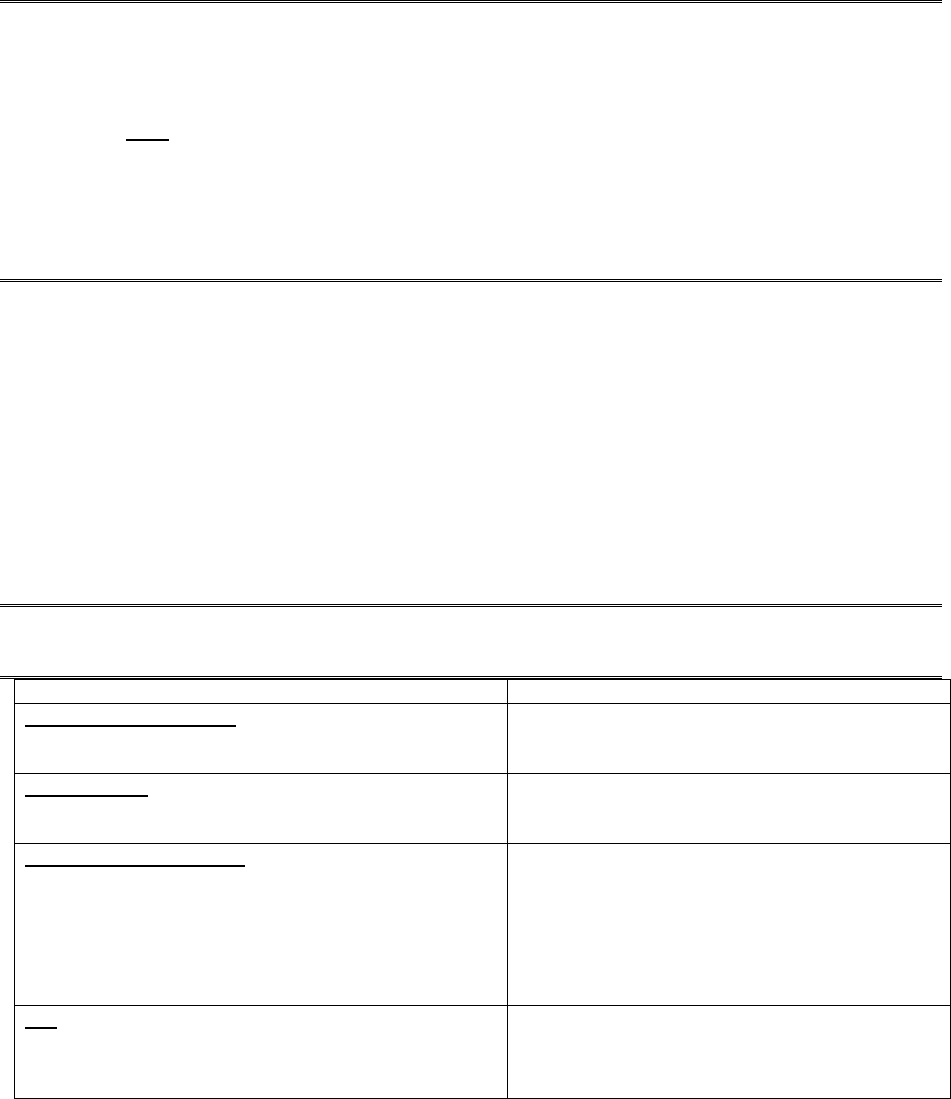
BASEALAINST M11101.1A of 15 Apr 2018
Appendix A – Alameda/Novato/YBI
Base Alameda Housing Manual
A-3
Due to the cost and staff hours involved in this process, a monetary charge will be required on each
instance or prior to check out to replace lock cores and keys.
UH Loss of Housing Privilege
Any violation of this instruction may result in the loss of privileges to reside in UH. In the event of such an
action, members that have their UH privileges revoked by their Command, or by Commanding Officer, Base
Alameda, will NOT be entitled to BAH. E-4 members who had submitted a request for BAH to live on the
economy will be removed from the list and the request will be denied. Ashore members who lose their
privilege will be assigned to the Base Barracks and afloat members will be assigned back to their Cutter
(unless underway, in which case the member will be assigned to the Barracks until the Cutter’s return).
Members will report to the Command-Master-at-Arms (CMAA) at the Barracks on CG Island in Alameda
and be assigned to a Probation Room.
UH Length of Probation for Loss of Privilege
The Local Housing Officer (LHO), Local Housing Manager (LHM) and the CMAA, with command input,
will determine the amount of probation time to be served. Length of probation time will be a minimum of 3
months with a maximum of 1 year, depending on the severity of the infraction. Severe cases will result in
a permanent loss of housing privilege and BAH will not be granted. To have their housing privilege
reinstated, each probation member must forward a written request to the LHO via their chain of
command. The LHO will review the facts of the case, along with a report from the member’s command
and/or CMAA, and make a determination. If disapproved, the member will be notified immediately and
given the reasons for the denial. If approved, the member will be assigned a UH room and will be
required to sign a CG-3307 stating they understand the rules and regulations of the UH and will abide
accordingly.
Grounds and Gardens
Resident Shall:
Government Shall:
Alameda Marina Village: Residents have no grounds
care responsibility. The site is considered a common
area.
Maintain common area grounds.
Novato Knolls: Residents in first floor units must
mow the grass in the back yard, if fenced. Ensure
that grass height does not exceed three inches.
Maintain common area grounds.
Novato Spanish Housing: Mow grass to a minimum
of 50 feet from the quarters or to the curb as
instructed (this includes front and back yards).
Ensure that grass height does not exceed three
inches. Edge half inch from all sidewalks and
driveways with no grass or weeds growing up
through any cracks or crevices.
Maintain all common area lawns.
Provide safe and operable lawn maintenance
equipment in the Self-Help Locker.
YBI: Qtrs. A and C have no grounds care
responsibility. As Representational/Flag quarters the
area is considered a common area. Quarters B
maintains an area around the unit.
Maintain common area grounds.
Provide safe and operable lawn maintenance
equipment for Qtrs. B as requested.
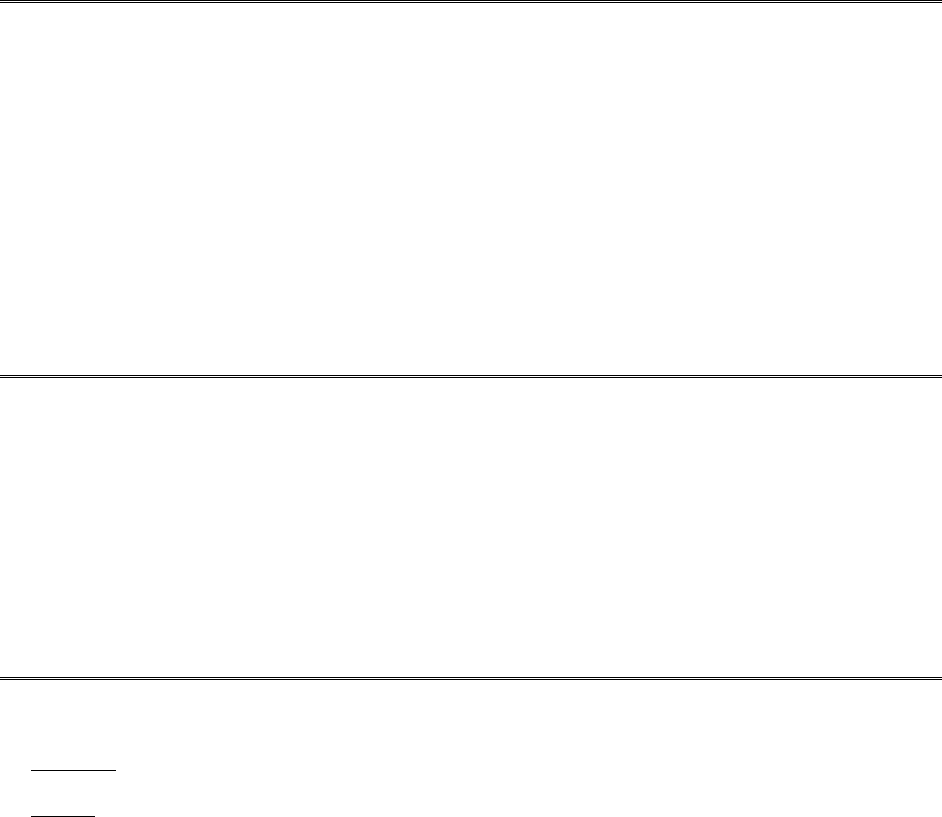
BASEALAINST M11101.1A of 15 Apr 2018
Appendix A – Alameda/Novato/YBI
Base Alameda Housing Manual
A-4
1. In ground gardens are not allowed in Alameda or Novato Knolls housing areas. Items planted in
pots/planter boxes of reasonable size and placed on the patio or balcony is allowed. No pots/planter
boxes are to be placed on the balcony railing or hung from any portion of the structure.
2. A sample of the Self-Help equipment that may be available at Novato includes:
Lawn Mowers.
Edgers.
Weed Eaters.
Shovels.
Rakes.
Grass Seed.
Fertilizer.
Inspection and Repair Service (to include heater filter replacement)
General: The maintenance contractor, on a semi-annual or annual basis will perform an Inspection and
Repair (I/R) service to each home. This service includes various systems such as the furnace, security
lights, garage doors, water heaters, smoke and carbon monoxide detectors, fireplaces and several other
components. The furnace service includes replacing heater filters. To perform this service the contractor
will contact the member/spouse and make an appointment in advance.
Resident Shall:
Replace heater filter if desired more often than the contractor performs.
Allow contractor access to the unit for I/R service.
Government Shall:
Perform I/R service, to include replacing heater filter.
Trash Collection
Alameda – Pickup is on Friday. Three cans are provided, one for trash, one for recycling and one for
green waste (green waste is optional). The Housing Office will provide more details on the proper use of
each can upon checking in to the unit.
Novato - Pickup is on Tuesday. Two cans are provided, gray and blue. The Housing Office will provide
more details on the proper use of each can upon checking in to the unit.
YBI - Pickup is on Tuesday. Two cans are provided, one for trash and one for recycling. The Housing
Office will provide more details on the proper use of each can upon checking in to the unit.
Telecommute Center
1. Locations. A Telecommute Center is located at the Novato Housing site.
2. Access. The entry codes to the center are provided by the Housing Office. The center is open to
Coast Guard active duty members, civilians and contractors who possess a valid Coast Guard CAC card.

BASEALAINST M11101.1A of 15 Apr 2018
Appendix A – Alameda/Novato/YBI
Base Alameda Housing Manual
A-5
3. Supplies. Telecommute Center users must provide their own supplies, i.e. copy paper, pens, staplers,
etc.
4. Janitorial. Telecommute Center users are required to maintain the cleanliness of the spaces, including
the kitchen and bathroom.
5. Prohibited. Smoking and pets are not allowed in the Telecommute Centers.
Recreational Vehicle Storage Lots
Secured, low cost storage space is available at the Novato housing site through the Base Alameda MWR
Office. The Coast Guard is not liable for damage to anything stored in this area. Contact the Local
Housing Office or MWR for information.
Air Conditioning Units
Previous policy required residents to provide a documented medical need for greater climate control to
the Local Housing Officer from their physician prior to approval of an a/c unit. Due to recent warming
trends and community interest, the Local Housing Authority has expanded this policy to eliminate the
documented medical need and will review/approve requests for residents to personally procure a/c units
under this policy revision. Due to the age of the housing units, the construction, limited electrical
distribution, and the Local Housing Authority’s desire to maintain the community aesthetics, the following
guidelines shall be adhered to when procuring, installing and operating portable a/c units. Where
possible, residents should utilize residential evaporative air coolers instead of portable a/c units to cool
their unit. Evaporative cooling is a simple cost effective method for cooling indoor spaces and is ideal for
the local climate. Window-type a/c units are prohibited due to the inherent concerns associated with
improper installation, damage to units from installation, liability, and aesthetic concerns. Residents are
permitted to use floor type a/c units with the discharge vent placed in a window opening.
Equipment Parameters: Residents shall utilize a/c units only and not dual-purpose units (i.e. cooling
and heating). The following guidelines will be adhered to when considering the purchase and use of an
a/c unit or evaporative cooler in their housing unit:
No more than two (2) units allowed
No window-type units
Maximum 12,000 BTU/hr
110-120V AC
Maximum 100 Watts
Additional Discussion: To reduce energy consumption and minimize the operation of a/c units, they
shall not be in operation from 1 November through 30 April, or when the ambient outside air temperature
is less than 72 degrees. Units should remain unplugged when not in use to reduce “phantom loading” on
the electrical system. Residents must be cognizant of electrical circuits to prevent overloading circuits
with multiple a/c units. Overloads will cause circuit breakers to trip and decrease the effectiveness of
breaker protection and increase the risk of fire hazards. Residents experiencing tripping breakers should
notify the Housing Maintenance Contractor. Should it be discovered during a service call or an inspection
by the Maintenance Contractor or Housing Office that the parameters above have not been adhered to,
the resident will be directed to discontinue their use of the a/c unit(s). Also, residents who fail to comply
with this policy and/or any warnings or notices may be subject to administrative action(s). The Housing
Maintenance Contractor and the Housing Office shall not be liable for the installation, operation, or
BASEALAINST M11101.1A of 15 Apr 2018
Appendix A – Alameda/Novato/YBI
Base Alameda Housing Manual
A-6
maintenance of resident-purchased equipment. Any damages to Government property shall be the
responsibility of the member to reimburse the Housing Program for repairs.
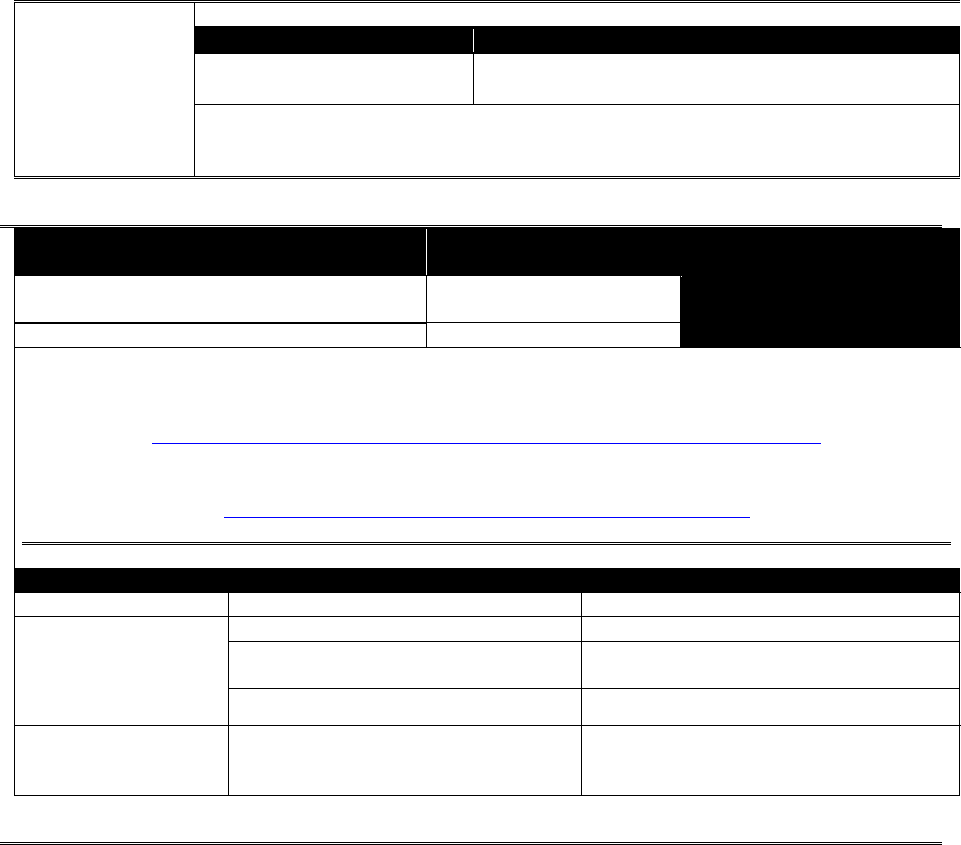
BASEALAINST M11101.1A of 15 Apr 2018
Appendix B – Point Vicente (includes Lease units)
Base Alameda Housing Manual
B-1
Hours of
Operation
Who
Hours of Operation
Los Angeles/Long Beach
Housing Office
0700-1530 Monday-Friday
Closed weekends/holidays
Not all services are available during lunch hours. Reduced staffing may
occur between 1130-1230, Monday through Friday.
Position
Phone Number
LA/LB Local Housing Officer
(310) 521-6143
LA/LB Local Housing Representative
(310) 521-6140
Base LA/LB Portal Housing Website
https://cg.portal.uscg.mil/units/dol/dol-3/BLALB/P/PH/SitePages/Home.aspx
Base LA/LB Internet Housing Website
http://www.uscg.mil/baselalb/personnel/HousingDefault.asp
Maintenance and Emergencies
Type of Problem
Location
Number to call
Maintenance
Problems
Point Vicente – Business Hours
(310) 521-6143
Point Vicente – Emergencies After
Hours
(310) 345-5941 (OOD)
Fort MacArthur
(310) 241-6194
Emergencies
(Fire/Police/Medical)
Point Vicente/Fort MacArthur
911
Family Housing Lock Outs
If anyone locks themselves out of their quarters during normal working hours (Monday through Friday)
contact the Local Housing Office. A locksmith (at your own expense) will need to be contacted if you are
locked out on a weekend, holiday, and/or after hours.
Note: The Local Housing Office will not admit minors under 16 into a house even with a valid ID until one
of the parents is contacted for approval. The Housing Office has no idea if parents want these children in
the house alone, if they skipped school, left the babysitter, etc. The Housing Office will not accept this
responsibility. In addition, the Local Housing Office will not let in anyone not listed as a valid family
member on the member’s application. If anyone has a guest who gets locked out, that guest would need
to contact the member or spouse, they will not be let in by the Housing Office. It is the resident’s
responsibility to plan ahead, make plans with neighbors or friends to leave a key, etc. Make sure the
Housing Office has work, home and cell phone numbers. This policy is in place to protect the family and
the Housing Office.
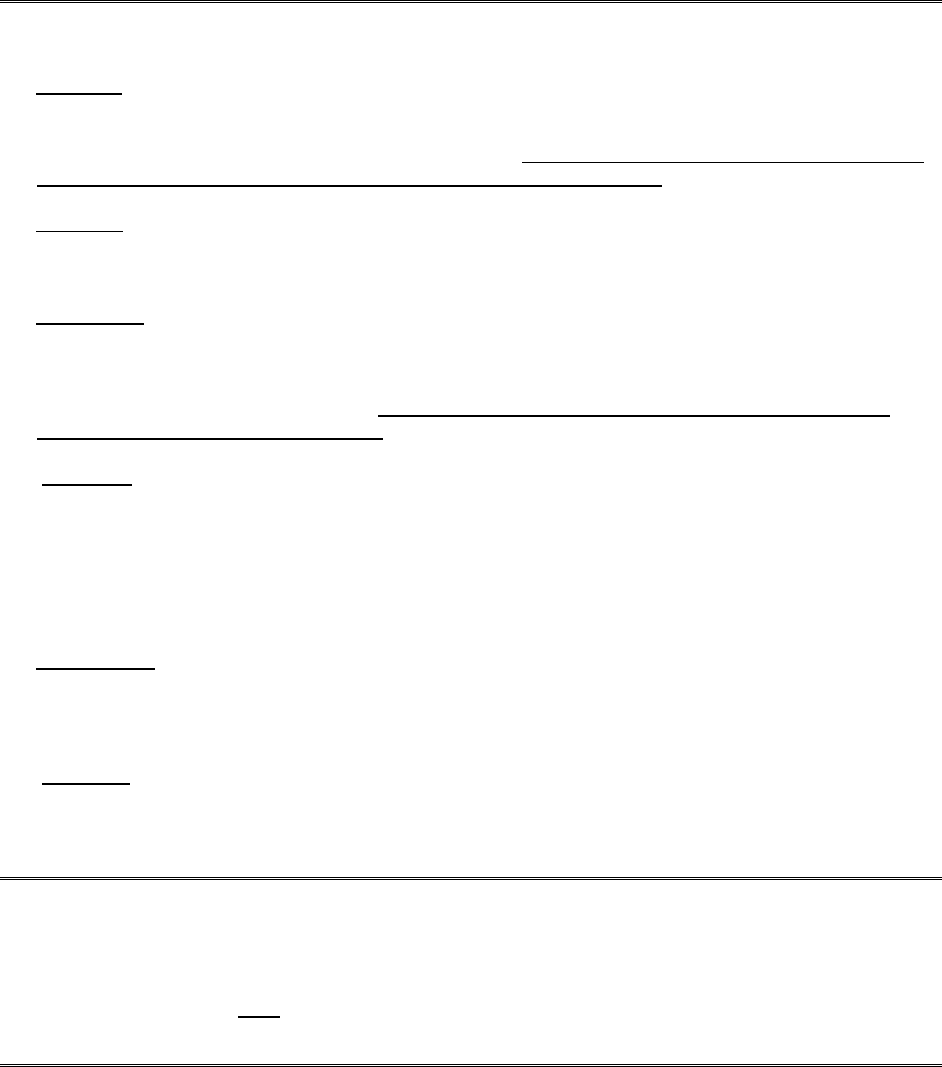
BASEALAINST M11101.1A of 15 Apr 2018
Appendix B – Point Vicente (includes Lease units)
Base Alameda Housing Manual
B-2
UH Keys and Lock Outs
1. Unit Keys. Upon check-in, the Housing Office will issue each resident one key to his/her assigned UH
unit. Residents are responsible for these keys and must return them upon check-out. Residents are
not authorized to give their UH unit key to anyone, aside from duty personnel acting in an
official capacity (i.e. Housing Representatives, etc.). Any member violating this policy is subject to
loss of housing privilege and financial liability for changing of the locks.
2. Mail Keys. One mailbox per UH unit is located in mailbox clusters near the UH units. Each resident
of the UH unit will receive a mailbox key and are responsible for the custody of this key. Residents
are responsible for any and all address changes.
3. Key Trouble. No person shall cut, force, or otherwise tamper with a government locking device, or
any locking device which is not his or her own personal property. Under no circumstances shall any
individual have keys to government locking devices duplicated. Problems with keys or locks shall be
promptly reported to the Local Housing Office. Unauthorized entry into another resident’s room is
considered breaking and entering and violators will be subjected to criminal charges/UCMJ/
immediate loss of housing privilege.
4. Lock Outs. If anyone locks themselves out of their quarters during normal working hours (Monday
through Friday) contact the Local Housing Office or the Manager’s Office of your housing facility if in a
leased unit. If you are in a leased unit and locked out on a weekend, holiday, and/or after hours;
please follow the guidelines set forth by the apartment complex you live in. If you are forced to call a
locksmith to gain entrance into your owned or leased unit; the cost will be at your expense. If anyone
has a guest who gets locked out, that guest would need to contact the member, they will not be let in
by the Housing Office.
5. Lock Out Log. A ‘lock out log’ is maintained by the Local Housing Office, which records the date of
the lock out. After two lock outs a written warning will be issued to the resident. Following the third
lock out the resident will be held financially liable and an Administrative Remarks CG-3307 entry will
be initiated.
6. Lost Keys. Any loss of a UH key will result in the Local Housing Office or Apartment Complex
changing the door locks. This will require the issuance of new keys to all residents of the UH. Due to
the cost and staff hours involved in this process, a monetary charge will be required on each
instance.
UH Loss of Housing Privilege
Any violation of this instruction may result in the loss of privileges to reside in UH. In the event of such an
action, members that have their UH privileges revoked by their Command, by Commanding Officer, Base
LA/LB, or by the AHA, will NOT be entitled to BAH. Members will be assigned back to their Cutter, unless
underway, in which case the member will vacate UH upon the Cutter’s return.
UH Length of Probation for Loss of Privilege
The LHO, with command input, will determine the amount of probation time to be served. Length of
probation time will be a minimum of 3 months with a maximum of 1 year, depending on the severity of the
infraction.
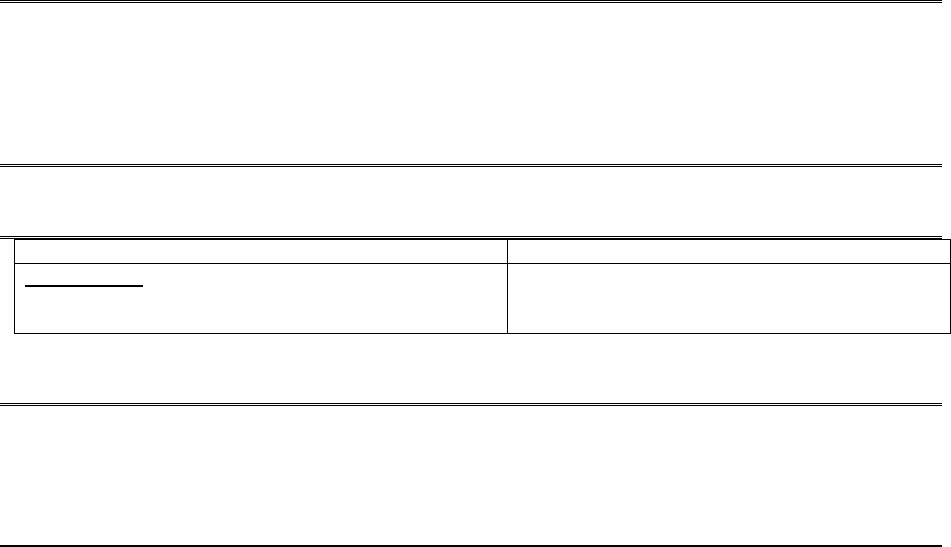
BASEALAINST M11101.1A of 15 Apr 2018
Appendix B – Point Vicente (includes Lease units)
Base Alameda Housing Manual
B-3
Severe cases will result in a permanent loss of housing privilege. To have their housing privilege
reinstated, each probation member must forward a written request to the LHO via their chain of
command. The LHO will review the facts of the case, along with a report from the member’s command
and make a determination. If disapproved, the member will be notified immediately and given the
reasons for the denial. If approved, the member will be assigned a UH room and will be required to sign
a CG-3307 stating they understand the rules and regulations of UH and will abide accordingly.
UH Smoking Policy at Fort MacArthur, Redondo Beach and Costa Mesa Leases
The designated smoking area is the balcony of the housing unit if it is an upstairs unit. If it is a first floor
unit it is the patio area. However, care needs to be taken to not infringe on the rights of roommates or
neighbors on either side as far as smoke entering their unit through open balcony doors or windows.
Grounds and Gardens
Resident Shall:
Government Shall:
Point Vicente: Residents have no grounds care
responsibility. The site is considered a common
area.
Maintain common area grounds.
Any in ground gardens plantings are not allowed without prior approval of the Local Housing Office.
Trash Collection
Garbage is to be taken to the provided dumpster(s) on site for collection.

BASEALAINST M11101.1A of 15 Apr 2018
Appendix B – Point Vicente (includes Lease units)
Base Alameda Housing Manual
B-4
BLANK
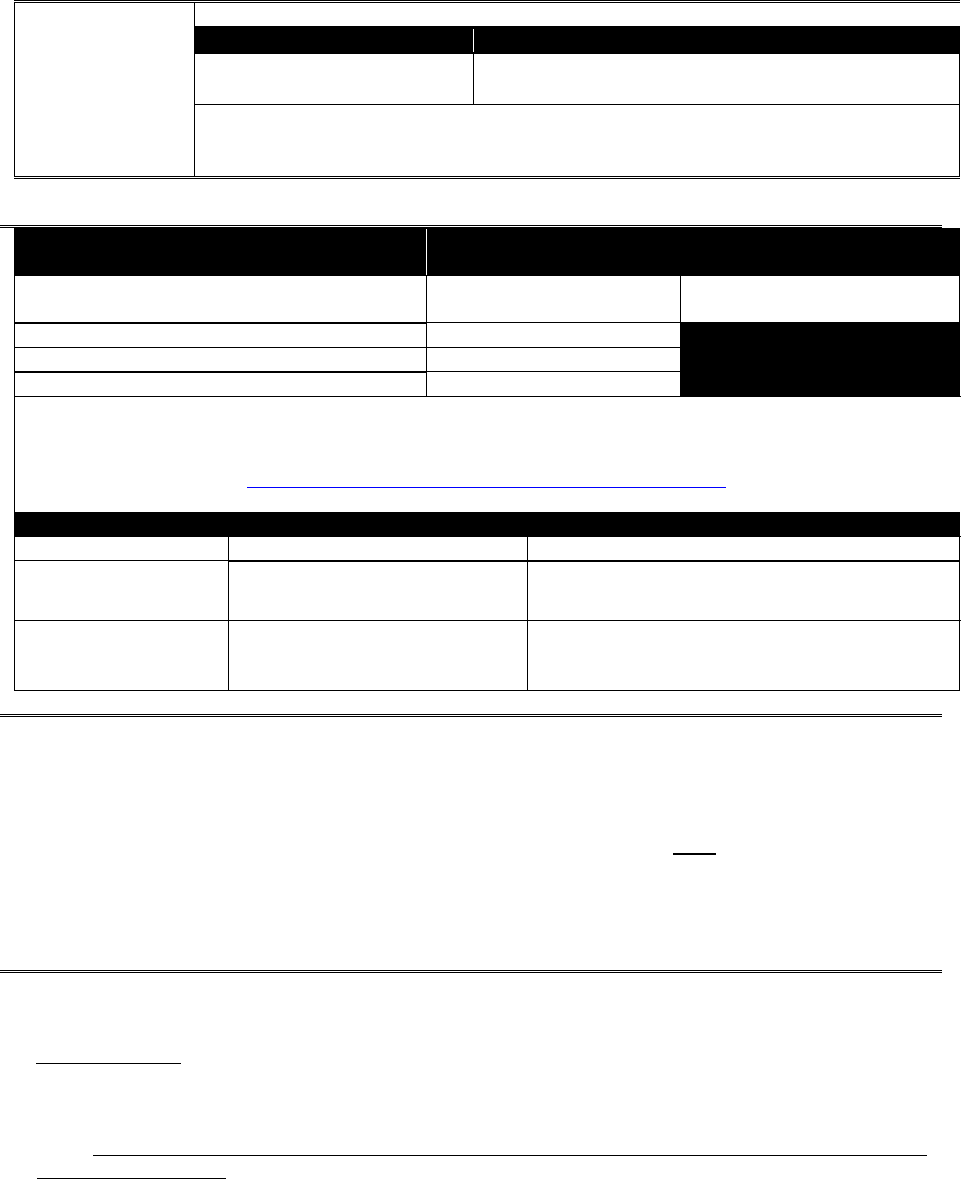
BASEALAINST M11101.1A of 15 Apr 2018
Appendix C – Eureka (Includes Crescent City)
Base Alameda Housing Manual
C-1
Hours of
Operation
Who
Hours of Operation
Eureka Housing Office
0800-1600 Monday - Friday
Closed weekends/holidays
Not all services are available during lunch hours. Reduced staffing may
occur between 1130-1230, Monday through Friday.
Position
Phone Number
Ext.
Eureka Local Housing Officer
(707) 839-6160
6160
Eureka Housing Office
(707) 442-1473
Eureka Housing Duty Response
(707) 599-9411
Eureka Housing Office Fax
(707) 442-0300
Housing Web Site
http://www.uscg.mil/d11/grpHumboldtBay/housing.asp
After Hours
Type of Problem
Location
Who to call
Maintenance
Emergencies
Eureka
(707) 599-9411
Emergencies
(Fire/Police/Medical)
Eureka
911
UH Loss of Housing Privilege
Any violation of this instruction may result in the loss of privileges to reside in Unaccompanied Personnel
Government Housing (UPH). In the event of such an action, members that have their UPH privileges
revoked by their Command, or by Commanding Officer, Base Alameda, will NOT be entitled to BAH. E-4
members who had submitted a request for BAH to live on the economy will be removed from the list and
the request will be denied. Ashore members who lose their privilege will be assigned to the Base
Barracks and afloat members will be assigned back to their Cutter (unless underway, in which case the
member will be assigned to the Barracks until the Cutter’s return).
UH Keys and Lock Outs
1. Room/Unit Keys. Upon check-in, the Housing Office will issue each resident one key to his/her
assigned room and to the UPH unit. Residents are responsible for these keys and must return them
upon check-out. Residents are not authorized to give their room or UPH unit key to anyone,
aside from duty personnel acting in an official capacity (i.e. Housing Representatives, OOD,
etc.). Any member violating this policy is subject to loss of housing privilege and financial liability for
changing of the locks. Residents are not allowed to change any government lock.
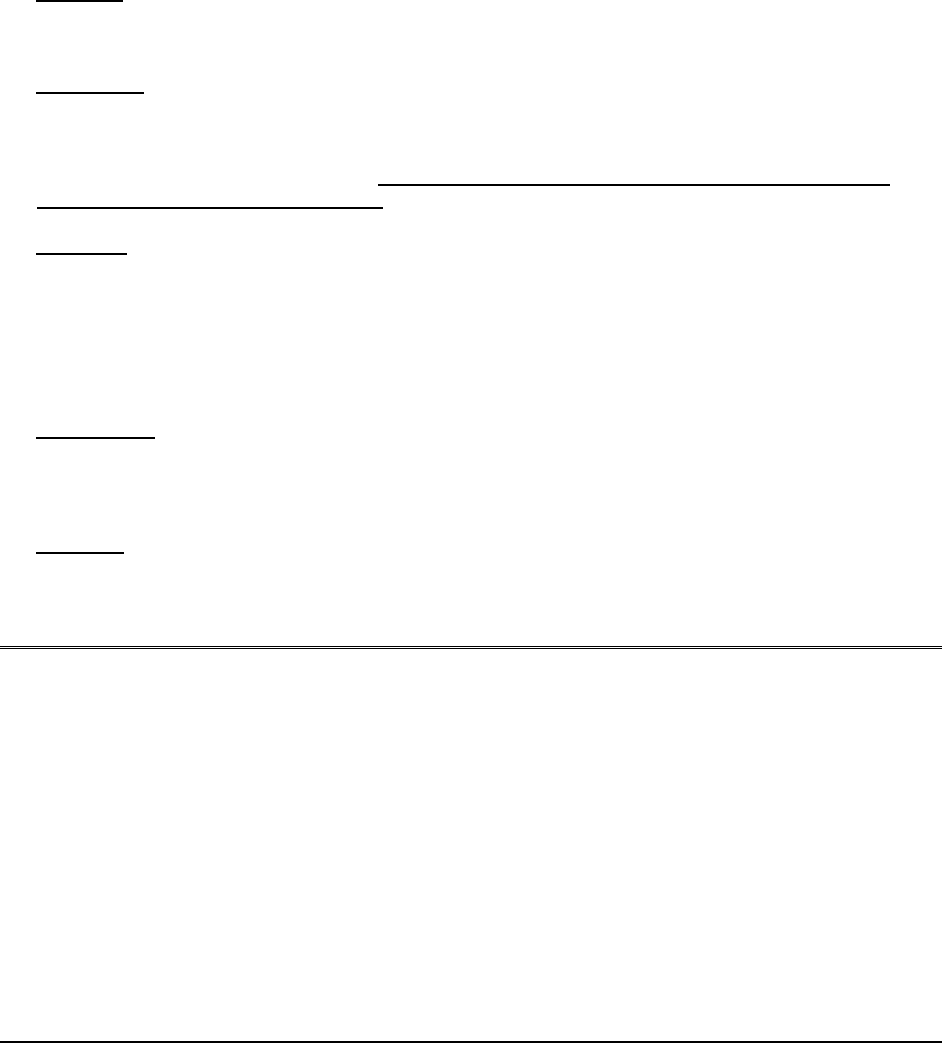
BASEALAINST M11101.1A of 15 Apr 2018
Appendix C – Eureka (Includes Crescent City)
Base Alameda Housing Manual
C-2
2. Mail Keys. One mailbox per UPH unit is located in mailbox clusters near the UPH units. Only one
key will be issued per UPH unit. Residents are responsible for the custody of this key, which shall be
kept available for all residents to use. Residents are responsible for any and all address changes.
3. Key Trouble. No person shall cut, force, or otherwise tamper with a government locking device, or
any locking device which is not his or her own personal property. Under no circumstances shall any
individual have keys to government locking devices duplicated. Problems with keys or locks shall be
promptly reported to the Housing Office. Unauthorized entry into another resident’s room is
considered breaking and entering and violators will be subjected to criminal charges/UCMJ/
immediate loss of housing privilege.
4. Lock Outs. If anyone locks themselves out of their quarters during normal working hours (Monday
through Friday) contact the Local Housing Office or the Manager’s Office of your housing facility if in a
leased unit. If you are in a leased unit and locked out on a weekend, holiday, and/or after hours;
please follow the guidelines set forth by the apartment complex you live in. If you are forced to call a
locksmith to gain entrance into your owned or leased unit; the cost will be at your expense. If anyone
has a guest who gets locked out, that guest would need to contact the member, they will not be let in
by the Housing Office.
5. Lock Out Log. A ‘lock out log’ is maintained by the Housing Offices, which records the date of the
lock out. After two lock outs a written warning will be issued to the resident. Following the third lock
out the resident will be held financially liable and an Administrative Remarks CG-3307 entry will be
initiated.
6. Lost Keys. Any loss of a room or UPH key will result in the Housing Office changing the lock core.
This will require the issuance of a new room key or possibly new UPH keys to all residents of the
UPH. Due to the cost and staff hours involved in this process, a monetary charge will be required on
each instance or prior to check out to replace lock cores and keys.
Family Housing Lock Outs
If anyone locks themselves out of their quarters during normal working hours (Monday through Friday)
contact the Local Housing Office. You must contact a locksmith (at your own expense) if you are locked
out on a weekend, holiday, and/or after hours.
Note: The Local Housing Office will not admit minors under 16 into a house even with a valid ID until one
of the parents is contacted for approval. The Housing Office has no idea if parents want these children in
the house alone, if they skipped school, left the babysitter, etc. The Housing Office will not accept this
responsibility. In addition, the Local Housing Office will not let in anyone not listed as a valid family
member on the member’s application. If anyone has a guest who gets locked out, that guest would need
to contact the member or spouse, they will not be let in by the Housing Office. It is the resident’s
responsibility to plan ahead, make plans with neighbors or friends to leave a key, etc. Make sure the
Housing Office has work, home and cell phone numbers. This policy is in place to protect the family and
the Housing Office.
Long Term / Recreational Vehicle Storage Lot
Secured, no cost storage space is available at the Eureka Housing site through the Housing Office. The
Coast Guard is not liable for damage to anything stored in this area. Long Term / recreational vehicle
storage spaces are available for assigned members only. Contact the Local Housing Office for additional
information.
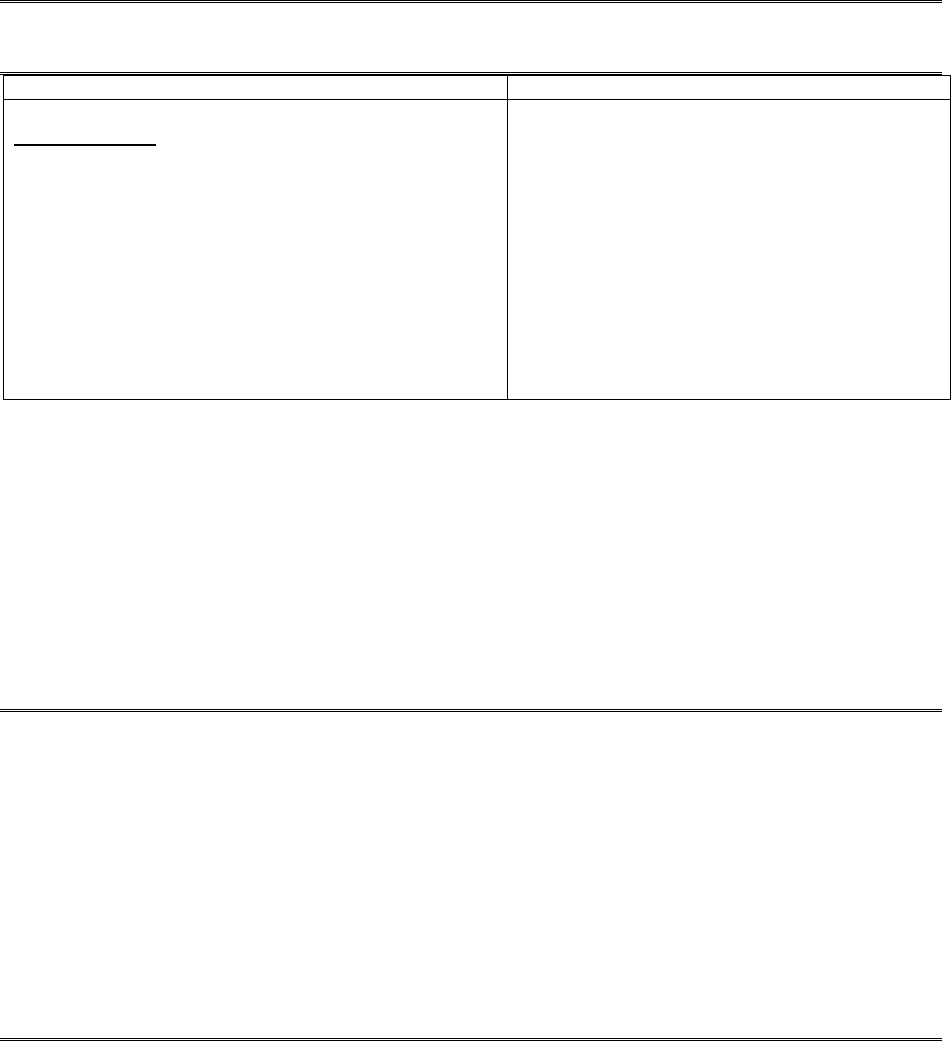
BASEALAINST M11101.1A of 15 Apr 2018
Appendix C – Eureka (Includes Crescent City)
Base Alameda Housing Manual
C-3
Yard Landscape and Grounds Maintenance
Resident Shall:
Government Shall:
Eureka Housing: Mow grass adjacent to your
assigned quarters or to the curb as instructed (this
includes front and back yards).
Residents are required to trim along outside perimeter
of fences and quarters.
Ensure that grass height does not exceed three
inches. Edge half inch from all sidewalks and
driveways with no grass or weeds growing up through
any cracks or crevices.
Maintain all common area lawns.
Provide safe and operable lawn mowers and
trimmers in the Self-Help Locker at the Eureka
Housing Office.
Contact the Eureka Housing Office during
normal work hours to check in/out lawn
equipment.
Self-Help equipment that is available for Eureka Residents:
Lawn Mowers
Edgers
Weed Eaters
Shovels
Rakes
Grass Seed
Fertilizer
Top soil, bark-mulch and other beautification materials may also be available at specified times.
Furnace Filter Replacement
General: The Housing Representative replaces furnace filters annually during the required annual / ERA
Inspection. To do this the Housing staff will contact the member and make an appointment in advance.
Resident Shall:
Replace additional furnace filters if desired.
Government Shall:
Replace furnace filter every year. This is normally done in conjunction with Annual/ERA
inspections.
Provide furnace filters.
Trash Collection
Pickup is on Wednesday. Two cans are provided, one for trash, one for recycling. The Housing Office
will provide more details on the proper use of each can upon checking in to the unit.

BASEALAINST M11101.1A of 15 Apr 2018
Appendix C – Eureka (Includes Crescent City)
Base Alameda Housing Manual
C-4
BLANK
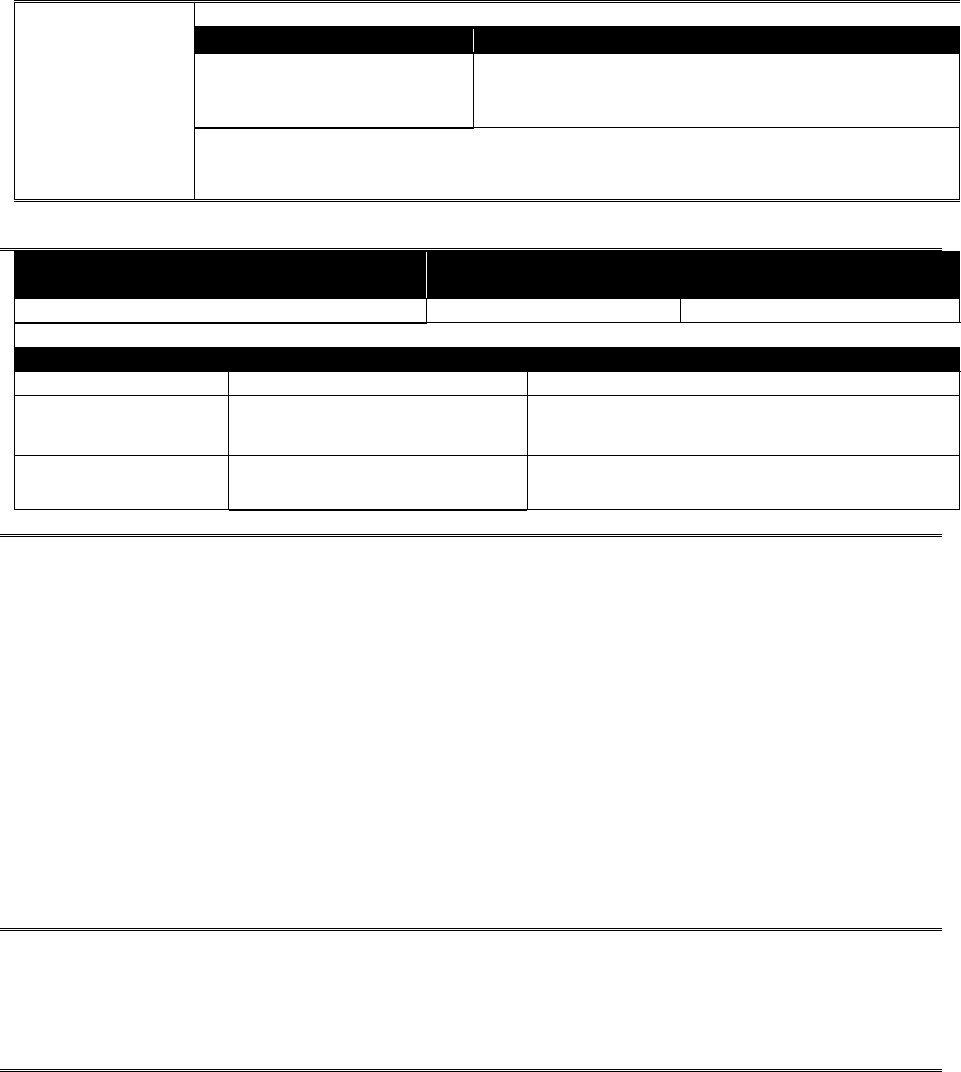
BASEALAINST M11101.1A of 15 Apr 2018
Appendix D – Monterey
Base Alameda Housing Manual
D-1
Hours of
Operation
Who
Hours of Operation
Monterey Housing Office
0700-1500 Monday – Friday
Closed weekends/holidays
Not all services are available during lunch hours. Reduced staffing may
occur between 1130-1230, Monday through Friday.
Position
Phone Number
Ext.
Monterey Local Housing Officer
(831) 647-7300
364
After Hours
Type of Problem
Location
Who to call
Maintenance
Emergencies
Monterey
(831) 647-7300
Emergencies
(Fire/Police/Medical)
Monterey
911
Family Housing Lock Outs
If anyone locks themselves out of their quarters during normal working hours (Monday through Friday)
contact the Local Housing Office. You must contact a locksmith (at your own expense) if you are locked
out on a weekend, holiday, and/or after hours.
Note: The Local Housing Office will not admit minors under 16 into a house even with a valid ID until one
of the parents is contacted for approval. The Housing Office has no idea if parents want these children in
the house alone, if they skipped school, left the babysitter, etc. The Housing Office will not accept this
responsibility. In addition, the Local Housing Office will not let in anyone not listed as a valid family
member on the member’s application. If anyone has a guest who gets locked out, that guest would need
to contact the member or spouse, they will not be let in by the Housing Office. It is the resident’s
responsibility to plan ahead, make plans with neighbors or friends to leave a key, etc. Make sure the
Housing Office has work, home and cell phone numbers. This policy is in place to protect the family and
the Housing.
Trash Collection
Pickup is on Tuesday. Two cans are provided, one for trash, one for recycling. The Housing Office will
provide more details on the proper use of each can upon checking in to the unit.
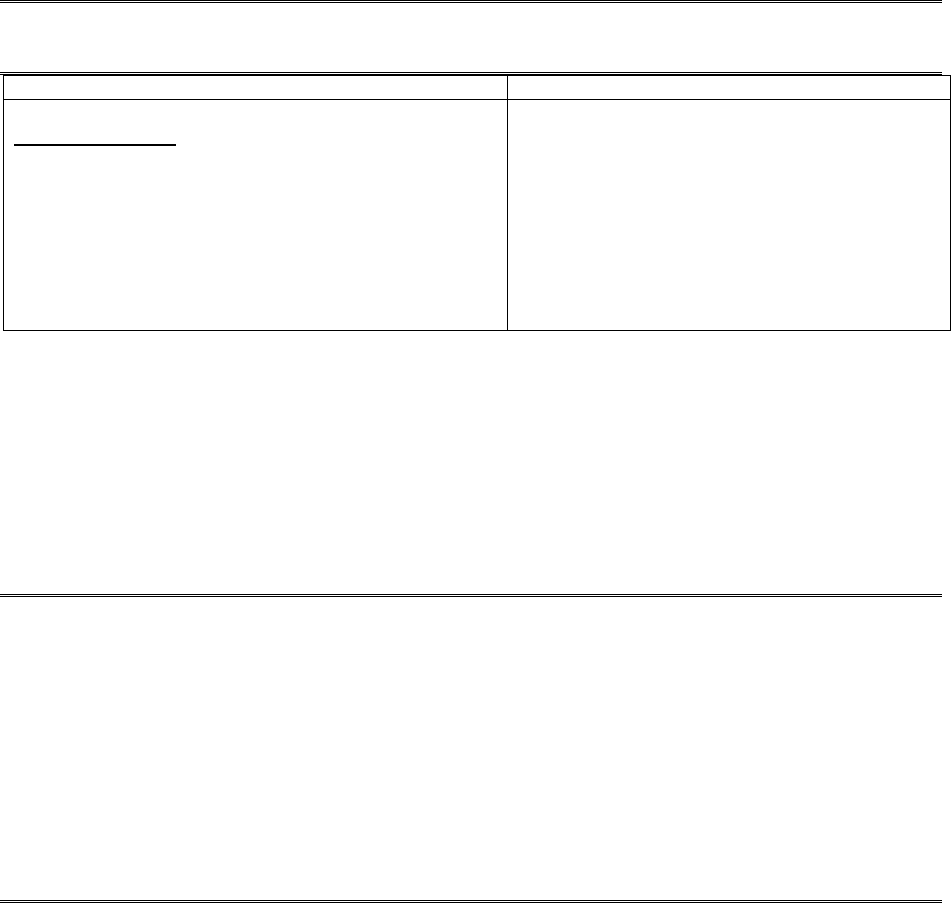
BASEALAINST M11101.1A of 15 Apr 2018
Appendix D – Monterey
Base Alameda Housing Manual
D-2
Grounds and Gardens
Resident Shall:
Government Shall:
Monterey Housing: Mow grass to a minimum of 50
feet from your quarters or to the curb as instructed
(this includes front and back yards).
Ensure that grass height does not exceed three inches.
Edge half inch from all sidewalks and driveways with no
grass or weeds growing up through any cracks or
crevices.
Maintain all common areas.
A sample of the Self-Help equipment that may be available at Novato includes:
Lawn Mowers.
Edgers.
Weed Eaters.
Shovels.
Rakes.
Grass Seed.
Fertilizer.
Heater Filter Replacement
General: Housing Maintenance replaces heater filters semi-annually or annually. To do this the
Housing Office will contact the member/spouse and make an appointment in advance.
Resident Shall:
Replace heater filter if desired.
Allow Housing Maintenance access to your unit for filter replacement.
Government Shall:
Replace heater filter every year.
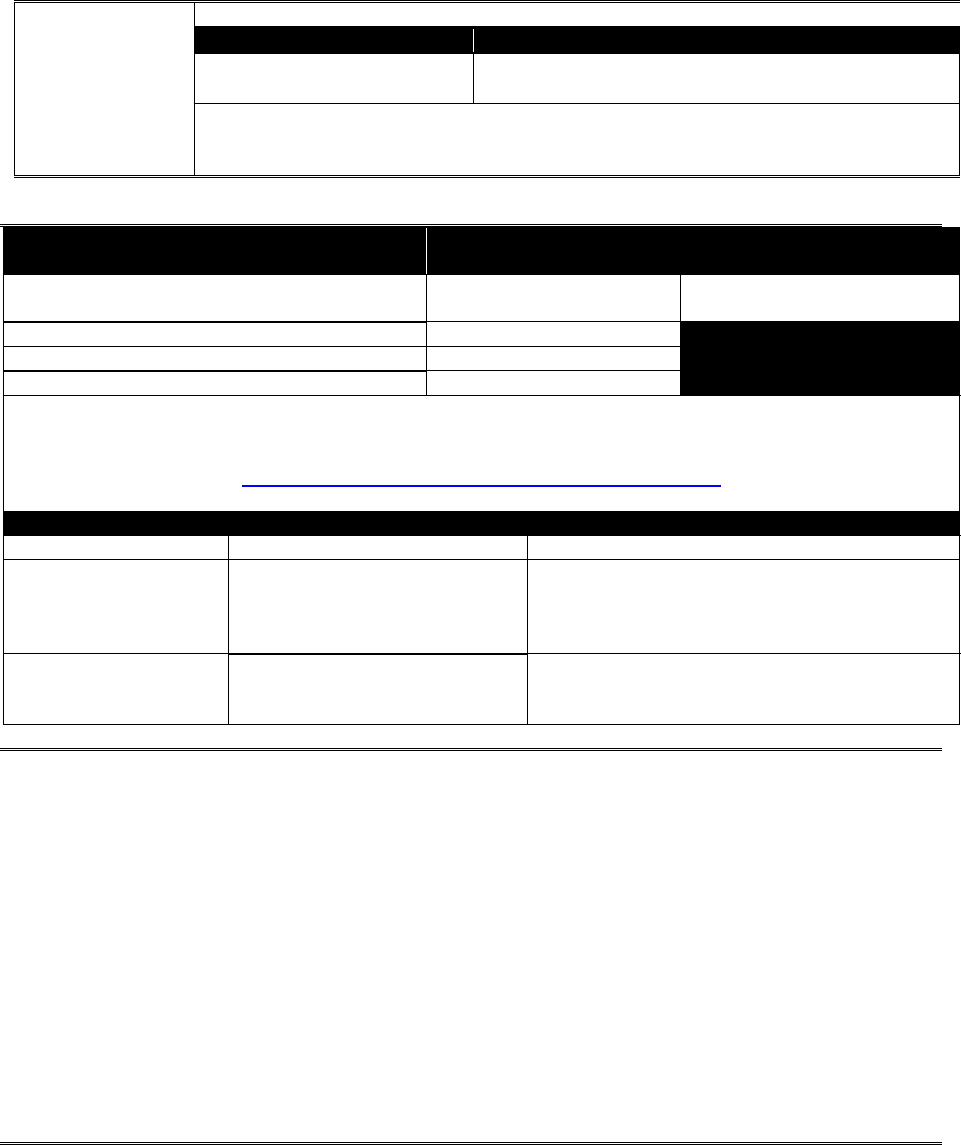
BASEALAINST M11101.1A of 15 Apr 2018
Appendix E – Noyo River
Base Alameda Housing Manual
E-1
Hours of
Operation
Who
Hours of Operation
Noyo River
Non Staffed Housing Site, Contact Noyo River
Housing Representative listed below
Noyo River Housing Site is non staffed, contact Housing representative at Station
Noyo River.
Position
Phone Number
Ext.
Eureka Local Housing Officer
(707) 839-6160
6160
Eureka Housing Office
(707) 442-1473
Eureka Housing Duty Response
(707) 599-9411
Noyo River Housing Representative
(707) 964-6612
Housing Web Site
http://www.uscg.mil/d11/grpHumboldtBay/housing.asp
After Hours
Type of Problem
Location
Who to call
Maintenance
Emergencies
Noyo River
(707) 964-6612
Emergencies
(Fire/Police/Medical)
Noyo River
911
Family Housing Lock Outs
If anyone locks themselves out of their quarters during normal working hours (Monday through Friday)
contact the Local Housing Office. You must contact a locksmith (at your own expense) if you are locked
out on a weekend, holiday, and/or after hours.
Note: The Local Housing Office will not admit minors under 16 into a house even with a valid ID until one
of the parents is contacted for approval. The Housing Office has no idea if parents want these children in
the house alone, if they skipped school, left the babysitter, etc. The Housing Office will not accept this
responsibility. In addition, the Local Housing Office will not let in anyone not listed as a valid family
member on the member’s application. If anyone has a guest who gets locked out, that guest would need
to contact the member or spouse, they will not be let in by the Housing Office. It is the resident’s
responsibility to plan ahead, make plans with neighbors or friends to leave a key, etc. Make sure the
Housing Office has work, home and cell phone numbers. This policy is in place to protect the family and
the Housing Office.
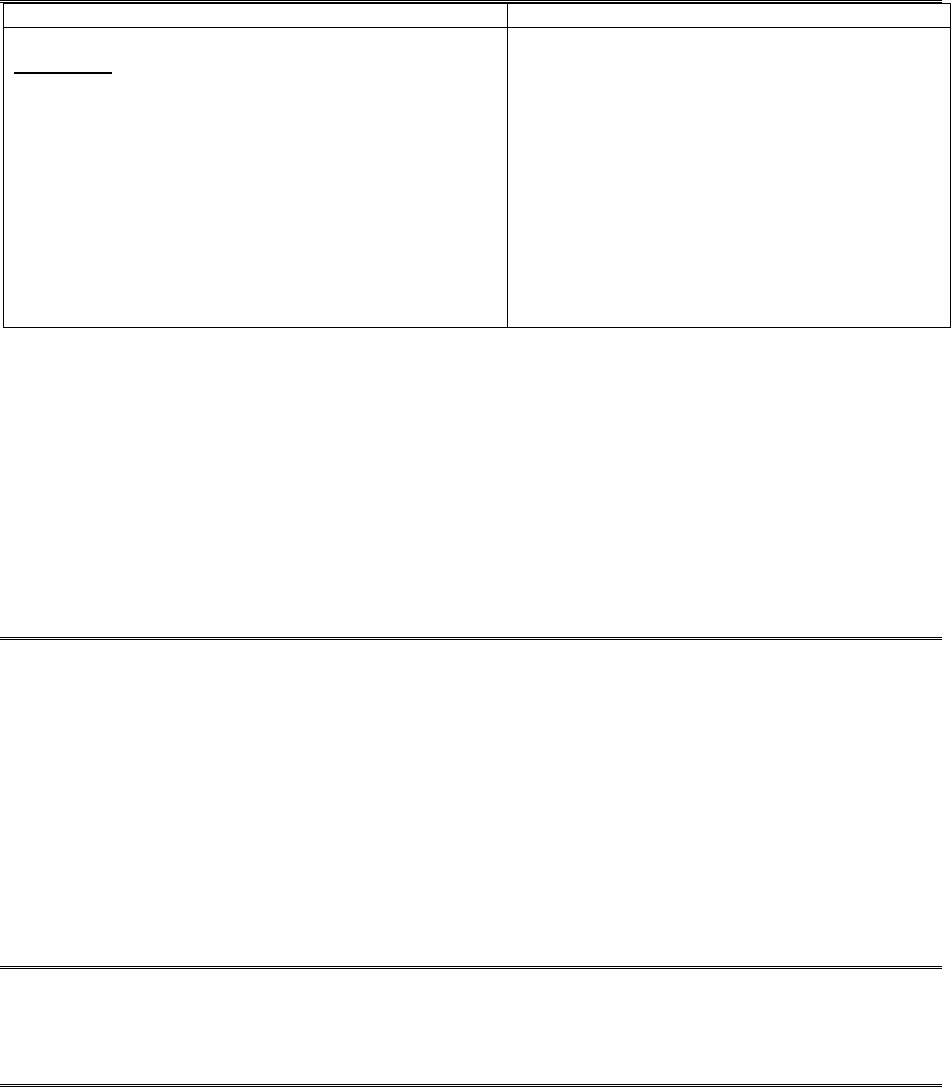
BASEALAINST M11101.1A of 15 Apr 2018
Appendix E – Noyo River
Base Alameda Housing Manual
E-2
Yard Landscape and Grounds Maintenance
Resident Shall:
Government Shall:
Noyo River: Mow grass adjacent to your assigned
quarters or to the curb as instructed (this includes
front and back yards).
Residents are required to trim along outside perimeter
of fences and quarters.
Ensure that grass height does not exceed three
inches. Edge half inch from all sidewalks and
driveways with no grass or weeds growing up through
any cracks or crevices.
Maintain all common area lawns.
Provide safe and operable lawn mowers and
trimmers in the Self-Help Locker on site.
Contact the Noyo River Housing Representative
during normal work hours to check in/out lawn
equipment.
Self-Help equipment that is available for Eureka Residents:
Lawn Mowers
Edger
Weed Eaters
Shovels
Rakes
Grass Seed
Fertilizer
Top soil, bark-mulch and other beautification materials may also be available at specified times.
Furnace Filter Replacement
General: The Housing representative replaces furnace filters annually during the required annual / ERA
Inspection. To do this the Housing staff will contact the member and make an appointment in advance.
Resident Shall:
Replace additional furnace filters if desired.
Government Shall:
Replace furnace filter every year. This is normally done in conjunction with annual / ERA
inspections.
Provide furnace filters.
Trash Collection
Pickup is on Tuesday. Three cans are provided, one for trash, one for recycling and one for yard debris.
The Housing Office will provide more details on the proper use of each can upon checking in to the unit.
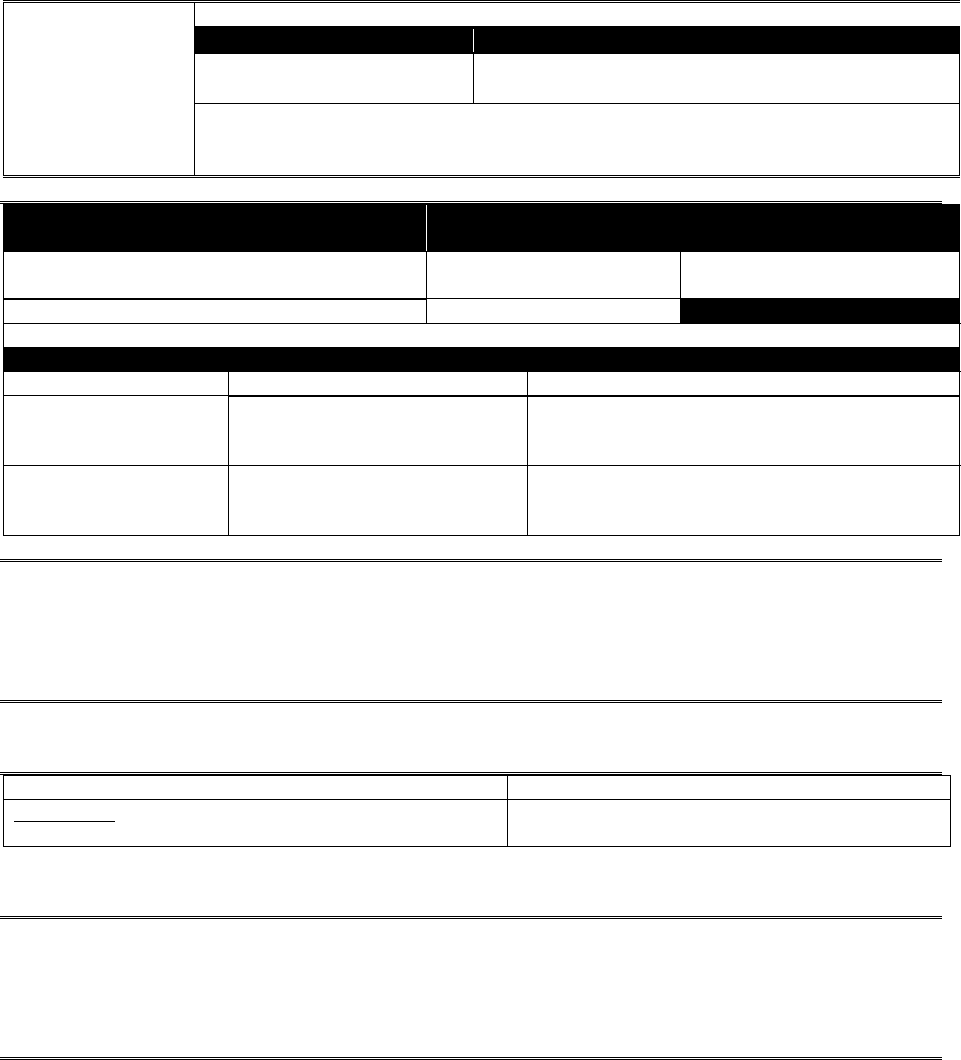
BASEALAINST M11101.1A of 15 Apr 2018
Appendix F – Point Loma
Base Alameda Housing Manual
F-1
Hours of
Operation
Who
Hours of Operation
San Diego (Point Loma)
0700-1500 Monday - Friday
Not all services are available during lunch hours. Reduced staffing may
occur between 1130-1200, Monday through Friday.
Position
Phone Number
Ext.
Sector San Diego Local Housing Officer
(619) 278-7218
Housing Maintenance Office
(619) 278-7202
After Hours
Type of Problem
Location
Who to call
Maintenance
Emergencies
Point Loma
(619) 666-7448 (OOD)
Emergencies
(Fire/Police/Medical)
Point Loma
911
Family Housing Lock Outs
If anyone locks themselves out of their quarters during normal working hours (Monday through Friday)
contact the Local Housing Office. If the lockout occurs after hours you need to call the OOD.
Yard Landscape and Grounds Maintenance
Resident Shall:
Government Shall:
Point Loma: Residents have no grounds care
responsibility. The site is considered a common area.
Maintain common area grounds.
Note: No grounds plantings are allowed without written approval from the Housing Office.
Trash Collection
Garbage pickup is on Wednesday. Recycle pickup is once a month, in the first full week of the month on
a Thursday. The Housing Office will provide more details upon checking in to the unit.

BASEALAINST M11101.1A of 15 Apr 2018
Appendix F – Point Loma
Base Alameda Housing Manual
F-2
BLANK
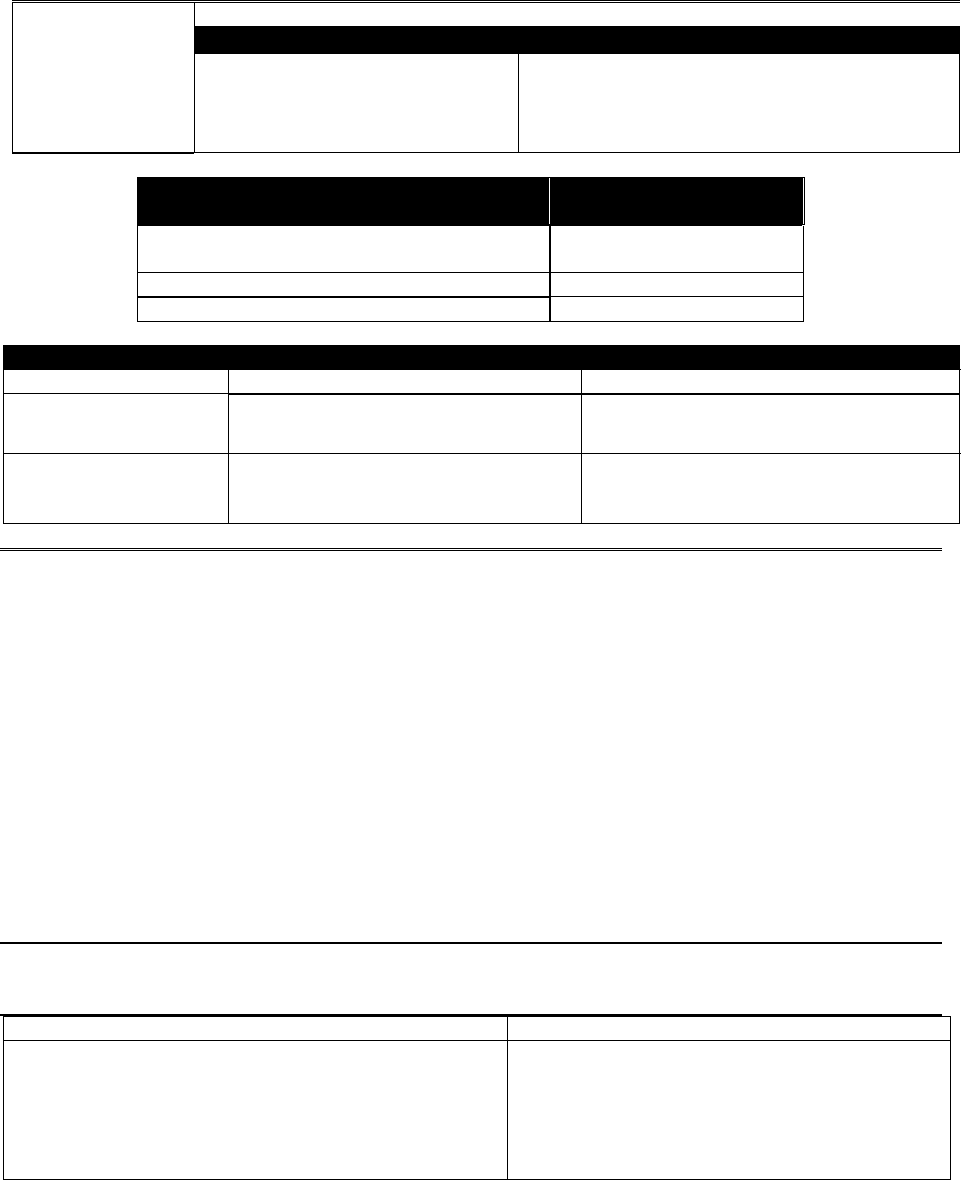
BASEALAINST M11101.1A of 15 Apr 2018
Appendix G – Rio Vista
Base Alameda Housing Manual
G-1
Hours of
Operation
Who
Hours of Operation
Station Rio Vista Housing Office
0800-1500 Monday-Friday
Closed weekends/holidays
For after hour issues contact the Station
OOD
Position
Phone Number
Station Rio Vista Housing Representative
(707) 374-2871
Station Rio Vista Officer of the Day
(707) 374-2871
Station Rio Vista XPO
(707) 389-0517
Maintenance and Emergencies
Type of Problem
Location
Number to call
Maintenance
Problems
Station Rio Vista
(707) 374-2871 (OOD)
Emergencies
(Fire/Police/Medical)
Station Rio Vista
911
Family Housing Lock Outs
If anyone locks themselves out of their quarters during normal working hours (Monday through Friday)
contact the Local Housing Office. You must contact a locksmith (at your own expense) if you are locked
out on a weekend, holiday, and/or after hours.
Note: The Local Housing Office will not admit minors under 16 into a house even with a valid ID until one
of the parents is contacted for approval. The Housing Office has no idea if parents want these children in
the house alone, if they skipped school, left the babysitter, etc. The Housing Office will not accept this
responsibility. In addition, the Local Housing Office will not let in anyone not listed as a valid family
member on the member’s application. If anyone has a guest who gets locked out, that guest would need
to contact the member or spouse, they will not be let in by the Housing Office. It is the resident’s
responsibility to plan ahead, make plans with neighbors or friends to leave a key, etc. Make sure the
Housing Office has work, home and cell phone numbers. This policy is in place to protect the family and
the Housing Office.
Grounds and Gardens
Resident Shall:
Government Shall:
Maintain the backyard and common areas in a
presentable appearance. Ensure grass height does not
exceed three inches. Edge a half inch around all
sidewalks and driveways. Ensure no grass or weeds
are visible through cracks and crevices.
Provide safe and operable lawn mowers and
edgers in the Self-Help Locker.

BASEALAINST M11101.1A of 15 Apr 2018
Appendix G – Rio Vista
Base Alameda Housing Manual
G-2
In ground gardens are allowed but the plan shall be approved by a Housing Representative before any
landscape changes are made.
A sample of the Self-Help equipment that may be available includes:
Lawn Mowers.
Edgers.
Weed Eaters.
Shovels.
Rakes.
Heater Filter Replacement
General: The Housing Maintenance Officer (HMO) replaces heater filters semi-annually or annually
during the mandatory Inspection and Repair (I/R) service. To do this the HMO will contact the
member/spouse and make an appointment in advance. Please note: If the resident fails to make the
appointment the Housing Office may escort the maintenance worker into the unit.
Resident Shall:
Replace heater filter if desired.
Government Shall:
Replace heater filter every year.
Trash Collection
Garbage is to be taken to the provided dumpster(s) on site for collection.
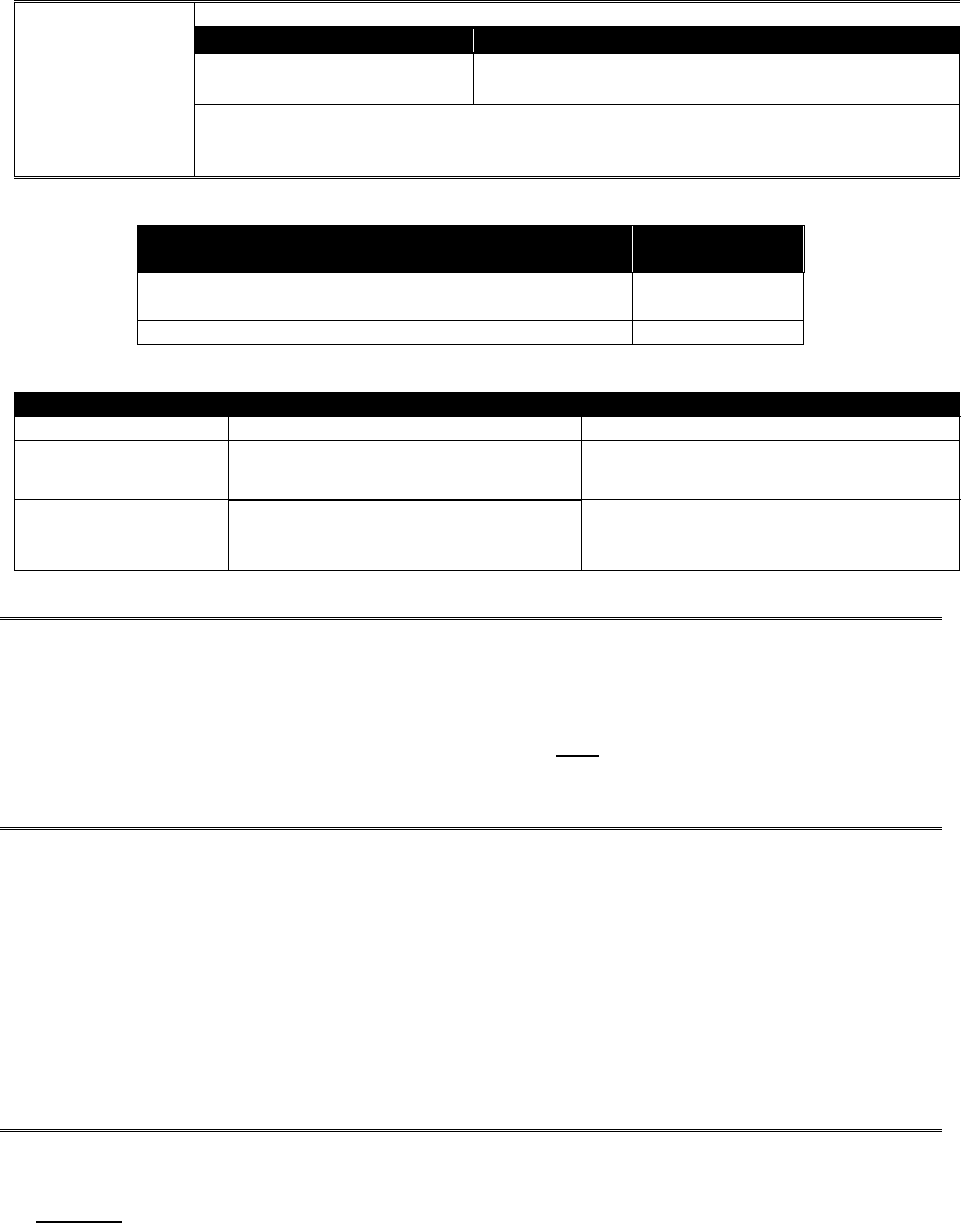
BASEALAINST M11101.1A of 15 Apr 2018
Appendix H – Santa Barbara (includes Carpinteria)
Base Alameda Housing Manual
H-1
Hours of
Operation
Who
Hours of Operation
MSD Santa Barbara
Housing Office
0800-1600 Monday-Friday
Closed weekends/holidays
Not all services are available during lunch hours. Reduced staffing may
occur between 1130-1230, Monday through Friday.
Position
Phone Number
MSD Santa Barbara Local Housing Officer
(805) 962-7430
MSD Santa Barbara Local Housing Representative
(805) 896-6794
Maintenance and Emergencies
Type of Problem
Location
Number to call
Maintenance
Problems
MSD Santa Barbara
(805) 896-6794
Emergencies
(Fire/Police/Medical)
MSD Santa Barbara
911
UH Loss of Housing Privilege
Any violation of this instruction may result in the loss of privileges to reside in UH. In the event of such an
action, members that have their UH privileges revoked by their Command, by Commanding Officer, MSD
Santa Barbara, or by Commanding Officer Base Alameda, will NOT be entitled to BAH. Afloat members
will be assigned back to their Cutter (unless underway, in which case the member will vacate the UH unit
upon Cutter’s return).
UH Length of Probation for Loss of Privilege
The Local Housing Officer (LHO), with command input, will determine the amount of probation time to be
served. Length of probation time will be a minimum of 3 months with a maximum of 1 year, depending on
the severity of the infraction. Severe cases will result in a permanent loss of housing privilege and BAH
will not be granted. To have their housing privilege reinstated, each Probation member must forward a
written request to the LHO via their chain of command. The LHO will review the facts of the case, along
with a report from the member’s command and make a determination. If disapproved, the member will be
notified immediately and given the reasons for the denial. If approved, the member will be assigned a UH
room and will be required to sign a CG-3307 stating they understand the rules and regulations of the UH
and will abide accordingly.
UH Keys and Lock Outs
1. Unit Keys. Upon check-in, the Housing Office will issue each resident one key to his/her assigned UH

BASEALAINST M11101.1A of 15 Apr 2018
Appendix H – Santa Barbara (includes Carpinteria)
Base Alameda Housing Manual
H-2
unit. Residents are responsible for these keys and must return them upon check-out. Residents are
not authorized to give their UH unit key to anyone, aside from duty personnel acting in an
official capacity (i.e. Housing Representatives, etc.). Any member violating this policy is subject to
loss of housing privilege and financial liability for changing of the locks.
2. Key Trouble. No person shall cut, force, or otherwise tamper with a government locking device, or
any locking device which is not his or her own personal property. Under no circumstances shall any
individual have keys to government locking devices duplicated. Problems with keys or locks shall be
promptly reported to the Housing Office. Unauthorized entry into another resident’s room is
considered breaking and entering and violators will be subjected to criminal charges/UCMJ/
immediate loss of housing privilege.
3. Lock Outs. If anyone locks themselves out of their quarters during normal working hours (Monday
through Friday) contact the Local Housing Office or the Manager’s Office of your housing facility if in a
leased unit. If you are in a leased unit and locked out on a weekend, holiday, and/or after hours;
please follow the guidelines set forth by the apartment complex you live in. If you are forced to call a
locksmith to gain entrance into your owned or leased unit; the cost will be at your expense. If anyone
has a guest who gets locked out, that guest would need to contact the member, they will not be let in
by the Housing Office.
4. Lock Out Log. A ‘lock out log’ is maintained by the Housing Offices, which records the date of the
lock out. After two lock outs a written warning will be issued to the resident. Following the third lock
out the resident will be held financially liable and an Administrative Remarks CG-3307 entry will be
initiated.
5. Lost Keys. Any loss of a UH key will result in the Housing Office or Apartment Complex changing the
door locks. This will require the issuance of new keys to all residents of the UH. Due to the cost and
staff hours involved in this process, a monetary charge will be required on each instance.
Family Housing Lock Outs
If anyone locks themselves out of their quarters during normal working hours (Monday through Friday)
contact the Local Housing Office Assistant. You must contact a locksmith (at your own expense) if you
are locked out on a weekend, holiday, and/or after hours.
Note: The Local Housing Office will not admit minors under 16 into a house even with a valid ID until one
of the parents is contacted for approval. The Housing Office has no idea if parents want these children in
the house alone, if they skipped school, left the babysitter, etc. The Housing Office will not accept this
responsibility. In addition, the Local Housing Office will not let in anyone not listed as a valid family
member on the member’s application. If anyone has a guest who gets locked out, that guest would need
to contact the member or spouse, they will not be let in by the Housing Office. It is the resident’s
responsibility to plan ahead, make plans with neighbors or friends to leave a key, etc. Make sure the
Housing Office has work, home and cell phone numbers. This policy is in place to protect the family and
the Housing Office.
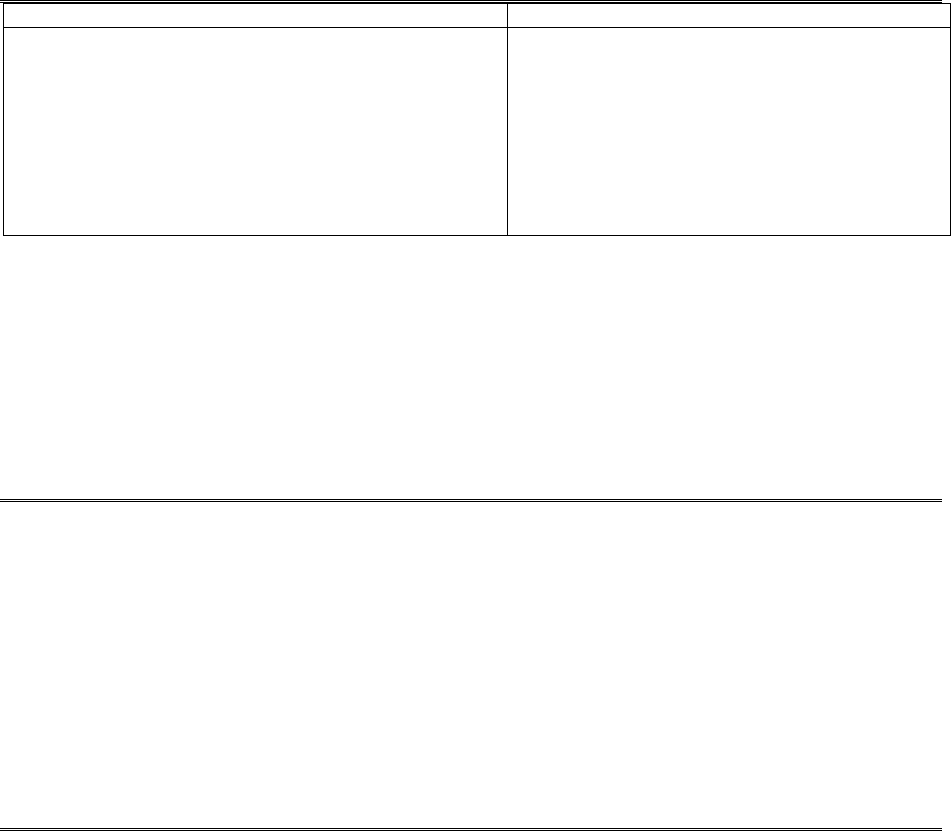
BASEALAINST M11101.1A of 15 Apr 2018
Appendix H – Santa Barbara (includes Carpinteria)
Base Alameda Housing Manual
H-3
Grounds and Gardens
Resident Shall:
Government Shall:
Mow grass to a minimum of 50 feet from your quarters
or to the curb as instructed (this includes front and
back yards).
Ensure that grass height does not exceed three inches.
Edge half inch from all sidewalks and driveways with no
grass or weeds growing up through any cracks or
crevices.
Maintain all common area lawns.
Provide safe and operable lawn mowers and
edgers in the Self-Help Locker at Housing.
A sample of the Self-Help equipment that may be available at Housing includes:
Lawn Mowers.
Edgers.
Weed Eaters.
Shovels.
Rakes.
Grass Seed.
Fertilizer.
Heater Filter Replacement
General: Housing Maintenance replaces heater filters semi-annually or annually. To do this the Housing
Office will contact the member/spouse and make an appointment in advance.
Resident Shall:
Replace heater filter if desired.
Allow Housing Maintenance access to your unit for filter replacement.
Government Shall:
Replace heater filter every year.
UH Smoking Policy at Carpinteria Lease
The designated smoking area is the patio of the housing unit. However, care needs to be taken to not
infringe on the rights of roommates or neighbors on either side as far as smoke entering their unit through
open doors or windows.
Trash Collection
Pickup is on Wednesday. Three cans are provided, one for trash, one for recycling and one for compost.
The Housing Office will provide more details on the proper use of each can upon checking in to the unit.

BASEALAINST M11101.1A of 15 Apr 2018
Appendix H – Santa Barbara (includes Carpinteria)
Base Alameda Housing Manual
H-4
BLANK
